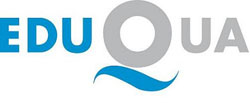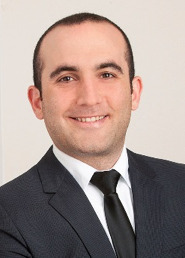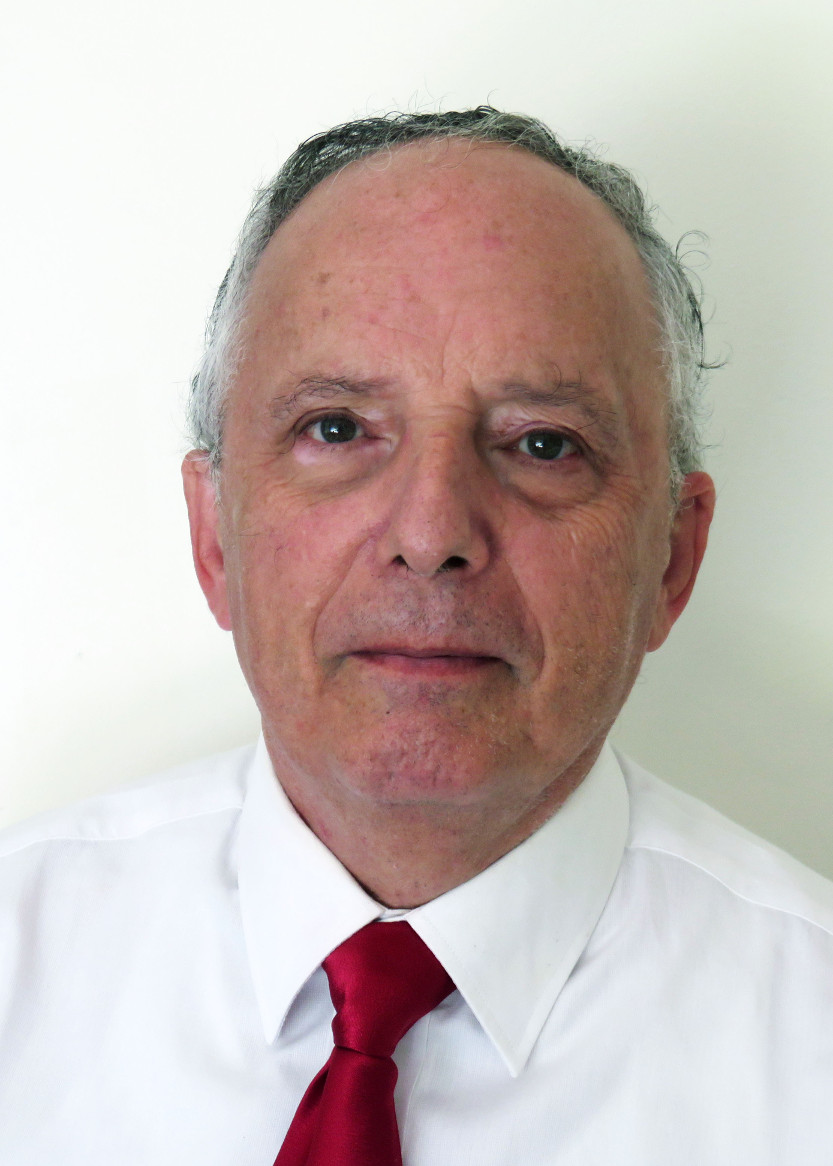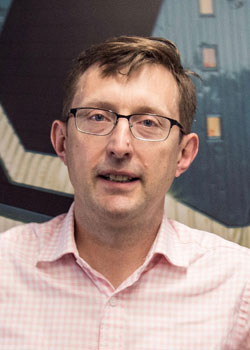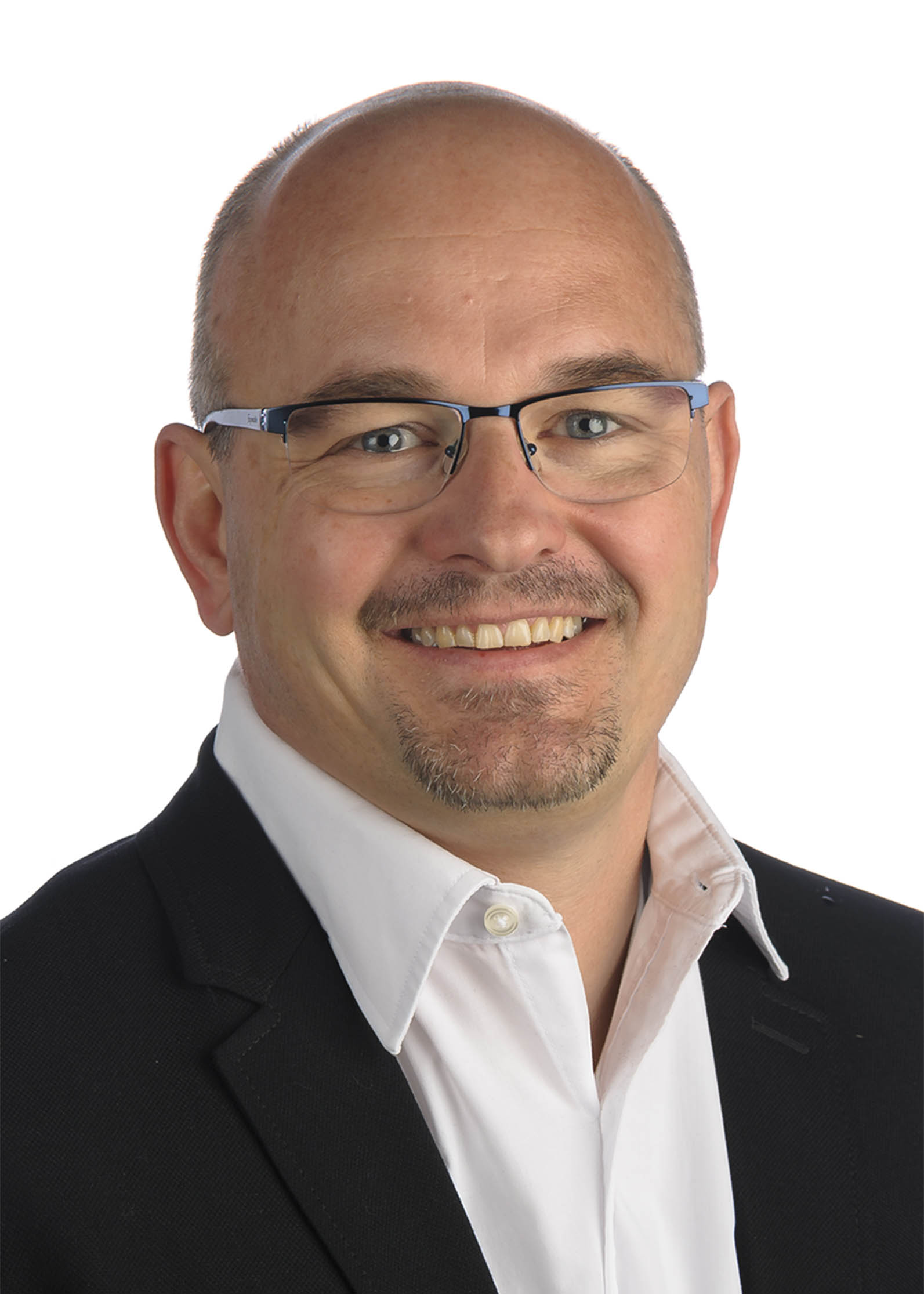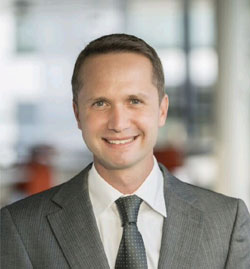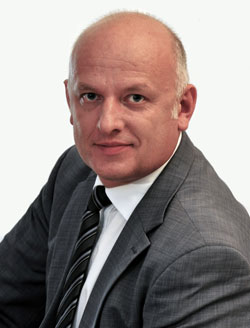SE-Training
Kurse
Der SE Foundations Kurs gibt ein solides, konzeptionelles Fundament im Bereich des Systems Engineering. Die Konzepte werden an praktischen Beispielen und im Rahmen von Workshops vertieft und bei den Teilnehmern…

SE Grundlagen
Nächste Termine
18.06.2024 - 20.06.2024, Grenoble
25.06.2024 - 27.06.2024, Toulouse
02.10.2024 - 04.10.2024, Ankara
02.10.2024 - 04.10.2024, Munich
21.10.2024 - 23.10.2024, Zürich
Kursbeschreibungen
Der SE Foundations Kurs gibt ein solides, konzeptionelles Fundament im Bereich des Systems Engineering. Die Konzepte werden an praktischen Beispielen und im Rahmen von Workshops vertieft und bei den Teilnehmern verfestigt.
Der Kurs wird mit einem Teilnehmer:Trainer-Verhältnis von höchstens 8:1 durchgeführt. So ist sichergestellt, dass jeder Teilnehmer gut betreut wird und die Systems Engineering Methoden tief verfestigt werden.
Ein Abendessen der Trainingsgruppe ist in den Kursgebühren inkludiert.
Lernziele
• Kenntnis der Herkunft ds Systems Engineering.
• Kenntnis der Grundkonzepte des Systems Engineering.
• Anwendung von Systems Engineering Methoden für komplexe Entwicklungsprojekte.
• Optimierung von Systems Engineering Tätigkeiten.
• Positionierung der Teilnehmer: Wo stehe ich? Wo sind meine Stärken? Bin ich Bereit zur Zertifizierung als ASEP oder CSEP?
Wer Sollte Teilnehmen?
Der Kurs ist konzipiert für:
- Requirements Engineers
• Systems Engineers, Projektmanager
• V&V Engineers, Systemarchitekten
• Entwicklungsingenieure
• Produktmanager.
Teilnehmergebühren
Normal price 2,700 CHF / EUR; Early Bird discount 2,430 CHF / EUR
Dauer
3 tage
Trainer
Seb Klabes 

Mike Johnson 
Marco Di Maio 


Die Zielgruppe des SE Management Kurses sind Führungskräfte im Engineering. Daher richtet sich dieser Kurs insbesondere an Mitarbeiter mit organisatorischen und strategischen Aufgaben im Engineering.
Der Verhältnis von Trainier zu Kursteilnehmer…
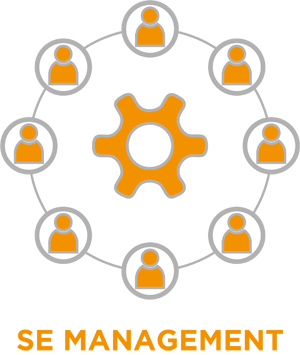
SE Management
Nächste Termine
Kursbeschreibungen
Die Zielgruppe des SE Management Kurses sind Führungskräfte im Engineering. Daher richtet sich dieser Kurs insbesondere an Mitarbeiter mit organisatorischen und strategischen Aufgaben im Engineering.
Der Verhältnis von Trainier zu Kursteilnehmer ist maximal 6:1.
Somit ist ein effektives Training garantiert und es ermöglicht auf die spezifischen Bedürfnisse der Kursteilnehmer einzugehen.
Ein Abendessen mit den Trainern ist in der Kurspauschalen enthalten.
Lernziele
• Verständnis für die Anwendung des Systems Engineering.
• Wie setzt man eine Engineering Organisation auf?
• Wie definiert und harmonisiert man die Engineering Prozesse?
• Definition von Rollen und Verantwortlichkeiten.
• Wissensaufbau und Weiterbildung der Organisation im Hinblick auf SE-Kompetenzen.
Wer Sollte Teilnehmen?
• Abteilungsleiter, Dienststellenleiter, Teamleiter
• Führungskräfte im Engineering
• Prozessverantwortliche für die Engineering Prozesse
• Qualitätsmanager
Teilnehmergebühren
Frühbucher: 1,350 CHF. Regulär: 1,500 CHF
Dauer
2 tage
Trainer
Mike Johnson
Es werden Techniken vorgestellt und trainiert, die helfen, kontinuierlich die Wirksamkeit und Effizienz von Unternehmungen und des Handelns der Teilnehmer zu verbessern. Die Ausnutzung unserer Intuition, die kontinuierliche Abwägung von…

Qualität, Zeitgerecht
Nächste Termine
Kursbeschreibungen
Es werden Techniken vorgestellt und trainiert, die helfen, kontinuierlich die Wirksamkeit und Effizienz von Unternehmungen und des Handelns der Teilnehmer zu verbessern. Die Ausnutzung unserer Intuition, die kontinuierliche Abwägung von Prioritäten sowie die Etablierung einer Zero-Defekt-Kultur werden die Fokusthemen sein, die wir bearbeiten werden.
Lernziele
• Definition der wahren Anforderungen
• Wahl des richtigen Designs
• Voraussage, was man versprechen kann und wie man das Versprechen hält
• Optimierung der Kommunikation im Projektteam
• Zusammengefasst: We liefert man die richtige Lösung zur richtigen Zeit
Wer Sollte Teilnehmen?
Dieser Workshop richtet sich an:
- Systems Engineers
• (Project) Manager
• Systemarchitekten
• Entwickler
• Product Managers
• Scrum Masters
• Qualitätsingenieur
Teilnehmergebühren
Frühbucher: 1,350 CHF. Regulär: 1,500 CHF
Dauer
2 tage
Trainer
Niels Malotaux
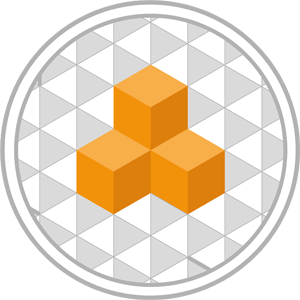
Produktentwicklung
Nächste Termine
Kursbeschreibungen
Gute Konzepte in der frühen Produktentwicklungsphase sind der Schlüssel zur erfolgreichen Entwicklung neuer Produkte. Den Teilnehmern wird eine systematische, schrittweise Designentwicklungsmethode vorgestellt. Die Methode integriert und gewichtet unterschiedliche Techniken und Werkzeuge, um innovative, schnelle und effiziente Prozesse zur erfolgreichen Produktdefinition aufzusetzen. Es ist ein flexibler, integrierter Prozess, der kundenorientiert ist und auf die individuellen Bedürfnisse und Anforderungen jeder Organisation und jedes Projektteam zugeschnitten werden kann.
Lernziele
• Die Teilnehmer lernen und üben die Prinzipien und Werkzeuge der neuen Produktentwicklungsmethode.
• Die Teilnehmer werden in der Lage sein, ihre Fähigkeit in diesem Bereich zu verbessern und neue Bedürfnisse der potentiellen Kunden zu definieren.
• Sie werden Methoden und Werkzeuge für die Konstruktion von neuen, qualitativ hochwertigen und wettbewerbsfähigen Produkten erlernen.
Wer Sollte Teilnehmen?
• Design-Team Mitglieder neuer Produkte wie z.B. Projektmanager, Systemingenieure, Konstrukteure und Marketing- oder Qualitätsmanager.
• Neue Produktdefinition und Konzept Design Teammitglieder und diejenigen, die in Support-Rollen beteiligt sind.
• Diejenigen, die an der Entwicklung neuer Produkte wie Projektmanager, Systemingenieure, Konstrukteure, Marketing- oder Qualitätsmanager beteiligt sind.
• Manager, die die Vorteile der neuen Produktdefinition und des konzeptionellen Design-Methodiks vor der Implementierung verstehen möchten.
Teilnehmergebühren
Frühbucher: 2,700 CHF. Regulär: 3,000 CHF
Dauer
5 tage
Trainer
Amihud Hari

Systemische und systematische Methoden zur Lösung komplexer Probleme
Nächste Termine
Kursbeschreibungen
Dieser Kurs konzentriert sich auf das Systems Engineering als systemische und systematische Methodik zur Lösung komplexer Probleme. Der Kurs diskutiert die Anwendung des Systemdenken (Systems Thinking), um das Verständnis einer Situation, der Problembeschreibung und der formulierten Lösung zu verbessern. Im Kurs setzen die Teilnehmer konzeptionelle Werkzeige des Systems Engineering ein, um Systeme und deren Eigenschaften in allen Systemlebenszyklusphasen zu verstehen.
Lernziele
• Verständnis für die unterschiedlichen Definitionen eines Systems und der unterschiedlichen Systems Engineering Perspektiven.
• Fähigkeit zur strukturierten Problemanalyse in unterschiedlichen Phasen der Produktentwicklung.
• Kompetenz in der Auswahl geeigneter Methoden und Werkzeuge, um die Probleme anzugehen.
• Verbesserung der Fähigkeit die formulierten Probleme anzugehen und zu lösen des Teilnehmers.
• Verständnis für die Notwendigkeit von unterschiedlichen Fähigkeiten in einem Systems Engineering Team.
• Erkenntnis, dass es selten die "eine" optimale Lösung gibt.
• Verbesserung und Training des Systemdenken und der kritischen Auseinandersetzung.
Wer Sollte Teilnehmen?
• Personen, die regelmässig mit komplexen Problemstellungen konfrontiert sind.
• Ingenieure und Teamleiter/Abteilungsleiter in der Produkt-/Systementwicklung.
• Systemingenieure, die ihre Fähigkeiten in diesem Bereich verbessern möchten.
Teilnehmergebühren
Frühbucher: 2,160 CHF. Regulär: 2,400 CHF
Dauer
4 tage
Trainer
Joe Kasser

Systemansatz im Projektmanagement
Nächste Termine
Kursbeschreibungen
Dieser Kurs stellt einen holistischen Ansatz des Projektmanagement für die Entwicklung neuer, komplexer, technologie-zentrierter Systeme vor. Der Schwerpunkt dieses Kurses liegt auf den Abhängigkeiten zwischen den Projekt Management und den Systems Engineering Prozessen. Insbesondere das Veränderungsmanagement, das Aufsetzen der Projektorganisation, Team-Entwicklung, die Anwendung unterschiedlicher Führungsstile, das Setzen von Prioritäten und die kontinuierliche Planung und Steuerung des Projektes werden behandelt. Die Teilnehmer sollen die erlernten und vertieften Konzepte anwenden, während sie Teamaufgaben lösen. Diese Fähigkeiten sind essentiell für die Karrieren der Teilnehmer, da die Organisation in und von Projekte(n) der klassische Ansatz zur Erreichung strategischer Ziele einer Unternehmung ist.
Lernziele
• Verstehen und Anwenden des Systemdenkens im Projektmanagements
• Kenntnis der Methoden zur Projektplanung, -steuerung, und - überwachung.
• Anwenden der Methoden im täglichen Geschäft.
• Aufsetzen und Bewerten von Projektplänen für technologieorientierte Systeme.
• Antizipation und Einbringung von Änderungen im Projektverlauf.
Wer Sollte Teilnehmen?
• Abteilungsleiter, Teamleiter und Ingenieure, die ihre Projektmanagementfähigkeiten für technologieorientierte Projekte und Systeme verbessern möchten.
• Führungskräfte im Projekt oder der Linie: die ihre Führungsfähigkeit in diesem Bereich verbessern möchten (Planung, Kommunikation, Fortschrittsüberwachung).
Teilnehmergebühren
Frühbucher: 2,160 CHF. Regulär: 2,400 CHF
Dauer
4 tage
Trainer
Joe Kasser

Systemdenken und kritische Analyse
Nächste Termine
Kursbeschreibungen
Holistisches Denken ist die Kombination von Systemdenken und kritischer Analyse. Nach der Einführung in das Systemdenken und der kritischen Analyse werden die Teilnehmer lernen, wie sie die Techniken anwenden können um strukturierte und unstrukturierte Probleme zu lösen.
Lernziele
• Fähigkeit mit Problemen umgehen zu können, die nicht klar abgrenzbar sind.
• Verbesserung der Fähigkeiten, Probleme zu analysieren und zu lösen.
• Die Fähigkeit entwickeln, über die Ansätze des Systemdenkens hinaus, Problemen zu beschreiben, zu analysieren und anzugehen.
Wer Sollte Teilnehmen?
• Führungskräfte, deren Mitarbeiter mit komplexen und schwer abgrenzbaren Problemen konfrontiert sind.
• Führungskräfte die Ihre Fähigkeit, komplexe Problem zu lösen, verbessern möchten.
• Ingenieure, die sich auf die Übernahme von Führungsverantwortung vorbereiten möchten.
• Ingenieure, die über Methoden erlernen möchten, die über das Systemdenken hinaus gehen.
Teilnehmergebühren
Frühbucher: 2,160 CHF. Regulär: 2,400 CHF
Dauer
4 tage
Trainer
Joe Kasser
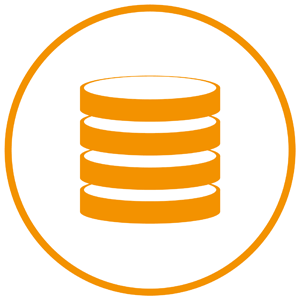
Einführung in MBSE & SysML
Nächste Termine
Kursbeschreibungen
Dieser Kurs bietet den Teilnehmern eine Kombination aus den grundlegenden und praktischen Aspekten von MBSE und SysML. Der Kurs beschäftigt sich zunächst mit der Erläuterung der Kernkonzepte von MBSE. Anschliessend werden mehrere praktische Übungen durchgeführt, um die Grundlagen von MBSE mit SysML einzuführen. Schließlich werden die Herausforderungen bei der Entwicklung und Bereitstellung von MBSE in realen Anwendungen vorgestellt und Wege aufgezeigt, um den Herausforderungen zu begegnen. Voraussetzungen: Grundkenntnisse des System- oder Software-Engineering. Es ist kein vorheriges MBSE Training erforderlich.
Lernziele
• Was ist MBSE?
• Was sind Modellierungssprachen und Modellierungsmethoden?
• Was sind die Grundkonzepte von MBSE?
• Wie man mit MBSE startet und welche häufigen Fehler man nicht machen sollte.
Wer Sollte Teilnehmen?
• Ingenieure, insbesondere System- und Software-ingenieure/ und -architekten.
• Führungskräfte in der Produktentwicklung, die MBSE einführen wollen.
Teilnehmergebühren
Frühbucher: 1,350 CHF. Regulär: 1,500 CHF
Dauer
2 tage
Trainer
Mohammad Chami
The Practical MBSE and SysML course provides a combination of the fundamentals of MBSE and the practical aspects of the adoption of MBSE with its concepts and key
enablers…

Practical MBSE & SysML
Nächste Termine
Kursbeschreibungen
The Practical MBSE and SysML course provides a combination of the fundamentals of MBSE and the practical aspects of the adoption of MBSE with its concepts and key
enablers for successful MBSE adoption.
The course first deals with explaining the why of MBSE based on the participants challenges with actual practices. Next, the elements of the MBSE adoption, i.e., process, method, language, and tool are explained and demonstrated with several practical exercises. Particularly, the how, i.e., the method element and its development is trained based on the participants objectives without promoting any specific modelling tool.
Finally, the course wraps up with a discussion of the human-factors of MBSE adoption and the business factors for defining, developing and deploying MBSE in real-world applications. Including what comes after MBSE is deployed to ensure a long-term strategical MBSE adoption.
The course includes individual exercises, as well as group exercises with a daily interactive workshop covering detailed MBSE use cases.
The course can be attended exclusively at a Customer's site or in one of our regular external course venues, where there's a healthy mixture of engineers from different backgrounds.
No prior training is required.
Lernziele
• What is MBSE, modelling language, modelling method and modelling tool?
• SysML basic concepts, elements, relations, and diagrams
• Why should we use MBSE and how it manages system engineering challenges
• How to start with MBSE, what to do and what not to do
• How to develop or customize the aimed MBSE method
• The human-factor aspects related to MBSE adoption
• How to ensure the delivery of valuable and usable system models
Wer Sollte Teilnehmen?
All engineers, particularly systems and software engineers/architects or those who work with requirements, concept description, traceability and aim at improving how they analyse, design, and manage their systems.
All managers, particularly those who aim at deploying MBSE to reduce design time, improve product quality, manage complex products, save cost and ensure reusability.
Teilnehmergebühren
Frühbucher: 1,890 CHF. Regulär: 2,100 CHF
Dauer
3 tage
Trainer
Mohammad Chami
Dokumenteninspektionen sind eine der wirtschaftlichsten und notwendigsten Techniken zur Beseitigung und Vermeidung von Defekten. Mit nur wenigen Stunden ordnungsgemäßer Inspektionstraining können die Menschen in einem Konzeptdokument Fehler sehr früh detektieren…

Verbesserung der Effektivität von Dokumentenprüfungen
Nächste Termine
Kursbeschreibungen
Dokumenteninspektionen sind eine der wirtschaftlichsten und notwendigsten Techniken zur Beseitigung und Vermeidung von Defekten. Mit nur wenigen Stunden ordnungsgemäßer Inspektionstraining können die Menschen in einem Konzeptdokument Fehler sehr früh detektieren und korrigieren. In diesem Kurs werden wir das Ziel von Projekten besprechen, die Begriffe Qualität und Defekt definieren, das Konzept und die Wirkung von Zero Defects erklären und einen Überblick über Inspektionsarten (Walkthroughs, Reviews, Fagan, Cleanroom, Gilb / Graham, Early Inspections) geben. Wir üben anhand eigener Dokumente. Vorbereitung: Jeder Teilnehmer soll drei Kopien (ein oder zwei Seiten) eines Dokuments mitbringen, das nicht zu vertraulich ist und in deinem aktuellen Projektalltag verwendet wird.
Lernziele
• Wie sehen die verschiedenen Ansätze zur Beurteilung und Inspektion aus
• Warum und wann kommt welcher Ansatz zum Einsatz
• Wie findet man in Dokumenten noch viel mehr tatsächliche Probleme, als man es sich je träumen hätte lassen
• Wie organisiert man äußerst effektive Beurteilungen/Inspektionen auf sehr effiziente Art und Weise
• Wie verhindert man, dass es bei Beurteilungen zu emotional wird
• Wie berechnet man den Nutzen einer Investition in Beurteilungen und Inspektionen
• Wie löst man die gefundenen Probleme möglichst effizient
• Wie verhindert man, dass die gefundenen Probleme erneut verursacht werden
Wer Sollte Teilnehmen?
Alle, die Dokumente, wie Verträge, Wirtschaftlichkeitsrechnungen, Anforderungen, Anwendungsfälle, Story-Cards, Designs, Zeichnungen, Code, Prüfpläne, erstellen, erstellen sollten oder auswerten müssen.
Teilnehmergebühren
Regulär: 800 CHF
Dauer
1 tag
Trainer
Niels Malotaux
Dieser Kurs bietet den Teilnehmern ein solides Fundament für die Entwicklung sicherer Systeme und Produkte. Wir werden eine Vielzahl von realen Unfällen und untersuchen ihre Ursachen. Die zugrundeliegenden organisatorischen Fehler,…

Grundlagen der System- und Produktsicherheit
Nächste Termine
Kursbeschreibungen
Dieser Kurs bietet den Teilnehmern ein solides Fundament für die Entwicklung sicherer Systeme und Produkte. Wir werden eine Vielzahl von realen Unfällen und untersuchen ihre Ursachen. Die zugrundeliegenden organisatorischen Fehler, Designfehler oder betrieblichen Probleme werden diskutiert. Innerhalb eines SE-Ansatzes werden wir Methoden erforschen, um die Sicherheit und die menschlichen Faktoren für eine Reihe von Systemen zu beurteilen. Der Kurs gibt auch einen Überblick über Sicherheitsmanagementsysteme, Gefahrenprotokolle, Sicherheitsnachweise, Vorfalluntersuchungen, Sicherheit programmierbarer, elektronischer Komponenten, CE-Kennzeichnung und Kennzeichnung von Gefahrstoffen.
Lernziele
• Verstehen, was "sicher" bedeutet.
• Zu allen Pruduktentwicklungsphasen, die Kerneinflüsse auf die Produktsicherheit verstehen.
• Übersicht über die Werkzeuge und Techniken von Sicherheitsspezialisten.
• Aufmerksamkeit für die Aspekte der Produktsicherheit, insbesondere im Zusammenhang mit der Entwicklung von Software und bei der Definition der Mensch-Maschine Schnittstelle.
Wer Sollte Teilnehmen?
• Ingenieure, die ihre Kenntnisse im Bereich der Produktsicherheit vertiefen möchten.
• Projekt- und Programmmanager, die den Zusammenhang von Produktsicherheit und Projektrisiko verstehen möchten.
• Führungskräfte, die ihr Fachwissen in dem Bereich vertiefen möchten und ihre legislative Verantwortung in Bezug auf die Produktsicherheit besser verstehen möchten.
Teilnehmergebühren
Frühbucher: 1,350 CHF. Regulär: 1,500 CHF
Dauer
2 tage
Trainer
Richard Maguire 
Jim Mateer 

Komplexität im Projekt- und Programmmanagement
Nächste Termine
Kursbeschreibungen
Das Cynefin-Framework wurde mittlerweile in so unterschiedlichen Bereichen eingesetzt, die so vielfältig sind wie die Zusammensetzung der Verwaltungsräte internationaler Modehäuser, Softwareentwicklungs- und SWAT-Teams. Die Entscheidungsträger haben das Framework allen Organisationsebenen und in fast jeder Branche angewandt.
Dave Snowden, der Gründer von Cognitive Edge und Schöpfer des Cynefin Frameworks, wird diesen eintägigen Kurs nutzen, um den Teilnehmern zu zeigen, wie mit seiner Hilfe im Projekt- und Programmmanagements die Komplexität reduziert, verwaltet und effektiv kontrolliert werden kann.
Es wird als die erste praktische Anwendung der Komplexitätswissenschaft zu betrieblichen Fragestellungen angesehen und wurde vor kurzem in der Prince II Agile Publikation zur Anwendung im Projektmanagement empfohlen.
Lernziele
• Grundlagen des Cynefin-Frameworks und seine Anwendung auf Projekt- und Programmmanagement.
• Wissen, wie man mehrere Methoden zur Navigation von Komplexität anwendet.
• Verständnis für die komplizierten Verbindungen zwischen Komplexität und Projektmanagement.
Wer Sollte Teilnehmen?
• Projektmanager
• An dem Thema interessierte Akademiker
• Manager mit relevanten Verantwortungsbereichen
Teilnehmergebühren
Regulär: 800 CHF
Dauer
1 tag
Trainer
Dave Snowden
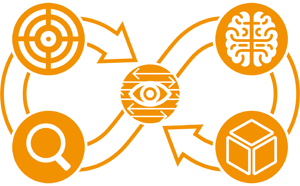
Einführung in Design Thinking und Lean Innovation
Nächste Termine
Kursbeschreibungen
Lernen Sie, wie Sie Systems Engineering mit Design Thinking und Lean Start-up in den frühen Phasen der Innovation (upfront oder upstream Innovation) kombinieren können. Der Design Thinking Kurs gibt Ihnen ein tiefes Verständnis des Design Thinking Mindsets und den Problemlösungszyklus basierend auf schnellen Iterationen und Kundeninteraktion.
Die Bedeutung eines klar definierten Konzeptes inklusive Produkt- / Dienstleistungskonzeption, Geschäftsmodelldesign und einer klaren Ermittlung der Kundenbedürfnisse vor Beginn der Entwicklung ist von grundlegender Wichtigkeit. Je später Missverständnisse und Fehler entdeckt werden, desto teurer wird es.
Design Thinking und Systems Engineering sind beides Problemlösungsmethoden, die mit der zunehmenden Komplexität umgehen helfen. Beide Ansätze sind auf den ersten Blick ganz anders, aber bei tiefergehender Betrachtung werden sie immer komplementärer und haben viele gemeinsame Elemente. Die Kombination von beiden Ansätzen, gepaart mit dem Wechseln der Denkweise ist für den Umgang mit der Ungewissheit und Komplexität unerlässlich.
Der Kurs ist sehr praxisorientiert und hands-on gestaltet. Die Teilnehmer verbringen mehr als die Hälfte der Zeit mit der praktischen Anwendung, z.B. den Kunden beobachten, Bedürfnisfindung mit dem Nutzer, die Gewinnung neuer Ideen, das Erstellen von Prototypen und das Testen mit dem Benutzer.
Lernziele
• Sie verstehen die Grundlagen von Design Thinking und Lean Innovation
• Sie wissen, wie Sie Design Thinking und Systems Thinking kombinieren können, und wann Sie den Denkmodus wechseln sollen.
• Sie können Werkzeuge und Methoden anwenden, um die Kundenbedürfnisse zu ermitteln.
• Sie lernen verschiedene Arten von einfachen Prototypen zu erstellen (zB Critical Experience oder Dark Horse Prototyp) und mit dem User zu testen und damit ihr Verständnis der Situation zu verbessern.
• Sie können das Lean Canvas anwenden, um die Ergebnisse zusammenzufassen und iterativ zu verbessern.
• Sie wenden Design Thinking und Lean Innovation auf eine praktische Aufgabe während der gesamten drei Tage an.
• Sie reflektieren und übertragen das Gelernte in ihre berufliches Umfeld und in ihre eigenen Projekte.
Wer Sollte Teilnehmen?
• Manager und Ingenieure, die ihre Problemlösungskompentenzen mit nutzerzentrierten, agilen Ansätzen erweitern möchten.
• Manager die auf der Suche nach neuen Wege sind um radikale Innovationen zu kreieren.
• Manager, die die digitale Transformation in ihrem Bereich steuern wollen.
• Alle, welche für die Produkt- und Dienstleistungsgestaltung oder Geschäftsmodellentwicklung verantwortlich sind und designorientierte Methoden integrieren möchten.
Teilnehmergebühren
Frühbucher: 1,350 CHF. Regulär: 1,500 CHF
Dauer
2 tage
Trainer
Patrick Link
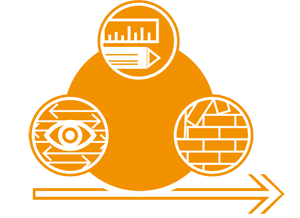
Design Thinking and Lean Innovation für Fortgeschrittene
Nächste Termine
Kursbeschreibungen
Design Thinking und Lean Innovation sind leicht verständliche Konzepte. Allerdings entstehen mit der praktischen Anwendung weitere Fragen. In diesem Vertiefungsworkshop dringen wir tiefer in die Ansätze ein und lernen zusätzliche Werkzeuge und Methoden (wie Business-Ökosystem-Design), reflektieren die praktischen Erfahrungen und Herausforderungen der Teilnehmer und erarbeiten wie wir sie überwinden können.
Neben der Kombination von Design Thinking und Systems Thinking lernen wir, wie ein Business-Ökosystem gestaltet oder Stakeholder-Maps erstellt werden und werfen einen Blick auf das Hybrid-Modell (Design Thinking und Big Data Analytics).
Der Workshop fokussiert auch auf die Herausforderung, wie Design Thinking in Ihrer Organisation umgesetzt werden kann.
Lernziele
• Sie verstehen die Herausforderungen, die bei der Moderation von Design Thinking / Lean Innovation Projekten auftreten. Definieren, wie diese Herausforderungen zu bewältigen sind.
• Sie lösen praktischen Schwierigkeiten in der Anwendung und Umsetzung von Design Thinking.
• Sie verstehen die Herausforderungen bei der Implementierung von Design Thinking in Organisationen.
• Sie erfahren wie Sie ein Business-Ökosystem mit einem Minimum Viable Ecosystem (MVE)-Ansatz gestalten können.
• Sie erstellen eine Stakeholder-Map der Organisation und definieren einer Strategie wie Design Thinking besser implementiert werden kann („Take it home-Challenge").
• Sie verstehen wie Big Data Analytics und Design Thinking zu einem hybriden Managementmodell kombiniert werden kann.
• Sie lernen die Wichtigkeit des Mindsets kennen. Was ist der aktuelle Mindset? Was ist der richtige Mindset für ihre Organisation? Und wie kann dieser Mindset geschaffen werden?
• Sie verstehen den Einfluss der Digitalisierung und kennen digitale Designkriterien.
• Sie reflektieren und übertragen das Gelernte in ihr tägliches Geschäft und in eigene Projekte.
Wer Sollte Teilnehmen?
Die Teilnehmer sollten praktische Erfahrungen mit Design Thinking und / oder Lean Start-up oder Lean Innovation haben und ihre eigenen Erfahrungen und Herausforderungen in den Kurs einbringen. Während des Kurses reflektieren wir die Erfahrungen und erarbeiten zusammen mögliche Lösungen, um diese Herausforderungen zu lösen.
Manager und Ingenieure, die ihre Problemlösungskompentenzen mit nutzerzentrierten, agilen Ansätzen erweitern möchten
Manger die auf der Suche nach neuen Wege sind um radikale Innovationen zu kreieren
Manager, die die digitale Transformation in ihrem Bereich steuern wollen
alle, welche für die Produkt- und Dienstleistungsgestaltung oder Geschäftsmodellentwicklung verantwortlich sind und designorientierte Methoden integrieren möchten
Teilnehmergebühren
Frühbucher: 1,350 CHF. Regulär: 1,500 CHF
Dauer
2 tage
Trainer
Patrick Link 

Michael Lewrick 


Systems Engineering in der Akustik
Nächste Termine
Kursbeschreibungen
Akustik umfasst die Erzeugung von Geräuschen, deren Übertragung durch feste Strukturen und Flüssigkeiten und die Reaktion des Empfängers (einer Person oder eines Geräts). Normalerweise besteht das Ziel darin, die Reaktion bei minimalen Zusatzkosten, Gewicht oder Größe auf ein akzeptables Niveau zu regeln. Oft sind die Details, die hier mitspielen, sehr komplex, die Zahl der Variablen ist hoch und es gibt einander entgegenwirkende Nebenbedingungen. Die Anwendung von SE-Techniken ist unerlässlich, damit ein effizientes und effektives Resultat erzielt werden kann.
Hauptprinzipien werden vorgestellt und es werden Unterlagen mit detaillierte Informationen ausgeteilt. Deren Anwendung wird anhand praktischer Beispiele erklärt und in praktischen Beispielen bekannter akustischer Problemstellungen vertieft.
Lernziele
• Verständnis der grundlegenden Akustiktheorie
• Aufspaltung von Problemen in einfachere Komponenten und Interfaces
• Anwendung des V-Modells auf die Akustik, unter Verwendung von praktischen Beispielen
• Einsatz von frei erhältlichen Tabellenkalkulationsprogrammen, Apps und Bezugsdaten, um das Systems Engineering bei der Lösung von Akustikproblemen und der Optimierung der Akustik zu unterstützen
• Kreative Ansätze im Bereich Akustik, Geräusch- und Vibrationskontrolle
• Lösung eines typischen Problems, der Geräuschreduzierung im Umfeld einer Maschine zur Einhaltung von Sicherheitsbestimmungen.
• Selbstvertrauen bei der Lösung verschiedenster akustischer Problemstellungen aus dem Ingenieuralltag
Wer Sollte Teilnehmen?
Dieser Kurs ist ideal für Maschinenbauingenieure, Bauingenieure, Elektroingenieure, Medizingeräteingenieure und Raumfahrtsystemingenieure, die akustische Anforderungen verstehen und erfüllen möchten, die Akustik im Produktdesign integrieren und für ihr Produkt eine gewinnende Tonqualität erzielen möchten.
Teilnehmergebühren
Frühbucher: 1,350 CHF. Regulär: 1,500 CHF
Dauer
2 tage
Trainer
Nick Eaton
Ein dem Kurs zur Systemzuverlässigkeit wird tiefgehendes Wissen und Kenntnisse in der praktischen Analyse und Modellierung der Systemzuverlässigkeit vermittelt. Teilnehmer lernen Konzepte nicht nur kennen, sondern vertiefen ihr Verständnis dieser…

Systemzuverlässigkeit
Nächste Termine
28.05.2024 - 29.05.2024, Zürich
Kursbeschreibungen
Ein dem Kurs zur Systemzuverlässigkeit wird tiefgehendes Wissen und Kenntnisse in der praktischen Analyse und Modellierung der Systemzuverlässigkeit vermittelt. Teilnehmer lernen Konzepte nicht nur kennen, sondern vertiefen ihr Verständnis dieser Konzepte auch in Workshops.
Gliederung des Kurses:
• Einführung in Zuverlässigkeitskonzepte und -Modelle
• Zuverlässigkeitsberechnung, -Analyse und -Prognose
• Ausfallarten und deren Einsatz bei der Ausfallbedeutungsanalyse (FMECA)
• Sicherstellen der Systemzuverlässigkeit
• Nachweise der Systemzuverlässigkeit erbringen
Lernziele
Teilnehmer wissen, wie man Systemzuverlässigkeit analysiert, modelliert und vorhersagt.
Teilnehmer verstehen gebräuchliche Begriffe im Bereich der Zuverlässigkeit und häufig verwendete Zuverlässigkeitsmodelle.
Teilnehmer lernen und verwenden:
• Funktionelle Ausfalleffektanalysen (FMECA)
• Ausfalleffektanalysen (FMECA) für elektro-mechanische Systeme
• Analyse, Vorhersage und Überwachung der Systemzuverlässigkeit
Wer Sollte Teilnehmen?
• Ingenieure
• Qualitätsmanager
• RAM-Manager
• Alle, die die Zuverlässigkeit des Systems sicherstellen und / oder analysieren müssen
Teilnehmergebühren
Frühbucher: 1,350 CHF. Regulär: 1,500 CHF
Dauer
2 tage
Trainer
Seb Klabes 

Kevin Howard 

Problemlösung für den Geschäftsbereich
Nächste Termine
Kursbeschreibungen
Im Geschäftsbereich entsteht Komplexität durch viele Faktoren und Rahmenbedingungen, wie plötzliche Marktveränderungen, Wettbewerbsherausforderungen, eingeschränkte Ressourcen und große Ungewissheit darüber, was der Kunde eigentlich benötigt.
Eine der gefragtesten Fähigkeiten unserer Zeit ist das Lösen komplexer Probleme. Im selben Maße, in dem die Welt um uns herum Fortschritte macht, wird das Verständnis der Märkte, die Entwicklung von Lösungen für Märkte und die erfolgreiche Umsetzung von Lösungen auf Märkten immer komplexer. Dies ist in vielen verschiedenen Branchen zu beobachten und verursacht signifikante Probleme an der Front, die dazu führen, dass Unternehmen ihren Wettbewerbsvorteil über Nacht verlieren können.
In diesem eintägigen Kurs wird ein systematischer, methodischer Prozess gelehrt, der bei der Lösung komplexer Probleme im Geschäftsleben zur Anwendung kommt. Jede Phase des Prozesses wird über verschiedene Anpassungs- und Anwendungsansätze des Prozesses hinaus anhand echter Beispiele vertieft. Der Kurs beinhaltet einen moderierten Gruppenworkshop, in dem ein modernes Beispiel durchgearbeitet wird.
Darüber hinaus ist in der Kursgebühr auch ein Abendessen mit dem Kursleiter enthalten.
Lernziele
• Verständnis und Anwendung eines systematischen methodischen Prozesses, der bei der Lösung komplexer Probleme im Geschäftsleben zur Anwendung kommt
• Erfahrung im Einsatz zahlreicher Techniken zur Erarbeitung und Entwicklung hochwertiger Lösungen, z. B. die 3-6-5-Methode
• Erfahrung im Einsatz zahlreicher Techniken zur Beurteilung des Werts technischer Lösungen, z. B. erweiterte Kompromisse
• Erfahrung in der Leitung einer Sitzung der technischen Workshopgruppe.
Wer Sollte Teilnehmen?
• Produkteigner
• Geschäftsführer
• Marketing und Verkaufsmitarbeiter
Teilnehmergebühren
Regulär: 800 CHF
Dauer
1 tag
Trainer
Mike Johnson
Eine der gefragtesten Fähigkeiten unserer Zeit ist das Lösen komplexer Probleme. Im gleichen Maße, wie die Technik Fortschritte macht, wird das Verständnis, die Entwicklung und die erfolgreiche Umsetzung der dadurch…
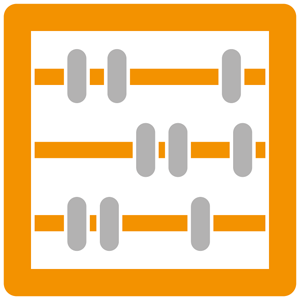
Technische Problemlösung
Nächste Termine
Kursbeschreibungen
Eine der gefragtesten Fähigkeiten unserer Zeit ist das Lösen komplexer Probleme. Im gleichen Maße, wie die Technik Fortschritte macht, wird das Verständnis, die Entwicklung und die erfolgreiche Umsetzung der dadurch geschaffenen möglichen Lösungen auch immer komplexer. Dies ist in vielen verschiedenen Branchen zu beobachten und verursacht signifikante Probleme an der Front, die zu Problemen in den Bereichen Zuverlässigkeit, Instandhaltung, Projektkosten, Produktleistung und allgemeine Ablaufplanung führt.
In diesem eintägigen Kurs wird ein systematischer, methodischer Prozess gelehrt, der bei der Lösung komplexer technischer Probleme zur Anwendung kommt. Jede Phase des Prozesses wird über verschiedene Anpassungs- und Anwendungsansätze des Prozesses hinaus anhand echter Beispiele vertieft. Der Kurs beinhaltet einen moderierten Gruppenworkshop, in dem ein modernes Beispiel durchgearbeitet wird.
Darüber hinaus ist in der Kursgebühr auch ein Abendessen mit dem Kursleiter enthalten.
Lernziele
• Verständnis und Anwendung eines systematischen methodischen Prozesses, der bei der Lösung komplexer technischer Probleme zur Anwendung kommt.
• Erfahrung im Einsatz verschiedener Techniken zur Erarbeitung und Entwicklung hochwertiger Lösungen, z. B. Triz.
• Erfahrung im Einsatz zahlreicher Techniken zur Beurteilung des Wertes technischer Lösungen, z. B. erweiterte Kompromisse
• Erfahrung in der Leitung einer Sitzung der technischen Workshopgruppe.
Wer Sollte Teilnehmen?
• Systemingenieure
• technische Leiter
• Projektmanager
• Anforderungsingenieure
• Systemarchitekten
• Entwicklungsingenieure
• Verifizierungs und Validierungsingenieure
• Qualitätsingenieure
Teilnehmergebühren
Regulär: 800 CHF
Dauer
1 tag
Trainer
Mike Johnson
Die Komplexität von Produkten entlang ihres Lebenszyklus zu beherrschen ist in vielen Branchen eine grosse Herausforderung geworden. Den Zustand von mechatronischen Systemen während ihrer Entwicklung, Beschaffung und nach dem Verkauf…

Configuration Management
Nächste Termine
Kursbeschreibungen
Die Komplexität von Produkten entlang ihres Lebenszyklus zu beherrschen ist in vielen Branchen eine grosse Herausforderung geworden. Den Zustand von mechatronischen Systemen während ihrer Entwicklung, Beschaffung und nach dem Verkauf zu kennen und zu steuern, ist eine Grundanforderung an heutige Hersteller. Insbesondere die zahlreichen Anforderungen von Kunden und Aufsichtsbehörden sowie die steigende Anzahl von Produktvarianten stellen Herausforderungen für die Verwaltung von Produktdaten, Dokumentation und Änderungen während der Produktlebensdauer dar.
Konfigurationsmanagement hilft, diese Komplexität zu bewältigen und eine effiziente Entwicklung und den Betrieb von Systemen zu ermöglichen.
Die Ziele des Konfigurationsmanagements sind:
• Verwalten aller relevanten Produktdaten und Dokumentationen im Produktkontext
• Bereitstellung einer konsistenten und vollständigen Sicht auf alle Produktkomponenten und ihre gültige Dokumentation entlang der Lebenszyklusphasen (Analyse, Machbarkeit, Entwicklung, Implementierung und Herstellung, Betrieb)
• Integration des Produktdatenmanagements in die Produktlebenszyklusprozesse (Entwicklung, Test, Lieferkette, Betrieb, Logistik, Wartung)
• Verwaltung von Produktvarianten, Änderungen in den Definitions- und Konfigurationsgrundlagen des Produkts
• Unterstützung der Effizienz in der Wertschöpfungskette.
• Ermöglichung neuer Dienstleistungen
Un diesem eintägigen Kurs wird ein grundlegendes Verständnis dafür vermittelt, wie das Configuration Management jede Phase des Produktlebenszyklus unterstützt, angefangen bei der ersten Produktidee bis hin zur Ausserdienststellung komplexer industrieller Systeme. Sie werden mehr über die verschiedenen Configuration Management-Aktivitäten erfahren und erlernen, wie sie mit diesen Aktivitäten die Komplexität beherrschen. Anhand des Produktlebenszyklus werden wir in diesem Kurs die Bedürfnisse der verschiedenen Lebenszyklusphasen hervorheben. Durch die Bearbeitung von realisitischen Beispielen identifizieren wir verschiedene Ansätze, um häufige Fallstricke zu vermeiden und den Konfigurationsmanagementprozess auf ihre Bedürfnisse abzustimmen.
Lernziele
• Den Produktlebenszyklus aus der Perspektive der Produktdaten zu verstehen. • Verständnis der Anforderungen für die Verwaltung von Produktdaten gemäß den individuellen Anforderungen eines Industrieunternehmens. • Sich mit den allgemeinen Begriffen, Methoden und Vorgehensweisen vertraut machen, die zum Verständnis erforderlich sind, um einen korrekten Konfigurationsmanagementprozess in Ihrem Projekt einzurichten und umzusetzen. • Erleben Sie die Herausforderungen des Produktdatenmanagements anhand eines einfachen mechatronischen Systembeispiels.
Wer Sollte Teilnehmen?
• Systemingenieure
• Entwicklungsingenieure
• Projektleiter
• Anforderungsmanager
• Verifikations- und Validierungsingenieure
• Qualitätsingenieure
• Alle, die sich für dieses Thema interessieren und im Rahmen des eintägigen Kurses, ihre Fähigkeiten in dem Bereich erweitern möchten.
Teilnehmergebühren
Regulär: 800 CHF
Dauer
1 tag
Trainer
Seb Klabes 

Kevin Howard 
The Technical Project Management course provides a solid background of the core Project management disciplines applicable for Engineers taking greater responsibilities for delivering Work Packages and projects where the Project…

Technical Project Management
Nächste Termine
Kursbeschreibungen
The Technical Project Management course provides a solid background of the core Project management disciplines applicable for Engineers taking greater responsibilities for delivering Work Packages and projects where the Project Manager and Systems Engineer need to work close together or where their roles have been combined due to the the project constraints.
The course includes the learning and practicing the application of the Project management methodologies, knowledge areas and enhancing know-how with an interactive workshop covering Project life-cycle and project management knowledge areas. Of focus is the interaction of technical project management and engineering in the areas where both disciplines overlap, to know the synergies and gain understanding of their constraints.
The course attendance is limited to no greater than 12 Participants, thus enhancing the effectiveness of the training.
Lernziele
• To know the project life-cycle and framework
• To know the major project management knowledge areas as scope, time and cost
• To know configuration and change management
• To understand resource and quality management
• How to implement project risk management and mitigation strategies
• To effectively communicate with stakeholders within and outside the project
Wer Sollte Teilnehmen?
The workshop is intended for:
- Systems Engineers
• Technical Project Managers
• Engineering Development Matrix Leaders
• Work Package Owners
• PMO
Teilnehmergebühren
Early Bird: 1,080 CHF; Regular: 1,200 CHF
Dauer
2 tage
Trainer
Piet Belgraver
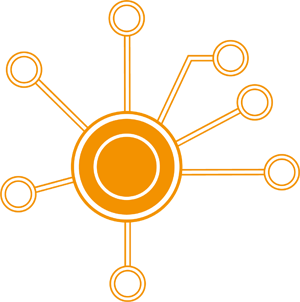
Modelling and Simulations
Nächste Termine
Kursbeschreibungen
Dieser Kurs wird in 2019 veröffentlicht. Weitere Details werden bald folgen.
Teilnehmergebühren
Trainer
Bert Taeymans
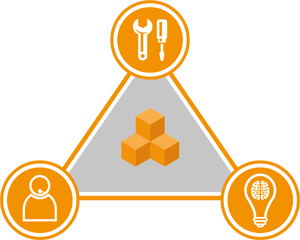
Einführung zur Dienstleistungsorientierten Entwicklung
Nächste Termine
Kursbeschreibungen
Der Übergang von einem rein produktbasierten Geschäft in ein ausgewogeneres Produkt und Service-Geschäft ist in keiner Weise eine einfache Veränderung. Es ist nicht so einfach wie z.B. neue Produkte zu liefern
Ziel dieses einführenden, zweitägigen Workshops ist es, die Gründe für die Bedeutung von Dienstleistungen aufzuzeigen und anschließend Beispiele für sieben Herausforderungen zu erarbeiten, die die Bereitstellung neuer Dienstleistungen verhindern / verzögern können.
In den zwei Tagen erfahren Sie, welche konkreten Schritte Sie in Ihrem eigenen Unternehmen zur Einführung und Optimierung von Dienstleistungen durchführen können. Damit werden Sie in der Lage sein, die Möglichkeiten der Produktservicetransformation zu bewerten und konkrete Implementierungsschritte anzugehen.
Lernziele
• Sie verstehen die Bedeutung des Kundendienstes für Ihre Kunden und somit für Ihre Firma.
• Sie definieren die Rolle des Kundendienstes für Ihre Produkte und lernen wie sie die Chancen für einen erneuten Kauf verbessern.
• Sie sind in der Lage, zu erkennen, welche Formen der Kundenbetreuung wertvoll sind.
• Sie erarbeiten eine Liste von Quick-Wins für Ihre Kundendienstorganisation.
Wer Sollte Teilnehmen?
• Manager und Führungskräfte, die für die Dienstleistungserbringung und den Kundendienst verantwortlich sind.
• Manager und Führungskräfte der Produktent- und Geschäftsentwicklung.
Teilnehmergebühren
Frühbucher: 1,350 CHF. Regulär: 1,500 CHF
Dauer
2 tage
Trainer
Shaun West

Analyse von Lebenszykluskosten
Nächste Termine
Kursbeschreibungen
Dieser Workshop basiert auf der Verwendung eines Total Cost of Ownership-Modells, das im Wesentlichen die Betriebslebensdauer der Ausrüstung und Dienste berücksichtigt, die benötigt werden, um Ihre Anlagen betriebsbereit zu halten. Wir werden berücksichtigen, dass sich die Anforderungen (oder Missionen) des Unternehmens und somit auch für die Anlagen im Laufe der Zeit ändern und dass sich auch die Technologie rund um die Ausrüstung ändert. Wir werden einen Avatar (oder digital twin) für die Anlage und ihren Lebenszyklus von der Wiege bis zur Bahre aufbauen. Innerhalb dieses Modells werden auch Themen wie Eigentümerwechsel mit den daraus resultierenden Implikationen betrachtet.
Aufbauend auf dem Lebenszyklus der Anlage werden Sie die Gesamtkosten auf der Grundlage der Aufgaben erstellen, die der Eigentümer / Betreiber durchführen muss, um die Anlage "produktiv" zu halten. Die Aufgaben oder Jobs werden zunächst nicht zugewiesen - die Annahme ist, dass sie geliefert werden müssen, um die Maschine produktiv zu halten. Es wird ein visueller Lebenszyklus erstellt und sie werden erfahren, wie Sie das Modell verwenden können, um über die gesamte Betriebslebensdauer hinweg einen wertvollen Cashflow mit der Anlage zu generieren.
Lernziele
• Sie können ein detailliertes "Total Cost of Ownership" -Modell für neue und bestehende Produkte erstellen.
• Sie lernen wie man das Modell auf Basis einer bestehenden, strategischen Marketingbasis verwendet.
• Sie lernen wie Sie Ihr Unternehmen taktisch im Bereich Produkt- und Businessentwicklung unterstützen können.
Wer Sollte Teilnehmen?
• Manager und Führungskräfte, die für die Dienstleistungserbringung und den Kundendienst verantwortlich sind.
• Manager und Führungskräfte der Produktent- und Geschäftsentwicklung.
Teilnehmergebühren
Regulär: 800 CHF
Dauer
1 tag
Trainer
Shaun West
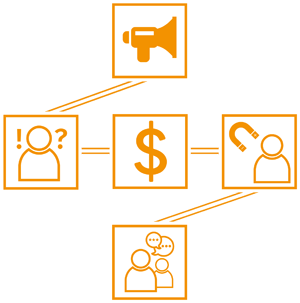
Customer Journey Mapping
Nächste Termine
Kursbeschreibungen
Customer Journey Mapping ist ein Schlüsselelement bei der Entwicklung und Verbesserung der Kundenzufriedenheit, die für langfristige, nachhaltige Geschäftsbeziehungen von entscheidender Bedeutung ist. Der Kartierungsprozess bietet tiefe und umsetzbare Einblicke in die Kundenkontaktpunkte, die mit digitalen Diensten in unserer Multi-Channel-Welt immer wichtiger und komplexer werden. Der Prozess bewegt sich hinter dem rationalen Swimlaning-Ansatz für das Prozessmanagement, einschließlich emotionaler Aspekte.
Der Kunde / Nutzer steht im Mittelpunkt dieses Prozesses. Es bietet die Möglichkeit zu verstehen, wie Funktionen und Dienstleitungen dem Kunden helfen , die für ihn wichtigen Ergebnisse zu erreichen.
Die Customer Journey Map ermöglicht es Ihnen, die Welt zu sehen, während Ihr Kunde die Welt erlebt. Wir werden eine Kundenreise planen, die außerhalb der normalen Grenzen des Lieferanten beginnt und endet. Sie werden entdecken, was Ihre Kunden begeistert und warum sie Ihre Kunden begeistern. Sie werden Bereiche finden, die keinen Wert hinzufügen - nur Kosten - und somit entfernt werden sollten.
Lernziele
• Die End-to-End-Reise des Kunden zu verstehen und neu erstellen zu können.
• Aufgaben zu finden, die Ihren Kunden oder Ihrem Unternehmen keinen Mehrwert bieten.
• zu verstehen, wie man Multi-Channel / Multi-Point-Kontakte in eine kohärente Customer Journey integriert.
• Zu erfahren, wie Empowerment Ihrer Mitarbeiter die Situation verbessern kann
Wer Sollte Teilnehmen?
Führungskräfte, die für Dienstleistungs- oder Funktionserbringung oder für den After-Salse Bereich verantwortlich sind.
Teilnehmergebühren
Regulär: 800 CHF
Dauer
1 tag
Trainer
Shaun West

COTS BASED SYSTEMS ENGINEERING (CBSE)
Nächste Termine
Kursbeschreibungen
COTS basiertes System Engineering (CBSE) bringt grundlegende Veränderungen in der Arbeitsweise von Systemingenieuren mit sich. COTS - Commercial Off-The-Shelf-Artikel, kann definiert werden als ein nicht-Entwicklungs-Artikel (NDI) der in erheblichen Mengen auf dem kommerziellen Markt verkauft wird. Beispiele für COTS-Elemente sind: Hardware- und Software-Baugruppen, Geräte und Subsysteme. COTS-Käufe sind Alternativen zu Eigenentwicklungen sowohl im militärischen als auch im kommerziellen Bereich. Die Verwendung von COTS-Elementen wurde in vielen öffentlichen Ausschreibungen vorgeschrieben; Solche Produkte können erhebliche Einsparungen bei Beschaffung, Entwicklung und Wartung bieten. Aber COTS - Produkte können oft hinsichtlich Qualität und Robustheit im geplanten Einsatzgebeit nicht mit spezifisch entwickelten Komponenten mithalten. Die Herausforderung, die sich COTS dem Systems Engineer stellt, besteht darin, diese Systems Engineering-Prozesse in einer Umgebung zu nutzen, in der der Lösungsraum durch die vorhandenen funktionalen und physikalischen Aspekte der COTS-Komponenten begrenzt ist. Dies ist gleichzeitig ein Entwurfsprozess als auch ein Integrationsprozess. Der wesentliche Aspekt, der von COTS eingeführt wurde, besteht darin, dass der Entwurfsprozess jetzt durch eine Reihe von bereits vorhandenen Komponenten eingeschränkt wird, die Funktionen einführen, die von einer bestimmten Entwurfslösung benötigt werden oder nicht.
Lernziele
Die Teilnehmer lernen, wie sie neue COTS-basierte Systeme entwickeln und die grundlegenden Prinzipien des Systems Engineering (SE) im Umgang mit COTS-basierten Systemen anpassen können. Insbesondere lernen sie:
• Die wichtigsten Eigenschaften und Konzepte von CBSE
• Lessons Learned, Vorteile und Herausforderungen mit CBSE
• Prozesse und Lebenszyklen von CBSE
• Requirement Engineering für CBSE
• Test und Evaluierung für CBSE
• Architektur, Design und Komponentenwahl für CBSE
• Identifikation und beherrschung von COTS-basierten Systemrisiken
Wer Sollte Teilnehmen?
Jeder, der an CBSE mit Erfahrung in der Anwendung von SE oder Engineering Design Methoden beteiligt ist, kann von diesem Kurs profitieren. Insbesondere:
• Systemingenieure, die für ihre Entwürfe COTS-Komponenten verwenden.
• Lieferanten, die COTS-Komponenten (Hardware und Software) herstellen und liefern.
• Programm- und Projektmanager, die COTS-Komponenten verwenden oder in Erwägung ziehen.
• Regierungs- / Militär- / kommerzielle Fachleute, die mit COTS-basierten Systemen arbeiten oder daran arbeiten.
Dieser Kurs ist ein weiterführender Systems Engineering-Kurs. Ein Grundkurs oder Erfahrung in der traditionellen SE oder Engineering Design Methoden ist eine Voraussetzung für den Besuch dieses Kurses.
Teilnehmergebühren
Frühbucher: 1,620 CHF. Regulär: 1,800 CHF
Dauer
3 tage
Trainer
Amihud Hari

Creativity and Project Management
Nächste Termine
Kursbeschreibungen
Project management is a well-proven method to deliver a specific outcome to a customer. The outcome can be a tangible product or something much less tangible (such as a change management program). The customer can be internal or external.
What projects have in common is that they are multidisciplinary and team members have to learn to work together, they need to be both creative and disciplined, and to work to a common aim. The project manager has to steer the team to deliver what is needed.
Approaches are needed that supplement the science of project management with the art of project management. This will improve project effectiveness, efficiency and success rate. Helping the team to deliver the right outcomes in the right way.
Interviews of scores of experienced major project managers and leaders of project companies revealed that PM literature and training focus on the science or process of PM. While the actual result is insured by the “art” of PM.
Our experience is strongly in agreement with the need for “art” and the “science” of PM.
Company Results in like industries or divisions within Companies are 20% - 33% higher when the right organizational climate is present. “Healthy” companies increased their earnings by 18%.
Leadership style is part of the “art” of project execution.
This course is available in three different programmes:
• A One Day Introduction Programme that introduces participants to the art of project management.
• A Two Day Immersion programme that explores the art of project management in more depth.
• A Five Day Block Week, which fully explores the depth and breadth of the art and science of project management.
The 5-Day Block Week will run on consecutive days. The first day of the block week constitutes the Introduction Progamme, and participants may choose to only attend this first day.
The first two days of the block week constitutes the Immersion Programme, and participants may choose to only attend the first two days.
Participants may also choose to complete the full 5 days.
For more information, please download our full course prospectus at the top of the 'Courses' section.
Lernziele
• Understanding of the importance of both the art and science of project management
• Ability to identify when art is more important than science
• Ability to identify when science is more important than art
• To understand that ‘it is not just about process’; it is also about people. Ability to balance process with human factors.
• Ability to effectively reflect on both colleagues and one’s own experiences.
Wer Sollte Teilnehmen?
• Anyone who leads projects.
• Anyone who is part of a project team
• Experienced Project Managers and team members who want to improve their effectiveness
• New hires who need to understand Project Management
Teilnehmergebühren
Early Bird: 2,700 CHF. Regular Rates: 3,000 CHF
Dauer
5 tage
Trainer
Shaun West 

Jim Siler 

Systems and Systemic Requirements Engineering and Management
Nächste Termine
Kursbeschreibungen
This course equips participants with the appropriate understanding of the difficulty of writing good requirements, the use of requirement management as an approach for controlling change and measuring the degree of completion of a project over the development, build, test and deliver, portion of the system and software life cycle.
The course uses a mixture of active and passive teaching styles to maximize the effectiveness of the learning opportunity. Participants will be provided with a software tool (Tiger Pro) specially developed as an educational tool with which to write and test requirements.
Lernziele
• Understand the importance of well-written requirements
• Understand why requirements errors cost more to correct than other types of errors in the system development process.
• Deal with poorly written requirements.
• Recognize poorly written requirements and be able to repair them. Create clear and concise well-written requirements.
• Mitigate the effect on cost and schedule due to poorly written requirements.
Wer Sollte Teilnehmen?
• Personnel who specify the development of technology-based systems.
• Engineers and programmers elucidating requirements from customers.
• Designers who work with poorly written requirements.
• Software and hardware testers who need to figureout how to test requirements.
• Acquisition managers, contract specialists.
• Other personnel performing similar roles.
Teilnehmergebühren
Early Bird Rates: 1,350 CHF. Regular Rates: 1,500 CHF.
Dauer
9 tage
Trainer
Joe Kasser

Systems Engineering for Specialist Vehicles
Nächste Termine
Kursbeschreibungen
This course is designed to provide an understanding of a full lifecycle systems approach to the development of specialist vehicles and integration of their systems, particularly in the military context.
This course is delivered in partnership between SE-Training and OptimaSC Independent Systems Consultancy Engineers:
http://www.optimasc.co.uk/training.html
It uses structured training and exercises to explain how to tailor and apply Systems Engineering practices to the specific challenges encountered in this environment. The course is delivered by OptimaSC Independent Systems Consultancy Engineers and is designed as a 4.5 day course.
It will cover:
• The development of vehicles, understanding of requirements, architecture and the integration of sensors, communications, automotive and other systems.
• Integration methods and evaluation strategies.
• The assessment of electrical and electronic sub-systems for platform and information management systems.
• Vulnerabilities, trends and best practice for human-machine interface, computing and software issues.
• Human factors integration and user workload issues.
• Management of Systems Engineering processes across disparate disciplines.
Lernziele
For the individual this course will:
• Teach the application of Systems Engineering processes in a practical and pragmatic way that can be readily applied to real world problems.
• Provide tools to help manage the complexities of modern vehicle systems development.
For an organisation this course will:
• Allow organisations to implement Systems Engineering processes that are appropriate to their business needs.
• Reduce the technical risks of an organisation facing complex vehicle development.
The course will develop the principles of Systems Engineering in the context of developing and integrating complex vehicles. It focuses on the practicalities of applying Systems Engineering by using realistic case studies and real world practical examples.
On successful completion, delegates should be able to:
• Contribute to the planning of the development lifecycle, including phased test and acceptance activities.
• Understand interoperability issues for complex land platforms and understand the supportability of military systems through life in different contexts.
• Participate in stakeholder engagement and requirements engineering in support of assessing the needs for sub-systems and their integration with vehicles.
• Evaluate equipment fits in terms of technological risk, military capability, cost and crew utility.
• Critically evaluate the budget requirement for Size, Weight, Power, communication bandwidth, etc. of armoured fighting vehicles.
• Understand the integration of humans as a system and their influence on the systems performance.
• Identify suitable sensors, sensor interfaces and sensor fusion and communication techniques to improve situational awareness.
• Appreciate the need for electrical and electronic sub-systems.
Wer Sollte Teilnehmen?
The course is suitable for anyone looking to pursue a career or advance in Systems Engineering in relation to specialist vehicles.
Teilnehmergebühren
Early Bird Rates: 2,700 CHF. Regular Rates: 3,000 CHF
Dauer
5 tage
Trainer
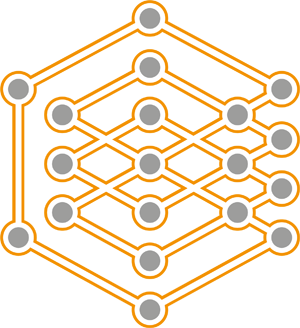
Virtual Product and Solution Development
Nächste Termine
Kursbeschreibungen
This 1 day class is a combination of lectures and workshops. During the workshops we will work on your implementation and roll-out plan. The intention is to provide the audience with an overall understanding of the topic rather than deep-dive into its complexity. This course is well suited as well for small and medium-sized businesses.
Lernziele
• Understand the capabilities, application fields and limitations of numerical modelling and simulations.
• Know the different tools and methods for standard industry purposes such as System- Modelling, simple Physical Models, Multi-Body-, Multi-Physics, Finite-Element (Structure FEM and Fluid CFD) Simulation .
• Understand how these different tools and methods should be combined and integrated into the development process.
• Be able to create a holistic and strategic implementation plan into your organisation.
• Be able to balance investments with expected improvements.
Wer Sollte Teilnehmen?
• Managers and engineers who are responsible to reduce product development time, cost and risks.
• Managers and engineers who want to include modelling and simulation into their development process.
• Simulation engineers who are interested in the bigger picture.
• Everybody in research and development who already thought that simulation might be a good idea but did not know where to start.
Teilnehmergebühren
Rate: 800 CHF
Dauer
1 tag
Trainer
Thomas Meenken
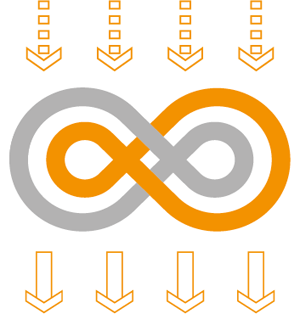
Future Proofing You - Staying Relevant in the Age of Innovation
Nächste Termine
Kursbeschreibungen
Today’s industry has taken us from simple digitalisation of products and services to an overwhelming demand for innovation. Whether you work in Design, Product Development, Project / Organisational Management or business support, or and even in an Education function, the demands on time as well as skills have grown enormously over the past years.
Over the 2-day residential programme, we will be working with the principles and process of ‘Slowing Down to Speed Up’ (Schramer 2007). Through the deeper listening that the process provides, you will be able to identify where you are right now and help you to envision where you want to be – personally and professionally.
You will begin to reveal your current mindset, habits and behaviours that have led you to where you are. You will be able to distinguish those that continue to support you to materialise your vision and those that do not. In so doing, you will be able to make personal and professional choices that will be most fulfilling for you as an individual, and beneficial for your organisation.
Establishing work-life balance and fulfilment is essential for the individual, and beneficial for companies and organisations. (Nanette Fondas 2014).
The tools and techniques you will learn in this programme will support you in both meeting the demands of industry and maintaining a work-life balance that works for you.
Upon completing the programme, there will be a follow-up structure with the facilitators which will provide the opportunity to:
• Share your progress on your individual journey following the programme
• Agree on any further actions to support your intentions
• Identify the need for further support (e.g. coaching), if beneficial.
Lernziele
You will develop:
- Clarity about your professional identity and your core values
• A clear set of commitments to fulfill your personal and professional vision
• An enhanced capacity for sense-making of complex systems
• A tool kit for being more present and effective in groups and teams
• A marked increase in self-awareness of one’s talents and strengths and the confidence to leverage them
• The ability to communicate more deeply through storytelling
• The ability to initiate and engage in courageous conversations.
Wer Sollte Teilnehmen?
Systems Thinkers, Change Managers and Engineering Professionals who
• are in question about how they want to take their career forward
• wish to move laterally within the industry
• who wish to illicit radical and systemic change through meaningful leadership
Teilnehmergebühren
Early Bird Rates: 1,350 CHF. Regular Rates: 1,500 CHF
Dauer
2 tage
Trainer
Andrew Hall 
Rudy Villarreal 
.png)
CPRE Foundation
Nächste Termine
Kursbeschreibungen
Course Overview: The programme provides a comprehensive introduction to the fundamentals of Requirements Engineering, focusing on the foundational understanding of Requirements Engineering techniques, methods and application and the basic theoretical frameworks available.
Lernziele
Be optimally prepared to take the CPRE Foundational level examination
Acquire familiarity with common terminology around Requirements Engineering, Requirements Management and Business Analysis
Understand the basic techniques and methods for Requirements Engineering and their applications
Acquire familiarity with the most established notations for Requirements Engineering
Wer Sollte Teilnehmen?
Systems Engineers
Requirements Engineers
Project Managers
Business Analysts
Product Designers and Developers
Integration, Verification & Validation Engineers
Teilnehmergebühren
Early Bird: 1,620 CHF; Regular: 1,800 CHF
Dauer
3 tage
Trainer
Marco Di Maio 


Oliver Fels 

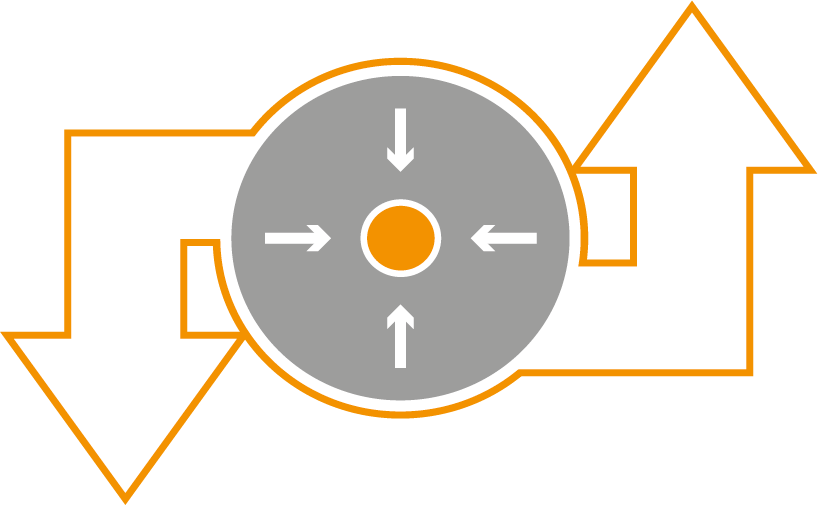
CPRE Agile Requirements Engineering Workshop
Nächste Termine
Kursbeschreibungen
Requirements Engineering principles are comprehensively discussed and are contextualised to be valid for any system: embedded systsm, safety-critical systems and traditional information systems. At the same time, there will also be scope to look at individual cases brought forth by the participants and apply the learned principles to those particularities.
This workshop is not based on any specific software development approach or process, and is intended to be applicable across domains.
Lernziele
Know the definition of Agile Requirements Engineering
Understand the goals of Agile Requirements Engineering
Know who is responsible for good requirements within SCRUM
Be able to ensure a clean project start
Be able to handle functional requirements, quality requirements and constraints
Prioritise requirements based on business value, risk, dependencies and relative effort
Wer Sollte Teilnehmen?
Requirements Engineers
Business Analysts
Business Engineers
Organisation Designers
Teilnehmergebühren
Early Bird: 1,350 CHF; Regular: 1,500 CHF
Dauer
2 tage
Trainer
Marco Di Maio 


Oliver Fels 

.png)
CPRE Elicitation
Nächste Termine
Kursbeschreibungen
Requirements Engineering principles in direct reference to elicitation and consolidation are comprehensively discussed and are contextualised to be valid for any system: embedded systsm, safety-critical systems and traditional information systems. At the same time, there will also be scope to look at individual cases brought forth by the participants and apply the learned principles to those particularities.
This workshop is not based on any specific software development approach or process, and is intended to be applicable across domains.
Lernziele
Understand and apply the skills of a Requirements Engineer.
Apply a framework for structuring and manageing requirements elicitation and conflict resolution.
Apply techniques to identify, classify and manage documents, requirements and stakeholders.
Apply elicitation techniques.
Apply techniques for identifying and resolving conflicting requirements.
Wer Sollte Teilnehmen?
Requirements Engineers
Business Analysts
Business Engineers
Organisation Designers
Teilnehmergebühren
Early Bird: 1,620 CHF; Regular: 1,800 CHF
Dauer
3 tage
Trainer
Marco Di Maio 


Oliver Fels 

.png)
CPRE Advanced Modelling
Nächste Termine
Kursbeschreibungen
The aim of the workshop is to convey knowledge about effective and useful modelling of requirements. You will gain a deeper understanding of how to apply modelling techniques to facilitate better communication, manage system complexity and enable a greater degree of automation in system development activities.
Lernziele
Understand basic principles of Requirements Modelling
Gain ability to use context modelling, to include the use of system boundaries, context boundaries and context diagrams.
Apply the information structure view in requirements modelling, including UML class diagrams, class attributes, data types, binary association, aggregation, composition, generalisation and specialisation.
Apply dynamic views and scenario modelling in requirements modelling inlcuding use case, use case diagram, use case model, data flow, control flow, object flow, data flow diagram, use case specification, activity diagram, function activity, action, state, state machine, event, hierarchisation, and concurrency.
Wer Sollte Teilnehmen?
Systems Engineers
Requirements Engineers
Project Managers
Business Analysts
Product Designers and Developers
Integration, Verification & Validation Engineers
Teilnehmergebühren
Early Bird: 1,620 CHF; Regular: 1,800 CHF
Dauer
3 tage
Trainer
Marco Di Maio 


Oliver Fels 


Basics of Power Grid Operation and Control
Nächste Termine
Kursbeschreibungen
Perhaps more than other industries, engineering for energy has become an increasingly complex process with demands for digitalisation and interconnected services and products in increasing. Thus, a fundamental understanding of utitilies applications and energy digitalisation is essential for all systems engineers working in this domain.
The course provides the basics of energy systems, power grid and energy market operation principles, processes, models and trends, hence allowing participants to understand the development of the energy sector in the past years and in the near future. It also allows to understand the reasons and impacts of energy systems architectural changes.
Lernziele
• Know the basics of power systems organisation, roles and their relationships.
• Gain a holistic view of processes in power grids.
• To understand the development scenarios and their impact on the energy system.
Wer Sollte Teilnehmen?
• Managers
• Project Managers
• System Operators
• Software Engineers
• Software Architects
• Product Owners
Attendees must have basic training in Systems Engineering (e.g. SE Foundations).
Teilnehmergebühren
Regular: 800 CHF
Dauer
1 tag
Trainer
Dmitri Tchoubraev
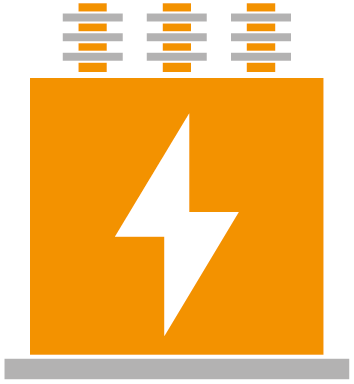
Substations Automation Systems
Nächste Termine
Kursbeschreibungen
Perhaps more than other industries, engineering for energy has become an increasingly complex process with demands for digitalisation and interconnected services and products in increasing. Thus, a fundamental understanding of utitilies applications and energy digitalisation is essential for all systems engineers working in this domain.
The course provides the basics of substations’ and substation automation systems architecture and components, their role in power grid operation. It also shows the basics of data acquisition, communication and control for SAS systems, and gives an overview of the main telecommunication and modelling standards. Providing the main information about Digital Substations, it allows to understand the impacts, chances and risks digitalisation brings to the SAS.
Lernziele
• Know the role of substations in a power system.
• Understand the essential components of substations.
• Reflect on the architecture of the system communications.
• Outline the architecture of information exchange and data collection from consumer installations.
• Gain an overview of emerging technologies and key challenges.
• Understand the basics of digital substations, interfaces and connectivity risks.
• Understand the role of cyber-security for substation automation.
Wer Sollte Teilnehmen?
• Project Managers
• System Operators
• Software Engineers
• Software Architects
• Product Owners
Attendees must have basic training in Systems Engineering (e.g. SE Foundations).
Teilnehmergebühren
Regular: 800 CHF
Dauer
1 tag
Trainer
Dmitri Tchoubraev
.png)
Power System Operations IT Systems (DSO and TSO)
Nächste Termine
Kursbeschreibungen
Perhaps more than other industries, engineering for energy has become an increasingly complex process with demands for digitalisation and interconnected services and products in increasing. Thus, a fundamental understanding of utitilies applications and energy digitalisation is essential for all systems engineers working in this domain.
The course provides the overview of the applications, used by power utilities (both transmission system operators – TSO, and distribution system operators – DSO). It also shows the basics of data acquisition, communication and control for electrical grids SCADA systems, and gives an overview of the main telecommunication and modelling standards.
Lernziele
• Know common architectures.
• Understand the application environment of a power grid operator (TSO and DSO).
• Know the tasks and interaction of individual applications of grid and market operations.
• Know the tasks of network operation SCADA/EMS/DMS systems and corresponding solution approaches.
• Know the tasks of frequency and load control systems.
• Understand the most important solution-based approaches and challenges for individual application categories.
• Understand the role of service-based architecture and enterprise integration for the IT systems of the future.
• Understand the role of cybersecurity for the IT/OT applications.
Wer Sollte Teilnehmen?
• Project Managers
• System Operators
• Software Engineers
• Product Owners
Attendees must have basic training in Systems Engineering (e.g. SE Foundations).
Teilnehmergebühren
Regular: 800 CHF
Dauer
1 tag
Trainer
Dmitri Tchoubraev
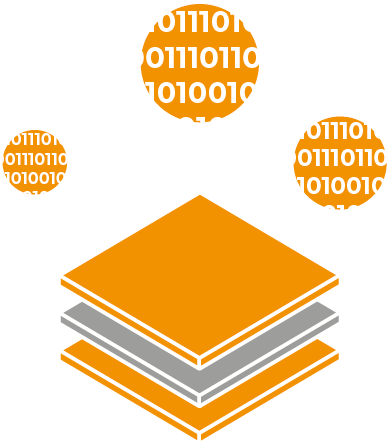
Digitalisation, Automation and End-to-End Data and Process Integration
Nächste Termine
Kursbeschreibungen
Perhaps more than other industries, engineering for energy has become an increasingly complex process with demands for digitalisation and interconnected services and products in increasing. Thus, a fundamental understanding of utitilies applications and energy digitalisation is essential for all systems engineers working in this domain.
The course provides the basics of digitalisation, automation and integration in the environment of power utilities and comparable industries (different types of network operators – transport, gas, railway, etc.). It shows the approaches, that can be taken for internal enterprise data integration and the ways, the utilities in Europe shall be integrated. It also shares some best practice approaches and discusses their chances and risks.
Lernziele
• Understand the challenges of application integration for power grid operators (TSO, DSO) and similar industries
• Know the main integration approaches, tools and solutions
• Distinguish between different kinds of customers and corresponding process automation solutions
• Know the requirements towards TSO-centric integration (standards, media, processes)
• Understand the role of cyber-security in the IT / OT integration
Wer Sollte Teilnehmen?
• Project Managers
• System Operators
• Software Engineers
• Software Architects
• Product Owners
Attendees must have basic training in Systems Engineering (e.g. SE Foundations).
Teilnehmergebühren
Regular: 800 CHF
Dauer
1 tag
Trainer
Dmitri Tchoubraev

Basics of Enterprise and Software Architectures
Nächste Termine
Kursbeschreibungen
Perhaps more than other industries, engineering for energy has become an increasingly complex process with demands for digitalisation and interconnected services and products in increasing. Thus, a fundamental understanding of utitilies applications and energy digitalisation is essential for all systems engineers working in this domain.
The course provides the basics of energy systems, power grid and energy market operation principles, processes, models and trends, hence allowing participants to understand the development of the energy sector in the past years and in the near future. It also allows to understand the reasons and impacts energy systems architectural changes.
Lernziele
• Gain a brief and practice-oriented overview of the basics of the Enterprise Architecture and related topics.
• Gain new insights to generate your own ideas.
• Understand and apply best practices that allow productive discussion of problems with other suppliers (including non-electrical utilities).
• Understand how to structure one’s business in an effective yet standard compliant way.
• Define the business and IT-applications landscape so that you, your management and your suppliers (also new ones) can understand it.
• Apply the “out-of-TSO/DSO-box-thinking”
Wer Sollte Teilnehmen?
• Project Managers
• System Operators
• Software Engineers
• Product Owners
Attendees must have basic training in Systems Engineering (e.g. SE Foundations).
Teilnehmergebühren
Regular: 800 CHF
Dauer
1 tag
Trainer
Dmitri Tchoubraev
New Drivers for Energy Utilities
Nächste Termine
Kursbeschreibungen
While Energy Utilities ought to guarantee the stability of the power system, they are subject to severe and accelerated change, driven by global trends such as the:
- transformation of the energy system to carbon-free
• coordination and harmonization of system and grid operation
• convergence towards international electricity markets
• emerging sector-coupled, multiphysics operated system
• impact of digitalization
Digital trends, both in the form of utility-internal enablers and challenging external factors, are playing a significant role in mastering this change.
The energy companies’ ability to utilize the potential of new digital technologies is restricted due to the mission-critical nature of their business, a highly complicated systems mix and a shortage of technological courage by the main system suppliers.
What are the possible outcome scenarios, and what does that mean for the utilities’ digital strategy?
Lernziele
In this presentation, we will discuss the main trends and challenges the Energy Utilities are facing and their possible impact on the digital and data strategies and architectures.
These include:
- The main trends influencing the energy sector
• The role of digitalization for Energy Utilities
• Possible routes moving forward
Wer Sollte Teilnehmen?
This webinar is for anyone who is…
- Responsible for decision making
• In a lead role within Data, Digital and IT/OT teams
• In a role within Business, Enterprise or IT Architect
• Interested in the future of digitalization and application landscape
Limited spaces available. Save your seat and register now for FREE.
Teilnehmergebühren
FREE
Trainer
Dmitri Tchoubraev
Reducing the Cost of Requirements
Nächste Termine
Teilnehmergebühren
Trainer
Marco Di Maio 


Colin Hood 

Software Craftsmanship
Nächste Termine
Teilnehmergebühren
Trainer
MBSE Adoption: Empowering the Human Factors of MBSE Adoption Using ADKAR
Nächste Termine
Teilnehmergebühren
Trainer
Mohammad Chami
WEBINAR: Customer Journey Mapping - Moving Beyond the User
Nächste Termine
Teilnehmergebühren
Trainer
Shaun West
The Self and Social Competence course provides theoretical background and hands-on practical exercises across various “soft skills” topics that are pertinent to working in teams, especially tailored to the context…
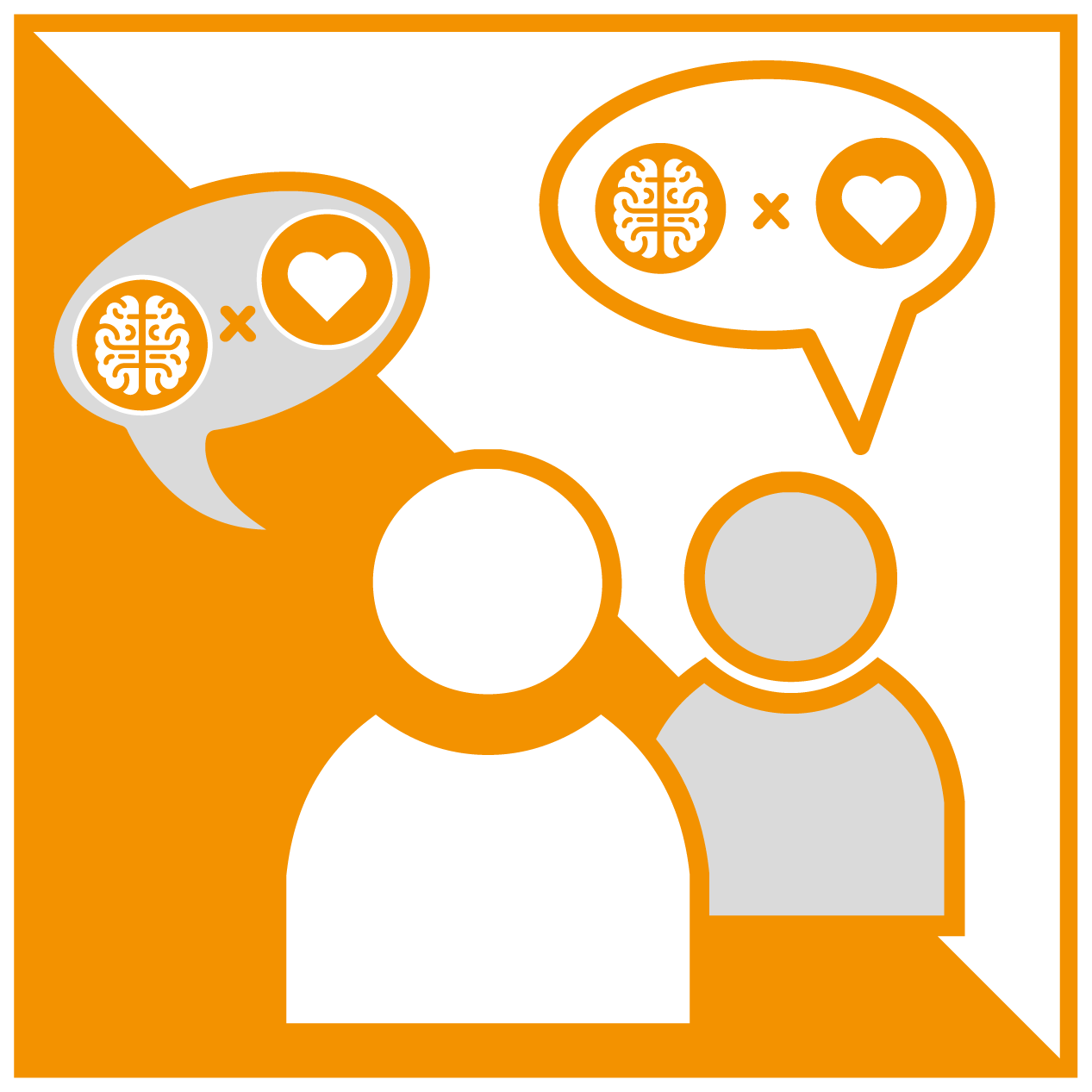
Self and Social Competence for Engineers
Nächste Termine
Kursbeschreibungen
The Self and Social Competence course provides theoretical background and hands-on practical exercises across various “soft skills” topics that are pertinent to working in teams, especially tailored to the context of Engineers.
We all know technical ability is essential to every system engineer, but soft skills are just as valuable if you want to become an asset in the workplace. They are the characteristics imperative to building successful relationships and the attributes which empower you to make decisions and give you the confidence to manage yourself and inspire others.
Soft skills encompass a vast range of skills from communication, innovation, conflict resolution, adaptability, collaboration and motivation - all of which are vital in negotiating the dynamic engineering landscape. Yet, these are often overlooked in favour of technical learning, leaving many with a void of skills, and the opportunity to boost work practices.
Teams are complex systems, and so they must be managed as such.
Over two full days, we will cover the following areas:
- Self-management, self-competence and social competence.
- Understanding how our mental models and cognitive biases affect our actions.
• Refining and improving your communication style.
- How to have more successful interactions at work (and at home).
- Addressing conflicts and assessing ways to best resolve them.
- Identifying our individual stress coping techniques and discovering concrete ways to improve our energy balance in the long-term.
Lernziele
Upon completion of the programme, participants will:
- gain awareness of their own mental models and cognitive biases
- be able to identify certain communication patterns in themselves and others, and thus be empowered to respond constructively.
- be confident in managing conflicts and in a productive manner.
- have developed conscious awareness of their own stress coping strategies, and the tools and techniques to navigate them for improved communication and overall wellbeing.
Wer Sollte Teilnehmen?
Research and Development Engineers, Project Managers, Team Leaders and Individuals who:
- are interested in more constructive social interactions
- are looking to improve their stakeholder management skills
- are looking to enhance their team's spirit and engagement
Teilnehmergebühren
Early Bird: 1,350 CHF | Regular: 1,500 CHF
Dauer
2 tage
Trainer
Sandra Roth
This intensive 5-day course is delivered by four experts, each with a distinct range of knowledge, skills, and experience, meaning you will gain a diverse and comprehensive view of advanced…
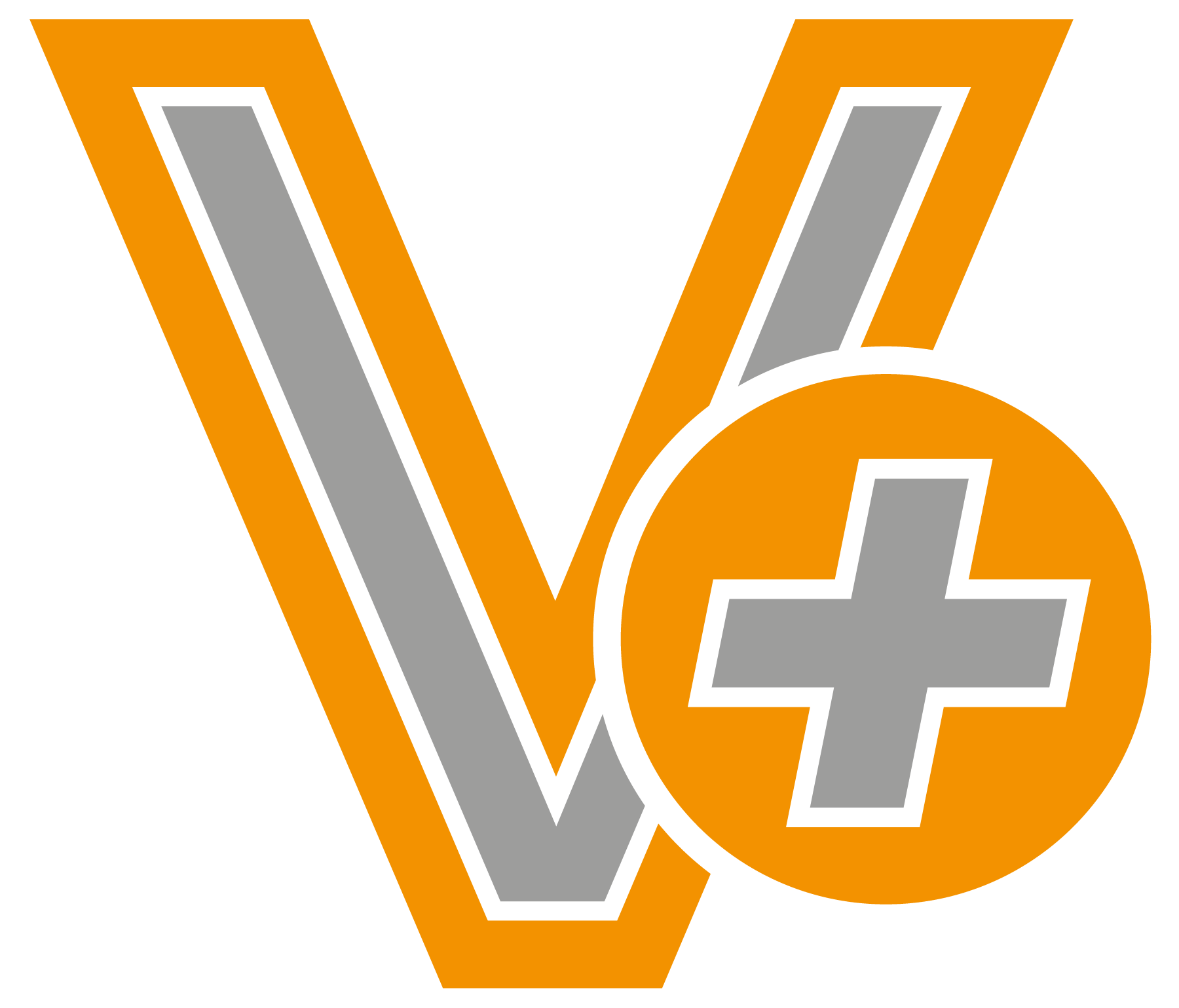
SE Advanced
Nächste Termine
Kursbeschreibungen
This intensive 5-day course is delivered by four experts, each with a distinct range of knowledge, skills, and experience, meaning you will gain a diverse and comprehensive view of advanced SE, and an unparalleled, interactive learning experience.
This course has been devised to compliment your work within complex product development as you take on more responsibility and mature into more senior roles.
Lernziele
• Identify common attributes and causes of complexity.
- Master the application of Systems Engineering methodologies to complex system developments.
- Master key technical management competences required for matrix/project leaders.
- Apply soft skills applicable for technical matrix/project leaders.
- In a moderated workshop develop sustainable solutions in the System of Systems context.
Wer Sollte Teilnehmen?
Intended for those who have completed an SE Foundations course or those looking to progress to/or currently in technical matrix leadership positions.
Teilnehmergebühren
Early Bird: 3375 CHF | Regular: 3750 CHF
Dauer
5 tage
Trainer
Seb Klabes 

Mike Johnson 
Marco Di Maio 


Sandra Roth 

This three-day intermediate level course covers the WHY, WHAT and HOW of Systems Architecting by teaching the following:
Understanding the WHY: The need for employing architectures to help cope with…

Systems Architecting Intermediate level
Nächste Termine
23.10.2024 - 25.10.2024, Zürich
Kursbeschreibungen
This three-day intermediate level course covers the WHY, WHAT and HOW of Systems Architecting by teaching the following:
Understanding the WHY: The need for employing architectures to help cope with the overwhelming nature of complexity.
Explaining the WHAT: Architectures provide different system perspectives and are ideal entry points to effectively structure your information.
Introducing HOW: Modelling System Architectures using the COFLP Framework: Contextual/Operational/Functional/Physical/Logical.
- Top-Down modelling of Operations (Missions/Scenarios/Use Cases) yields clarity and allows for re-use of Functions;
- The Functional Architecture elicits Requirements: Functions = Functional RQ; Object Flows = Performance
- The Logical Architecture makes high-level technology and responsibility choices providing the means for identifying Operational & Functional IF
- The Physical Architecture is different in nature, as its elements have to match the Functional Specs which typically happens at the lowest level (bottom-up). They then have to be integrated taking into account all physical constraints concentrating on the optimum (co-)location.
Lernziele
• What is systems architecture and how does it differ from the system design?
• How does it relate to Systems and Holistic Thinking?
• What makes a good architecture: how many architectures do we need?
• What makes up a good architecture so important in the context of complex systems?
• Why are Interfaces such a fundamental concept in Systems Architectures?
• What is the relationship between the Operational Architecture and systems control?
• Can/should we develop the architectures for a system and its Digital Twin together?
• How does it help with decision making for an uncertain development environment?
• Why is it important to develop variants and provide variation points and how do they relate to the interfaces?
• What is a logical and repeatable methodology to develop architectures?
• How can we model the architectures? Do we need MBSE? Do we need tools?
• How can we ensure that the models are consistent and connected?
• Where can one customise the architectures?
• When is an agile approach permissible, when should you take extreme caution?
• How do architectures help developing the system for safety, reliability, availability, maintainability, and inspectability?
• Why is it important to separate the system’s (sometimes called “logical”) from the physical architectures?
• How do all architecture map to the others? Why is mapping a powerful mechanism in developing for complexity?
• What is the timing relationship between the various system (logical) architectures and the physical design?
• What are the main skills of a senior Systems Architect?
Wer Sollte Teilnehmen?
Systems Engineers, Lead/Senior Engineers, Systems Analysts and Systems Architects.
Teilnehmergebühren
Early Bird: 2025 CHF | Regular: 2250 CHF
Dauer
3 tage
Trainer
Marco Di Maio
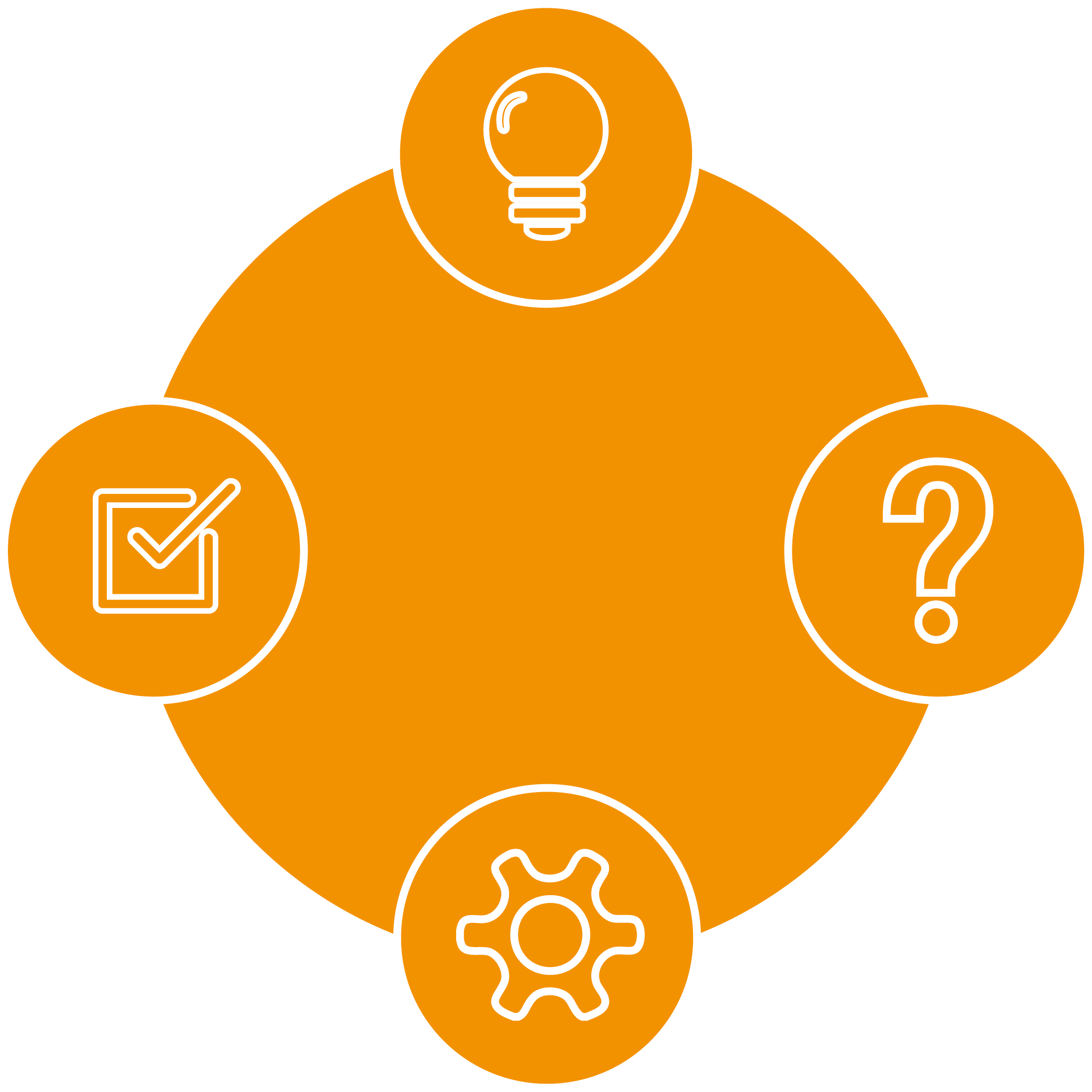
FREE WEBINAR
Nächste Termine
Teilnehmergebühren
Dauer
0.1 tag
Trainer
Patrick Link
EU law requires that controllers put in place measures to effectively implement data protection principles and to integrate the necessary safeguards to meet the requirements of the regulation and protect…

Design for Privacy
Nächste Termine
Kursbeschreibungen
EU law requires that controllers put in place measures to effectively implement data protection principles and to integrate the necessary safeguards to meet the requirements of the regulation and protect the rights of data subjects.
These measures should be implemented both at the time of processing and when determining the means for processing. In implementing these measures, the controller needs to take into account the state of the art, the costs of implementation, the nature, scope and purposes of personal data processing and the risks and severity for the rights and freedoms of the data subject.
In addition, controllers and processors are obliged to design the data processing in such a way as to prevent or minimise the risk of interference with those rights and freedoms and implement technical and organisational measures which take into account the implications of the right to the protection of personal data at all stages of the data processing.
We will focus on the following principles:
- Lawfulness of processing & Fairness of Processing & Transparency of Processing
- The principle of purpose limitation
- The data minimisation principle
- The Data accuracy principle
- The Storage limitation Principle
- The Data security principle
- The Accountability principle
Lernziele
At the completion of training, the trainee will be able to achieve the following outcomes:
- GDPR principals and rules related with Data Privacy by Design
- How to approach to each process within System engineering of a new or existing platform.
- How to make Risk Analysis of each process which contains vital data such as Personal Data.
- How to mitigate the process with high risk to low risk within any platform existing and or new.
- How to define / create Technical and organizational Measures to protect the vital data which is both Company confidential Data and Personal Data according to GDPR.
- How to make decision of putting the processes under right legal basis according to GDPR.
- How to make the platforms secured especially in case of Cyber-attacks and attacks from Internal organization.
Wer Sollte Teilnehmen?
• Engineers
• Product developers
• Programme, software or website designers
• Other managers responsible the development of products and services where data privacy is critical.
Teilnehmergebühren
Early Bird: 1350 CHF | Regular: 1500 CHF
Dauer
2 tage
Trainer
Hakan Hasserbetci
This course will provide attendees with a solid foundation in the design of secure systems and products. We will define what cyber security means in a product development context and…

Design for Security
Nächste Termine
Kursbeschreibungen
This course will provide attendees with a solid foundation in the design of secure systems and products. We will define what cyber security means in a product development context and how it contributes to safe and reliable operation. To this end, we will need to clarify how security engineering differs from traditional safety and reliability engineering and how it is embedded into the overall systems engineering context. Although the entire product life cycle will be covered, emphasis will be put on the design and development phases, as these are the most important ones from the cyber security perspective. We will look into how to define a product security context and how to derive basic security architecture principles from it. We will then proceed with developing security risk assessment techniques and apply them to the system under design, i.e. we will elaborate on how risk assessment outcomes will result in security requirements that will need to be implemented in the system. Finally, we will discuss how security properties of a system can be validated and verified, both during the development and after entry into service. The course will focus on dependable systems in order to emphasize the intimate relation between safety and security.
Lernziele
• Gain a good understanding of dependable systems and the role of security in their design and development
• Gain an understanding about the security implications of a system design
• Assess the business and project risks associated with specific design decisions
• Estimate the cost of security incidents
• For all stages of the product life-cycle, be able to outline the key elements
associated with “designing for security”
• Have an overview of the tools and techniques employed by cyber security
specialists when adopting a risk-based approach to security
• Have an appreciation of the security issues associated with software, human/system interactions, novel technologies, complex system of systems and autonomy
Wer Sollte Teilnehmen?
• Design engineers needing to improve or refresh their product security knowledge to enhance their integration within a Systems Engineering team
• Safety engineers who need work together with security engineers on a
common system design and have not yet been exposed to the topic
• Project and program managers wishing to understand how poor security
engineering can lead to prohibitive business and project risks
• Engineering managers wishing to improve their specialist knowledge order to gain the most from their security team
• Business leaders wishing to understand their legal and moral responsibilities
to ensure that products and systems are designed, commissioned and operated safely and securely
Teilnehmergebühren
Early Bird: 1350 CHF | Regular: 1500 CHF
Dauer
2 tage
Trainer
Stephan Marwedel
Learn the basics of the Polarion® ALM™ platform. Understand the philosophy of Polarion® ALM™ and what potential the systematic use of the tool offers for your requirements management.
…

POLARION BASIS-TRAINING
Nächste Termine
Kursbeschreibungen
Learn the basics of the Polarion® ALM™ platform. Understand the philosophy of Polarion® ALM™ and what potential the systematic use of the tool offers for your requirements management.
Lernziele
Learn to create Polarion® work items, filtering and searching, linking and team collaboration.
• What are the benefits of Polarion®?
• General introduction to Polarion®
• Working with work items
• Working with documents
Wer Sollte Teilnehmen?
• Requirements Engineers
• System Engineers
• Project managers and other users of Polarion® ALM™.
In addition, the offer is directed at all ALM tool interested parties who would like to get to know the handling of an ALM system and try it out for themselves.
Teilnehmergebühren
Regular: 800 CHF
Dauer
1 tag
Trainer
SE-Training Partner Company
The Practical MBSE and SysML course provides a combination of the fundamentals of MBSE and the practical aspects of the adoption of MBSE with its concepts and key enablers for…

Practical MBSE & SysML
Nächste Termine
Kursbeschreibungen
The Practical MBSE and SysML course provides a combination of the fundamentals of MBSE and the practical aspects of the adoption of MBSE with its concepts and key enablers for successful MBSE adoption.
The course first deals with explaining the why of MBSE based on the participants challenges with actual practices. Next, the elements of the MBSE adoption, i.e., process, method, language, and tool are explained and demonstrated with several practical exercises. Particularly, the how, i.e., the method element and its development is trained based on the participants objectives without promoting any specific modelling tool.
Finally, the course wraps up with a discussion of the human-factors of MBSE adoption and the business factors for defining, developing and deploying MBSE in real-world applications. Including what comes after MBSE is deployed to ensure a long-term strategical MBSE adoption.
The course includes individual exercises, as well as group exercises with a daily interactive workshop covering detailed MBSE use cases.
The course can be attended exclusively at a Customer's site or in one of our regular external course venues, where there's a healthy mixture of engineers from different backgrounds.
No prior training is required.
Lernziele
• What is MBSE, modelling language, modelling method and modelling tool?
• SysML basic concepts, elements, relations, and diagrams
• Why should we use MBSE and how it manages system engineering challenges
• How to start with MBSE, what to do and what not to do
• How to develop or customize the aimed MBSE method
• The human-factor aspects related to MBSE adoption
• How to ensure the delivery of valuable and usable system models
Wer Sollte Teilnehmen?
All engineers, particularly systems and software engineers/architects or those who work with requirements, concept description, traceability and aim at improving how they analyse, design, and manage their systems.
All managers, particularly those who aim at deploying MBSE to reduce design time, improve product quality, manage complex products, save cost and ensure reusability.
Teilnehmergebühren
Early Bird Rates: 1,890 CHF. Regular Rates: 2,100 CHF
Dauer
3 tage
Trainer
Mohammad Chami

Workshop for Complex Problem Solving
Nächste Termine
Kursbeschreibungen
Solving complex problems is one of the most urgently required skills in our current time. As technologies become more advanced, the possible solutions created by them become more and more complex to understand, design for and successfully implement. This can be seen across multiple industries and is causing significant front line issues to reliability, maintenance, project cost, product performance and overall schedules.
In this one-day course a systematic methodological process for applying to technical complex problem solving shall be taught through an interactive workshop. Each stage of the process shall be expanded to include real-world examples in addition to various approaches for tailoring and applying the process.
OUR SYSTEMS ENGINEERING BASIS
1. Stakeholder analysis is a deep ongoing discipline. It is far in advance of simpler user/customer considerations, and a key to dealing with complex systems.
2. System and Project stakeholder improvement Objectives all can, and must be, specified quantitatively, and in enough detail to handle the complexity of the stakeholders. These quantified objectives form the logical and clear basis for judging all strategies and architectures.
3. Multiple costs, both short and long term, are resource constraints, that need articulation and must be used to judge and prioritize all potential strategies and architecture.
4. Multidimensional Analysis of multiple design strategies, against multiple stakeholder objectives and costs using a Value Impact Estimation table is a powerful way to keep track of very complex systems at multiple related levels of concern.
5. Decomposition of complex systems: we will show number of advanced methods for decomposing complex problems and projects, so that we can create a value prioritised stream of cumulative value delivery, for early results, for intelligibility of complex system. This is advanced agile engineering
OUR WORKSHOP BASIS:
We will choose a sample classroom problem to work on, possibly one which participants think is interesting or useful
We will divide into 2 person teams, who will work on part of the problem, and we will pool the results of all teams in one coherent dynamic model of specification.
We will use ValPlan as an app (but everything can be done in any word processor or spreadsheet) and use Planguage as a well defined free way to articulate ideas.
We will do the best we can to teach as much as we can in the classroom day. But we will probably only manage to sample 20-40 of the well over 100 specific tools in the books.
We hope that is enough to light your fire, and enable you to bring these ideas into your personal work and to share with your personal environment.
The technologies are all free forever, and can be spread or used as much as you like. Everthing is based open literature.
The methods have been used, researched, and documented, on small and very large scale at well known multinational companies such as Intel, HP, Boeing, Ericsson, Philips, Medtronic and many
others. Including several Swiss Banks! The methods are proven scale free, and they can be gradually adopted to improve your current systems engineering culture, as they prove themselves useful.
ALL PARTICIPANTS RECEIVE THE FOLLOWING:
1. Stakeholder Engineering (digital book)
2. Value Requirements. (Digital book)
3. System Engineering Architecture (digital book)
4. Competitive Engineering (digital book)
Lernziele
• Understanding and application of many Systematic methodological processes for applying to technical complex problem solving
• Ability and motivation to continue learning more based on the included written books.
Wer Sollte Teilnehmen?
ALL roles dealing with Complex technical problems. Notably:
- Systems Engineers
• Technical Leaders
• Project Managers
• Requirements Engineers
• System Architects
• Product Owners
• Project Managers
• Development Engineers
• Verification and Validation Engineers
• Quality Engineers
Teilnehmergebühren
Regular: 800 CHF
Dauer
1 tag
Trainer
Tom Gilb
Organisations need to establish requirements, regardless of their business methods or tool selections. Requirements have to capture the essence of what it is expected from the product or service to…
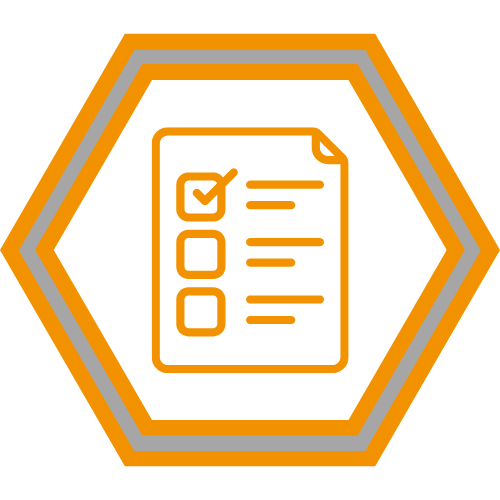
REQUIREMENTS – The GOOD, the BAD and the UGLY
Nächste Termine
Kursbeschreibungen
Organisations need to establish requirements, regardless of their business methods or tool selections. Requirements have to capture the essence of what it is expected from the product or service to be supplied. To have any enduring value, requirements need to be managed and maintained throughout the project lifecycle to ensure that what is achieved at every stage can be demonstrated expressly to meet the Customer’s needs. The techniques used to elicit the requirements at the start of the project lifecycle and the quality of their initial definition have a proven influence on the success, or failure, of the developed product or service.
The objective of the workshop is to understand the key steps in engineering requirements throughout the project lifecycle and to enhance the capability of individual engineers to recognise and create effective requirements.
Lernziele
• Understand the key steps in determining and managing requirements
- Apply effective techniques that help at each step of the process
- Know how to write good requirements and how to avoid writing poor requirements
- Understand a case study as a practical example to demonstrate effective techniques
Wer Sollte Teilnehmen?
• Project Engineering Managers and Project Engineers who are responsible for creating and analysing requirements
- Personnel from all functional areas who are involved in defining and agreeing the requirements
- Functional personnel who are responsible for reviewing requirements and participating in design reviews
- Personnel involved in acceptance activities
- Personnel from all functional areas who use the defined requirements set to guide their activities throughout the project lifecycle
Teilnehmergebühren
Early Bird: 2025 CHF | Regular: 2250 CHF
Dauer
3 tage
Trainer
Gordon Woods
The effective Management of Requirements sits alongside the effective management of Customer Acceptance as the two key process areas that define our interfaces with the Customer and user community. They…
.png)
REQUIREMENTS – Where Customer and Business Needs Meet
Nächste Termine
Kursbeschreibungen
The effective Management of Requirements sits alongside the effective management of Customer Acceptance as the two key process areas that define our interfaces with the Customer and user community. They also determine the context for all the engineering activities on your projects. Requirements and Acceptance can never be separated as independent activities and they also have strong links to most other process areas. There is no universal solution to the problem of how to manage requirements effectively, however, there are techniques and methodologies that will help if used appropriately. The only effective Requirements Management process is one that is tailored to the style of your business and to your Customer.
The objective of the workshop is to enhance your capability to define, review, improve and implement effective processes for the management of requirements. The workshop will cover the principles of effective Requirements Management but will not address specific toolsets that may be used to implement the process for an individual project or business.
Included within the workshop are the following:
- Why requirements need to be managed
- The scope of requirements
- Where requirements come from
- What drives the need to tailor Requirements Management processes
- The classic problems of managing requirements
Lernziele
• Understand the benefits of an effective Requirements Management process
- Apply many effective approaches to the classic Requirements Management problems
- Understand the aspects of a Requirements Management process that need to be tailored to the Business or project
Wer Sollte Teilnehmen?
• Project Engineering Managers and Project Managers who are responsible for defining the Requirements Management Processes
- Functional personnel who are responsible for engineering governance, assurance or process compliance
- Personnel from all functional areas who are involved in the business winning phases of the project lifecycle when the requirements are evolving
- Personnel from all functional areas who are involved in managing the relationship with the Customer and end user community throughout the project lifecycle
- Project personnel who are implementing the Requirements Management process and participating in design reviews
Teilnehmergebühren
Early Bird: 2025 CHF | Regular: 2250 CHF
Dauer
3 tage
Trainer
Gordon Woods
Systems Engineering Overview
Nächste Termine
Teilnehmergebühren
Dauer
0.5 tag
Trainer
Mike Johnson
Are you curious about the role of a Systems Engineer? How are they different to other engineers and what benefits do they bring to teams and organisations? Are you considering…

Systems Engineering: In a nutshell
Nächste Termine
Kursbeschreibungen
Are you curious about the role of a Systems Engineer? How are they different to other engineers and what benefits do they bring to teams and organisations? Are you considering employing a systems engineer but would like to have more clarity about the role first?
Or perhaps you would like to understand the discipline of Systems Engineering a little more? What is it and why does your company need it? How can it enhance complex product design, development and realisation? How does Systems Engineering relate to your department?
If these are the questions that you would like the answers to then let Systems Engineering expert Mike Johnson help. He will explain the who’s, what’s and why’s of Systems Engineering in a straightforward way. By giving you real-life examples of how Systems Engineering can add value to your organisation and efficiency to your projects (think improved processes, revenue targets, quality & performance) you will have a clear understanding of both the role and the discipline.
Mike will also discuss pointers to include in your job advertisements for Systems Engineers' positions as well as highlight which qualifications, experience and skills make a well-rounded Systems Engineer.
You will also learn some handy tips for interview questions so you can feel confident in selecting a suitable candidate for your team/organisation.
This is an interactive course with opportunities to ask questions throughout.
Lernziele
• Understand the basic principles of the Systems Engineering discipline benefiting the adjacent departments such as, Human Resources, Quality, Procurement, Finance, Operations and Support.
• Understand the value of Systems Engineering.
• Understand the role and responsibilities of a Systems Engineer.
• Understand the value a Systems Engineer can add to a team or organisation.
• Understand how to attract a quality Systems Engineer to your company when advertising for a position.
• Know what to ask in an interview.
• Know what to look for when selecting a candidate.
Wer Sollte Teilnehmen?
• Human Resources
• Quality engineering Department
• Finance and Procurement Departments
• Operations and Support Departments
Teilnehmergebühren
Early Bird: 360 CHF | Regular: 400 CHF
Dauer
1.0 tag
Trainer
Mike Johnson
Learn how to comply with the General Data Protection Regulation (GDPR) and the Federal Data Protection Act (FADP) in this two-day course with data protection expert Hakan Hasserbetci.
…

Compliance with the Swiss Data Privacy Act & GDPR
Nächste Termine
Kursbeschreibungen
Learn how to comply with the General Data Protection Regulation (GDPR) and the Federal Data Protection Act (FADP) in this two-day course with data protection expert Hakan Hasserbetci.
From September 1, 2023, all Swiss companies must implement the new Data Protection Act (nFADP). For companies that are not already compliant to the 2018 European General Data Protection Regulation (GDPR), compliance with the new Swiss law could be a lengthy and complex process requiring inputs from legal and technical experts within data protection and privacy.
Therefore, with less than a year to implement these new requirements, companies must act now.
To prepare for compliance with the nFADP, the processes data during the compliancy period must be identified based on the risks involved and analysed. The more data a company processes and/or the more sensitive it is (e.g. related to religion, health, lawsuits, etc.), the more requirements there will be.
This course will enable attendees to gain an overarching knowledge of the GDPR and the nFADP regulations as well as take you through a definitive checklist to ensure compliance.
This is an interactive course which combines discussions, case studies, quizzes, and a final exam.
All course attendees will receive a Data Privacy handbook based on GDPR and FADP.
Lernziele
• Good understanding and comparison of GDPR and FADP regulations.
- Able to check and modify data protection statements (website, contracts, advertising content, etc.).
- Establish a data processing register (except for companies with less than 250 employees and if there is no significant privacy risk).
- Establish procedures for responding promptly to data subjects' requests (e.g., for information or deletion of data).
- Implement a data breach reporting procedure.
- Establish a process for impact assessments that are required when data processing is high risk (e.g., in the case of systematic monitoring of the broader public domain).
- Analyse contracts with subcontractors, to check whether data security is provided and add clauses in this regard.
- Review the countries where data is transmitted, including for simple cloud backup (these countries must be on a Federal Council list. If not, more stringent requirements apply).
- Have an overview of the tools and techniques employed by cyber security specialists when adopting technical measures to security of personal data.
- For all stages of the personal data life cycle, be able to outline the key elements associated with “designing for privacy” & develop security risk assessment techniques and apply them to the compliancy project under data protection by design and by default.
Wer Sollte Teilnehmen?
• Lawyers wishing to improve their GDPR knowledge to enhance their integration within a cyber security team.
- IT Platform engineers wishing to refresh their ‘privacy in developing a platform’ knowledge and enhance their knowhow within a GDPR Personal Data compliancy team.
- Project and program managers wishing to understand how poor security processing of personal data can lead to unexpected personal data breaches and compliancy project risks.
- Business leaders wishing to understand their legal responsibilities to ensure how to get purely compliant by GDPR project team under DPO directive.
- University students studying Law, Engineering, Design etc.
Teilnehmergebühren
Early Bird: 1350 CHF | Regular: 1500 CHF
Dauer
2 tage
Trainer
Hakan Hasserbetci
A 4-day course to gain Systems Engineering skills whilst also being effectively prepared to take the INCOSE ASEP and CSEP exam. The training course is focused on both understanding and…
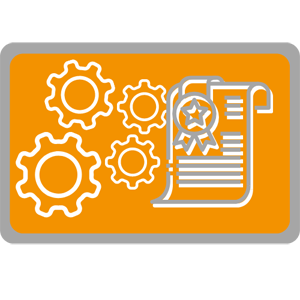
INCOSE SEP Exam Preparation
Nächste Termine
27.05.2024 - 30.05.2024, Zürich
Kursbeschreibungen
A 4-day course to gain Systems Engineering skills whilst also being effectively prepared to take the INCOSE ASEP and CSEP exam. The training course is focused on both understanding and applying key Systems Engineering principles consistent with the ISO 15288 standard and the INCOSE Systems Engineering Handbook, enabling course attendees to both apply Systems Engineering more effectively, and to pass the INCOSE SEP exam.
Lernziele
• Introduction to INCOSE, the handbook and the INCOSE certification model (SEP)
- Understand the key concepts of Systems Engineering
- Thorough review of the processes described in the INCOSE handbook
- Understand the structure and relationships of the ISO 15288 processes
- Extensive practice of realistic questions
- Prepared to take the INCOSE SEP Examination
Wer Sollte Teilnehmen?
• Systems Engineers
• Requirements Engineers
• Integration, Verification and Validation Engineers
• Configuration Managers
• Quality and Process Engineers
• Project and Program Managers
• All Engineers seeking a holistic approach to Engineering
Teilnehmergebühren
Early Bird: 2475 CHF | Regular: 2750 CHF
Dauer
4 tage
Trainer
Seb Klabes 

Mike Johnson 
Piet Belgraver 
Marco Di Maio 


Marco Serra 

Did you ever come across a 42 problem? Probably yes. The 42 problem is an answer, for which we do not have the question. Like products, we have been developing…
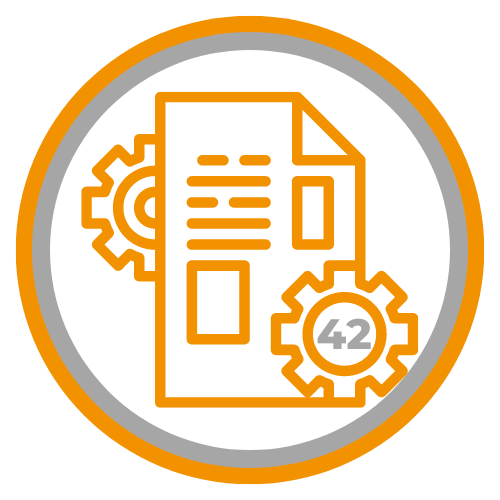
Requirements Engineering - The Hitchhikers Guide
Nächste Termine
Kursbeschreibungen
Did you ever come across a 42 problem? Probably yes. The 42 problem is an answer, for which we do not have the question. Like products, we have been developing over the years, omitting proper requirements documentation, which is the answers to needs, which have been forgotten long ago. Now, everybody is trying reverse engineering with great tools and struggles.
This course gives you the fundamentals of requirements engineering, stakeholder management, and requirements documentation. It builds the basis for a later CPRE certification and introduces you to the basics of RE and its purpose as well as tooling, organizing and communicating requirements in a collaborative and agile workflow. No more misunderstandings and no more 42 problems. Guaranteed.
Lernziele
• Deep understanding about the motivation for requirements & stakeholders
- Capability to differentiate between challenge & solution spaces
- Awareness for the role of the Requirements Engineer
- Application of different types of requirements
- The good and the bad - requirements and quality
- Awareness of the importance of requirements for risk management
- Sorting, structuring and managing requirements
- Requirements verification and validation
- Application of the feature-based approach to requirements
- Toolings and sorting
- Requirements reuse and their role for modularity
- How to apply requirements for regulatory issues
Wer Sollte Teilnehmen?
• Requirements Engineers
• Product Leads
• Product Owners
• Product Managers
• Sales Engineers
• Integration, Verification and Validation Engineers
• Project Managers
Teilnehmergebühren
Early Bird Rate: 1,350 CHF. Regular Rate: 1,500 CHF
Dauer
2 tage
Trainer
Oliver Fels
Engineering is accomplished by engineers and engineers are experts. Often enough, leading experts can be special and conflict management and communication is a high priority topic on the list. Expectation…

Engineering Leadership
Nächste Termine
03.06.2024 - 04.06.2024, Zürich
Kursbeschreibungen
Engineering is accomplished by engineers and engineers are experts. Often enough, leading experts can be special and conflict management and communication is a high priority topic on the list. Expectation management requires full attention as misunderstandings happen quite often.
This course exposes classical leadership techniques enriched with a focus on communication and conflict management.
Lernziele
• Detailed understanding of personal strengths and weaknesses in leadership roles
• Know historic examples of good and bad leadership practices applied to today’s work
• Know effective methods for making difficult leadership decisions
• Understanding of characteristics of leaders
• Apply effective strategies for managing confrontations in senior leadership roles
• Apply practical conflict management
• Managing commercial and executive expectations
• Practicing leading by example
Wer Sollte Teilnehmen?
• Team Leads
• Department Leads
• Product Managers
• Product Owners
• Project Managers
• Management
Teilnehmergebühren
Early Bird Rate: 1,350 CHF. Regular Rate: 1,500 CHF
Dauer
2 tage
Trainer
Oliver Fels
In the near future, providing transparency of an organisations sustainability strategy will become a competitve advantage to stand out from competitors.
Enterprises are becoming more obligated to take global responsibility…

Sustainability Engineering
Nächste Termine
Kursbeschreibungen
In the near future, providing transparency of an organisations sustainability strategy will become a competitve advantage to stand out from competitors.
Enterprises are becoming more obligated to take global responsibility for their actions, recognizing that sustainability is a future driver for a sustainable existence. Increasing pressure is coming from regulatory bodies, financial and investors and the public audience.
This course provides an introduction to the sustainability engineering methodology, which enables clear identification of goals, targets and action items, and provides the means to structure, organize, track, verify and publish sustainability journey using traditional and creative engineering techniques.
In addition, the course is good preparation for compliance with ESG (Environmental, Social, and Governance), SDG (Sustainable Development Goals) and the upcoming CSRD (Corporate Sustainability Reporting Directive) based on ESR (Environmental and social risk management).
Lernziele
• Introduction to extended sustainability issues and impact
• Fundamental knowledge about the regulatory issues and the business impacts
• Clear path how to define the sustainability story line
• Capability to set up, structure, track, validate, and publish sustainability requirements and action items inside and outside
• Vision to use Sustainability Engineering as a basis for CSR or any other sustainability report
Wer Sollte Teilnehmen?
• Sustainability Managers
• Corporate leaders (CEO/CTO/CFO)
• Department Leads
• Sustainability Stakeholders
Teilnehmergebühren
Early Bird Rates: 1,350 CHF. Regular Rates: 1,500 CHF
Dauer
2 tage
Trainer
Oliver Fels
A 3-day interactive course to gain Practitioner’s level skills for Integration, Verification and Validation (IV&V) of complex technical systems.
The training course is focused on both understanding and…

Integration, Verification and Validation (IV&V) Practitioner
Nächste Termine
Kursbeschreibungen
A 3-day interactive course to gain Practitioner’s level skills for Integration, Verification and Validation (IV&V) of complex technical systems.
The training course is focused on both understanding and applying key principles, methods and processes consistent with the ISO 15288 standard and the INCOSE Systems Engineering Handbook, enabling course attendees to be prepared for working within and / or leading the IV&V phase for technical complex systems.
The course learnings are delivered through classroom teaching, short discussions, short exercises, and a facilitated group workshop.
Lernziele
• Know the key concepts and terminology used in IV&V (Integration, Verification and Validation).
• Understand and apply key IV&V aspects from the ISO 15288 standard.
• Understand processes that contribute to IV&V in the design, development, acceptance, and operation of complex technical systems.
• Design and manage IV&V in time efficient interaction with programme logistics.
• Practice the preparation of the IV&V plan.
• Awareness of the main types of tests used in complex system verification.
• Know the use of analysis, inspection, and design review methods for verification and validation.
• Know the possibilities for re-using existing qualification within complex systems.
• Understand the IV&V Change Approval Board.
Wer Sollte Teilnehmen?
• Integration, Verification & Validation (IV&V) Engineers
• Manufacturing, Assembly, Integration & Test (MAIT) Engineers
• Systems engineers
• Development Engineers needing a strong awareness of IV&V
Teilnehmergebühren
Early Bird: 2025 CHF | Regular: 2250 CHF
Dauer
3 tage
Trainer
Mike Johnson 
Marco Di Maio 


Kevin Howard 
Estimating is often a challenging competence within projects developing complex systems. Often this is caused by the application of inappropriate estimation methodologies, leading to severe consequences such as projects running…
.png)
Practical Estimations
Nächste Termine
Kursbeschreibungen
Estimating is often a challenging competence within projects developing complex systems. Often this is caused by the application of inappropriate estimation methodologies, leading to severe consequences such as projects running out of budget prior to their planned completion.
This course establishes a profound fundament through the various phases and why different viewpoints on the numbers are necessary. Learn the different techniques and how to apply each within the lifecycle phase. Learn who to involve and when, how risk management comes into play and the importance of documenting the right assets at the right point of time.
In addition, the various psychological aspects involved with estimating are covered during the course.
Lernziele
• Fundamental understanding about estimations. Purpose, Motivation, error sources
• Understand the psychological challenges of Estimation
• Fundamental understanding of stakeholders involved
• Know what to expect from different estimators
• Understand different estimation phases
• Know major estimation techniques and their application
• Understand the Estimation recipe - what belongs into an estimation and what to document
• Apply Risk and Assumptions Management to Estimations
Wer Sollte Teilnehmen?
• Engineers
• Team Leads
• Project Managers
• Engineering Leaders
• Integration, Verification & Validation Engineers
• Product Owners
Teilnehmergebühren
Early Bird Rates: 1,350 CHF. Regular Rates: 1,500 CHF
Dauer
2 tage
Trainer
Oliver Fels
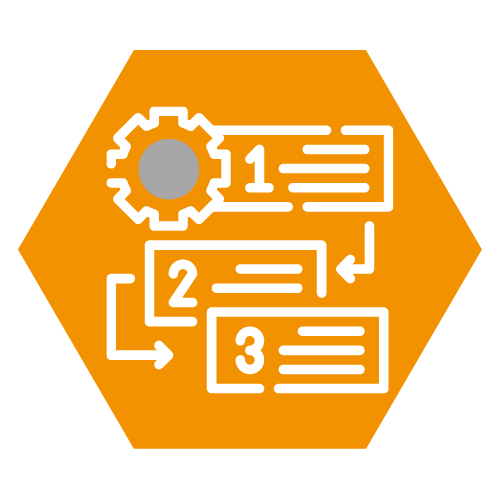
Planning Technical Projects
Nächste Termine
Teilnehmergebühren
Trainer
Piet Belgraver
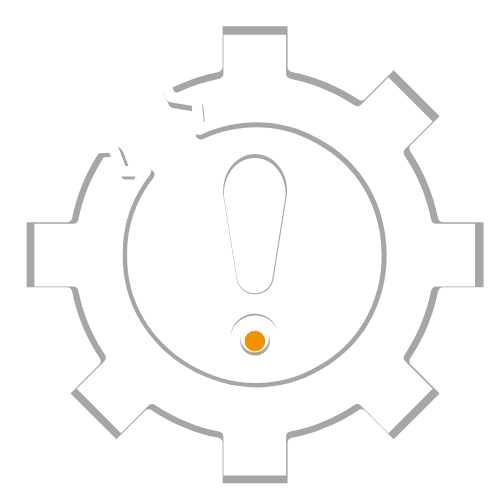
Technical Risk Management
Nächste Termine
Teilnehmergebühren
Trainer
Mike Johnson 
Piet Belgraver 
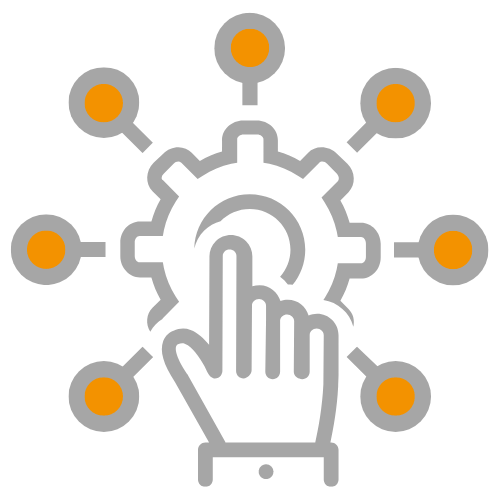
System Dynamics
Nächste Termine
Teilnehmergebühren
Trainer
Marco Serra
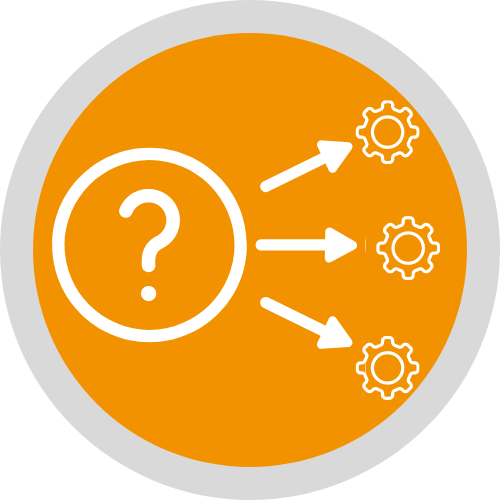
Root Cause Analysis (RCA) of Complex Systems
Nächste Termine
Teilnehmergebühren
Early Bird: 2025 CHF | Regular: 2250 CHF
Dauer
3 tage
Trainer
Marco Serra
You have already had initial experience with Scrum and may have already achieved Scrum Master or Product Owner certification. Now it is a matter of taking the acquired knowledge and…
.png)
Using Scrum successfully – The next step
Nächste Termine
Kursbeschreibungen
You have already had initial experience with Scrum and may have already achieved Scrum Master or Product Owner certification. Now it is a matter of taking the acquired knowledge and the first experiences made one step further and working successfully with Scrum.
The event is designed as a workshop in which we work together on real challenges in everyday Scrum life and find pragmatic solutions that will help you in your specific area of application.
In the course of the course, in addition to knowledge transfer, exchange and group work, we will carry out an extensive agile simulation for one day using the Lego® Serous Play® method.
In order for us to be able to work together optimally within the framework of the Lego Serious Play Simulation, we only offer this course as a face-to-face event. If you would like online training on similar topics, please contact us.
Lernziele
• In-depth understanding of Scrum's success factors.
• Learn and try out tools that will make you and your Scrum Team more successful.
• Answers to specific, personal experiences and challenges in your implementation of Scrum.
• Introduction and experience of the Lego® Serous Play® method
Wer Sollte Teilnehmen?
The participants of this course should have previous experience in the implementation of Scrum and ideally be working in one of the roles below:
- Scrum Master
• Product Owner
• Scrum Developers
• Agile Coaches with Scrum Experiences
• Leaders with Scrum Experiences
We are happy to offer separate training courses for beginners on request.
Teilnehmergebühren
Early Bird: 2025 CHF | Regular: 2250 CHF
Dauer
3 tage
Trainer
Christoph Bisel
Many teams experience the challenge of successfully planning sprints and successfully completing all planned tasks at the end of the sprint. The combination of Scrum and Kanban can offer a…
.png)
Combining Scrum and Kanban successfully
Nächste Termine
Kursbeschreibungen
Many teams experience the challenge of successfully planning sprints and successfully completing all planned tasks at the end of the sprint. The combination of Scrum and Kanban can offer a decisive advantage here.
In this course you will learn how to successfully combine Scrum and Kanban. To do this, we will provide you with the necessary knowledge of Kanban and work together to develop the combination of both frameworks. Scrum knowledge as part of a Scrum basic training is required for this course.
Lernziele
• You know how to successfully use Kanban in knowledge-based environments (IT, marketing, etc.).
• You understand the metrics of Kanban and can use them as a basis for continuous improvement.
• You know how to use Kanban to optimize your Scrum implementation.
• You know the success factors and framework conditions.
Wer Sollte Teilnehmen?
The participants of this course should have previous experience in the implementation of Scrum. We are happy to offer separate training courses for beginners on request.
- Scrum Master
• Product Owner
• Scrum Developers
• Agile Coaches with Scrum Experiences
• Leaders with Scrum Experiences
Teilnehmergebühren
Early Bird Rates: 1,350 CHF. Regular Rates: 1,500 CHF
Dauer
2 tage
Trainer
Christoph Bisel
Scrum supports teams in successfully developing products. But Scrum is not a complete project management method. As a result, many companies use Scrum (or other agile frameworks) but also want…
.png)
Hybrid project management
Nächste Termine
Kursbeschreibungen
Scrum supports teams in successfully developing products. But Scrum is not a complete project management method. As a result, many companies use Scrum (or other agile frameworks) but also want to use elements from classic project management. A hybrid project management is sought.
In fact, "hybrid project management" doesn't exist. It is always a combination of several frameworks.
In this course, we work together to develop the basic questions and elements for the introduction of hybrid project management. In this way we create a basis for you and your team/s to successfully build up your hybrid project management.
Lernziele
• Understand the challenges in the combination of agile frameworks and classic project management.
• Understand the success factors for a hybrid approach.
• Capable of developing a procedure for the development of a hybrid project management plan.
Wer Sollte Teilnehmen?
This course has a high practical relevance. In order to get the most out of it, you should have practical experience with agile frameworks such as Scrum, Kanban, etc. and be familiar with the challenges of your organization in terms of project management.
- Project Manager with some agile Experiences
• Scrum Team Members
• Agile Coaches
• Leaders and Managers
Teilnehmergebühren
Early Bird: 2025 CHF | Regular: 2250 CHF
Dauer
3 tage
Trainer
Christoph Bisel
Systems engineering is focused on managing the development of a product or system rigorously to ensure failure-free operation, ideally for its whole life. Try as we might though, for many…
Root Cause Analysis (RCA) for complex Systems
Nächste Termine
Kursbeschreibungen
Systems engineering is focused on managing the development of a product or system rigorously to ensure failure-free operation, ideally for its whole life. Try as we might though, for many reasons things do fail. The complexity of many of the systems we design, combined with a complex and sometimes unpredictable environment, is such that emergent behaviour can have unforeseen consequences that have to be rectified. To address these problems we have to understand the root causes of such failures and in order to do this successfully, and avoid wasting precious time and resources, we have to approach this complex task in a structured way. We have to understand not only the technical aspects of the problem, but the political aspects associated with the involved stakeholders. The basic systems engineering approach and systems thinking methodologies can help us do that.
This course is presented primarily as an interactive workshop where participants get to solve a practical problem based on the failure of a real system. By working on an unfamiliar problem, the focus on the method is strengthened and its advantages are highlighted. An initial review of systems engineering principles that apply and an in-depth analysis of the problem solving techniques employed in these situations equips the participants with the tools necessary to address the challenge presented in the workshop. The workshop provides the participants with the opportunity to work through a real failure case and present their findings. The outcome of the actual investigation is presented and discussed in a final review that enables the participants to evaluate their own performance.
Lernziele
• Participants understand systems engineering principles that are applicable in complex problem solving.
• Participants understand the importance of considering stakeholder perspective and motivation.
• Participants develop an awareness of analysis methods and tools that can be applied in solving complex technical problems.
• Participants understand how to approach complex technical problems holistically.
• Participants are able to put the knowledge into practice and successfully identify the root cause of the actual system failure resented in the workshop.
Wer Sollte Teilnehmen?
• Systems engineers
• System architects
• Project managers
• Development engineers
• Reliability engineers
• Quality engineers
• Integration, Verification and Validation Engineers
• Product owner
Teilnehmergebühren
Early Bird: 2025 CHF | Regular: 2250 CHF
Dauer
3 tage
Trainer
Marco Serra
Making the right decision in a complex context is difficult. We are able to understand and resolve simple cause and effect relationships, or causal loops, without too much trouble. However,…

System dynamics
Nächste Termine
Kursbeschreibungen
Making the right decision in a complex context is difficult. We are able to understand and resolve simple cause and effect relationships, or causal loops, without too much trouble. However, in the real world these simple causal loops have themselves relationships with other causal loops and once more than a few combine, the emergent behaviour is very often complex and non-intuitive. The world is full of examples of seemingly simple solutions to apparently clear problems that then turn out to be more complex than initially thought, resulting in unintended and sometimes disastrous consequences.
In this course, participants learn to apply systems thinking principles to interpret cause and effect relationships in different systems in order to model them. A short introduction to system dynamics modelling software enables participants to initially build and simulate simple systems in order to gain practical confidence in the use of these types tools. Following this, participants collaborate in teams, with the guidance of the instructor, in an interactive workshop in which they get to build a generic project model that is used to evaluate the effect of a number of technical project management policies on schedule and cost. The gained insights are used to make a number of key decisions and recommendations to senior management (represented by the instructor) in a public presentation.
Lernziele
• Participants understand the concept of systems thinking and can apply it.
• Participants understand the concept of causal loops and know how to represent them for simple relationships.
• Participants understand that different causal loops can relate to each other and know how to represent those relations.
• Participants understand the issues associated with non-intuitive emergent behaviour due to increasing complexity.
• Participants are able to assemble basic causal loops into larger system dynamic models.
• Participants are able to simulate and interrogate a system dynamics model to gain insight into non-intuitive emergent dynamics
Wer Sollte Teilnehmen?
• Systems engineers
• System architects
• Project managers
• Product owners
• Engineering Team leaders
• Anyone with an interest in system dynamics
Teilnehmergebühren
Early Bird: 2700 CHF | Regular: 3000 CHF
Dauer
4 tage
Trainer
Marco Serra
The SE-PDP addresses a fundamental need of many Organisations. With a shortage of senior Systems Engineers and Lead Systems Engineers, how can their teams rapidly increase their SE maturity and…
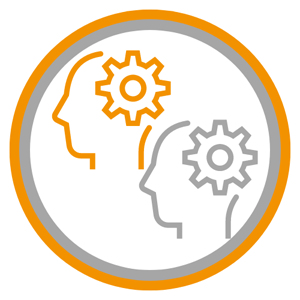
Systems Engineering - Professional Development Programme (SE-PDP)
Nächste Termine
Kursbeschreibungen
The SE-PDP addresses a fundamental need of many Organisations. With a shortage of senior Systems Engineers and Lead Systems Engineers, how can their teams rapidly increase their SE maturity and capabilities in a low risk, cost effective and fully customised professional development programme.
The SE-PDP is structured to be delivered over four on-site training sessions, covering three main areas of Systems Engineering:
1. End-to-end complex systems development (6-days)
2. Integrating specialities / quality attributes applicable to the Customer (3-days)
3. SE Matrix Management & Leadership (3-days)
The SE-PDP is only offered in-house and is highly customisable to project teams and their organisations.
Lernziele
• Identify common attributes and causes of complexity.
• Master the application of Systems Engineering methodologies to complex system developments.
• Master key technical management competences required for Senior Systems Engineers, technical matrix leaders.
• In a moderated workshop develop sustainable solutions in the System of Systems context.
Wer Sollte Teilnehmen?
• Systems engineers
• System architects
• System analysts
• Project managers
• Product owners
• Engineering teams
Teilnehmergebühren
Please contact us for a customised offer.
Dauer
12 tage
Trainer
Seb Klabes 

Mike Johnson 
Mohammad Chami 

Marco Di Maio 


Sandra Roth 

Marco Serra 

Gordon Woods 
Kevin Howard 
This course is will provide the structure, guidance and best practice to allow “Customer” teams to create detailed and executable Concept of Operations (CONOPS), allowing better interactions with their suppliers…
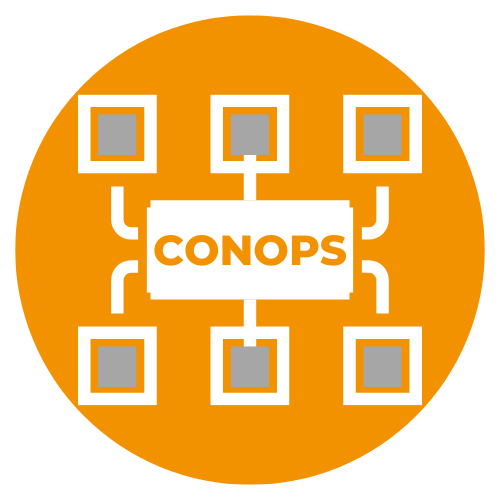
Concept of Operations (CONOPS) - What your suppliers need to know and how to deliver it
Nächste Termine
Kursbeschreibungen
This course is will provide the structure, guidance and best practice to allow “Customer” teams to create detailed and executable Concept of Operations (CONOPS), allowing better interactions with their suppliers and more accurately representing the needs of their users. This will save the customer time and rework, whilst creating the building blocks for system design and integration. The course can be used by candidates from across all sectors of industry that are procuring complex systems and system of systems.
Lernziele
• To be able to define the types of information that shape a problem space
• To understand how to capture user needs
• To understand why CONOPS are required by industry and suppliers
• To understand the the design process which is initiated by the development of a CONOPS
• To be able to describe users and their roles consistently
• To understand environmental constraints and impacts
• To enable the students create their own CONOPS when they return to work
Wer Sollte Teilnehmen?
• Requirements Engineers & Managers
• User representatives
• Systems and Project Engineers
• Project and Programme Managers
Teilnehmergebühren
Early Bird Rates: 1,350 CHF. Regular Rates: 1,500 CHF
Dauer
2 tage
Trainer
Pete Burgess

Security, Cyber and Resilience Engineering
Nächste Termine
Kursbeschreibungen
The focus of this course is on introducing principles and practices for analysing, designing and implementing secure and resilient systems, including cyber systems. Trainees will learn about threat analysis, risk assessment, risk mitigation, business continuity and the security accreditation process. The course aims to equip trainees with the knowledge and skills necessary to understand security management.
Lernziele
• Understand the principles of Security, Cyber and Resilience Engineering.
• Analyse and identify potential threats and vulnerabilities in systems.
• Perform risk assessments and develop risk mitigation strategies.
• Implement security measures and practices to protect systems from cyber threats.
• Learn about business continuity and disaster recovery planning.
• Familiarise trainees with the security accreditation process for systems.
• Acquire skills in security management to ensure robust and resilient systems.
Wer Sollte Teilnehmen?
• Security Analysts
• Cybersecurity Professionals
• Systems Architects
• Systems Engineers
• IT Managers
• Risk Managers
Teilnehmergebühren
Early Bird: 2025 CHF | Regular: 2250 CHF
Dauer
3 tage
Trainer
Vincent Arnould
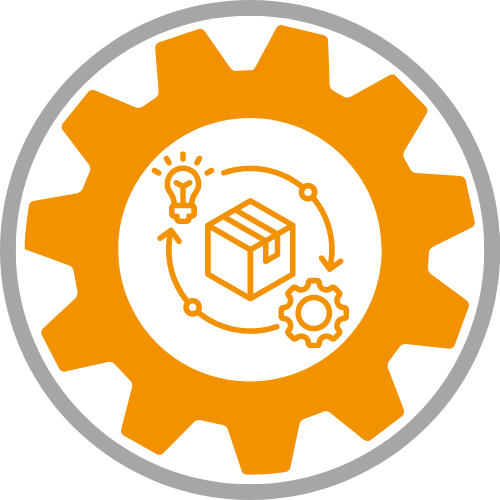
Product-line Engineering and Variant Management
Nächste Termine
24.04.2024 - 26.04.2024, Zürich
Kursbeschreibungen
This course is an introduction to techniques for developing a package of related products using a common set of assets and reusable components. Trainees will learn about feature modeling, configuration management, variability management, product-line architecture, product derivation and software product-line development processes. The course aims to enhance the trainees' ability to manage product variants effectively and optimise their product-line development practices.
Lernziele
• Understand the concept of product-line engineering and its benefits.
• Learn about feature modeling and configuration management.
• Acquire knowledge of variability management and its application in product-line development.
• Familiarise trainees with product-line architecture and product derivation techniques.
• Develop skills in software product-line development processes.
• Optimise product variant management practices for improved productivity.
Wer Sollte Teilnehmen?
• Systems Architects
• Systems Engineers
• Software Engineers
• Product Managers
• Product Development Managers
• Configuration Managers
Teilnehmergebühren
Early Bird: 2025 CHF | Regular: 2250 CHF
Dauer
3 tage
Trainer
Vincent Arnould
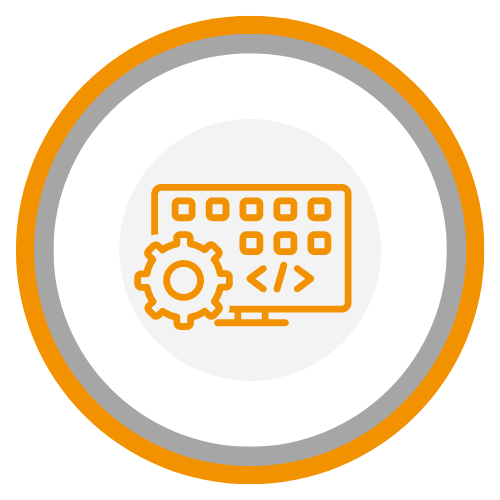
Software Requirements Engineering
Nächste Termine
26.06.2024 - 28.06.2024, Zürich
Kursbeschreibungen
This course covers the process of eliciting, documenting, analysing and managing software requirements requiring the use of techniques for capturing and validating requirements, including interviews, surveys, prototyping and case modeling. The course also covers requirements prioritisation, traceability and management throughout the system and software development lifecycle. The aim is to empower trainees with the skills to bridge the gap between stakeholders and development teams by translating user needs into well-defined system requirements.
Lernziele
• Understand the requirement engineering process and its importance in software development.
• Learn various techniques for eliciting and documenting software requirements.
• Acquire skills in requirements analysis, validation, and prioritisation.
• Explore methods for traceability and requirement management throughout the development lifecycle.
• Bridge the gap between stakeholders and development teams effectively.
Wer Sollte Teilnehmen?
• Business Analysts
• Systems Analysts
• Requirements Engineers
• Software Developers
• Project Managers
Teilnehmergebühren
Early Bird: 2025 CHF | Regular: 2250 CHF
Dauer
3 tage
Trainer
Vincent Arnould
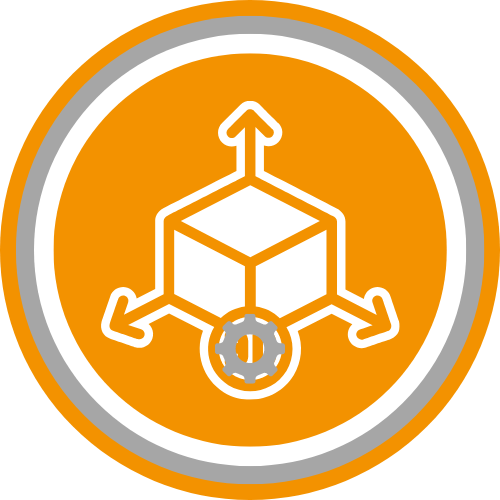
Model Driven Engineering, Architecture, and Development
Nächste Termine
Kursbeschreibungen
This course targets professionals interested in model-driven engineering (MDE) in system and software development. It covers principles and techniques for creating and manipulating models at different abstraction levels. Trainees will learn about domain-specific modeling languages, metamodeling, model transformations and code generation. The course emphasises the benefits of MDE in improving productivity, maintainability, and reusability of systems. The aim is to equip trainees with practical skills in applying MDE approaches in their professional software development projects.
Lernziele
• Understand the principles and benefits of model-driven engineering (MDE).
• Learn how to create and manipulate models at different abstraction levels.
• Acquire knowledge of domain-specific modeling languages and metamodeling.
• Develop skills in model transformations and code generation.
• Apply MDE approaches in software development projects for increased productivity and maintainability.
Wer Sollte Teilnehmen?
• Systems Architects
• Systems Engineers
• Software Architects
• Software Developers
• Modelers
Teilnehmergebühren
Early Bird: 2025 CHF | Regular: 2250 CHF
Dauer
3 tage
Trainer
Vincent Arnould
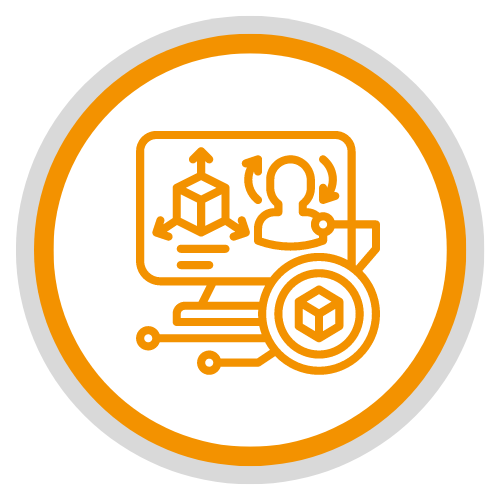
Modeling and Simulation
Nächste Termine
19.06.2024 - 21.06.2024, Zürich
Kursbeschreibungen
This course is designed for professionals seeking to enhance their understanding and analysis of complex systems through modeling and simulation. Trainees will learn various modeling approaches, including discrete event simulation, agent-based modeling, system dynamics and Monte Carlo methods. The course covers topics such as model formulation, experimentation, verification, validation, training and exercises. Trainees will gain practical skills in developing simulation models and analyzing system behavior to support decision-making in their respective professional domains.
Lernziele
• Understand the role of modeling and simulation in analysing complex systems.
• Learn various modeling approaches, including discrete event simulation and agent-based modeling.
• Acquire skills in model formulation, experimentation, verification, validation.
• Analyse system behavior through simulation to support decision-making.
Wer Sollte Teilnehmen?
• Systems Analysts
• Decision-makers
• Researchers
• Engineers in various domains requiring simulation skills
Teilnehmergebühren
Early Bird: 2025 CHF | Regular: 2250 CHF
Dauer
3 tage
Trainer
Vincent Arnould
Product Lifecycle processes are a key pillar for each organization, ensuring consistency, efficiency, quality, and effective management of tasks and activities, ultimately leading to successful and predictable outcomes.
The Process Management…

Process Management
Nächste Termine
Kursbeschreibungen
Product Lifecycle processes are a key pillar for each organization, ensuring consistency, efficiency, quality, and effective management of tasks and activities, ultimately leading to successful and predictable outcomes.
The Process Management course is designed to equip professionals with a comprehensive understanding of process design based on product lifecycle models of ISO 24748 integrating 15288 (Systems Engineering) and its alignment with ISO 9001 (Quality Management).
Participants will acquire practical insights into applying the learned concepts within real organizations. In this context, involving the right stakeholders and establishing the appropriate measures for process quality assurance are equally crucial.
This course encompasses a blend of interactive workshops, individual and group exercises to enhance participants' knowledge and skills in process management. The course emphasizes real-world applications, enabling attendees to apply the principles learned to their specific roles and industries.
Lernziele
● Recognize the pivotal role of product lifecycle processes in organizational success, ensuring consistency, efficiency, and quality.
● Understand how ISO 24748 integrates with ISO 15288 and ISO 9001 for comprehensive process management. I
● Apply product lifecycle concepts effectively in real organizations, addressing unique challenges.
● Identify and involve the right stakeholders crucial for successful process management.
● Design and implement robust measures for process quality assurance throughout the product life cycle.
● Apply process management principles in real-world scenarios, addressing specific industry challenges.Interactive Case Study according to ISO 13485
● Customize process management strategies to align with your professional role and responsibilities.
● Foster a culture of quality and continuous improvement within your organization for long-term success.
Wer Sollte Teilnehmen?
● Quality Managers / Engineers
● Quality Assurance Managers / Engineers
● Process Managers / Engineers
● Process Owners
● Engineering Managers
● Systems Engineers
● Project Managers
Teilnehmergebühren
Early Bird Rates: 1,350 CHF. Regular Rates: 1,500 CHF
Dauer
2 tage
Trainer
Martin Oswald
Dienstleistungen
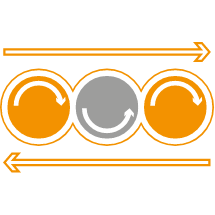 Processes
ProcessesStreamline and optimise your technical and organisational processes.
Process Development
Optimising your technical and organisational processes.
In our work, encountering complexity is inevitable and can become all consuming. By optimising and streamlining processes we are more able to focus on innovating products.
The importance of Processes
Processes are the veins of any Organisation, to function successfully we must ensure they flow smoothly and coherently, working in harmony - not contradiction. Processes are also the pathways that lead us to our goal; they allow us to overcome obstacles, adapt to changes and take different directions. Therefore, it is imperative to have a strong, strategic network of processes which support and enable efficient and effective working practices.
Process Development for Working more Effectively
Processes should help you, not hinder you. Yet, too often, the opposite is true. Organisations can find themselves operating with ineffective processes due to:
- Outgrowing traditional ways of doing things.
- Overly designed processes that do not account for operational day-to-day reality.
- ‘Processes’ that have become cultural habits, formed because there were no alternatives in place.
Assessment
We make an initial assessment of the current status of your Organisation’s Engineering processes to identify processes that can be optimised, replaced and/ or retired.
Workshops
We devise a training workshop (circa. 5 days) to address pain points and train your team on SE Methodologies and processes with specific references to current tools and systems used. We will explore how the process changes will impact on current work practices and build your foundational knowledge of SE principles to support all other areas.
Development
Together we will monitor the system changes and ongoing deployment of process development, adjusting until work practices are optimised and established.
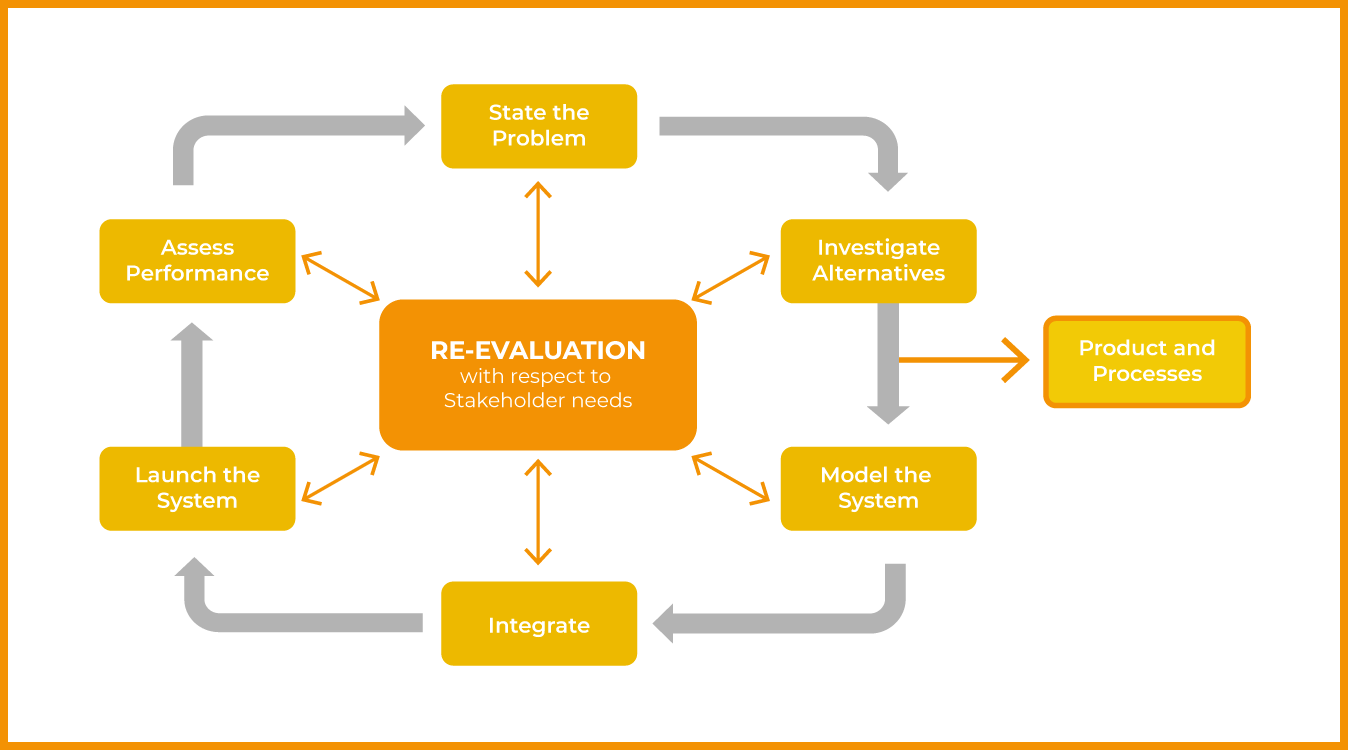
Who’s it for?
Any small, medium, or large Enterprise looking to improve and structure their processes more efficiently and effectively.
 Coaching
CoachingIntegrate positive changes into teams and organisations with our targeted and tailored coaching packages.
Project Coaching
Expert support that is tailored, targeted and timely.
Our coaching will provide you, your project and your team with a supportive, incremental, and multi-phase structure to effectively aid the implementation, development, and continuous improvement of your Enterprise’s capabilities.
We meet you where you are.
Irrespective of your Enterprise’s Engineering maturity, our coaching approach enables us to adapt and enhance your capabilities to your required goals.
Areas of Coaching
We provide coaching across many areas of Engineering, for example:
- Technical Leadership
- Requirements Engineering and Management
- Model Based Systems Engineering
- Systems Engineering Management
- Systems Architecting
- Configuration Management
- Design for Reliability Service Outcomes
- Extensive Design Trade-Offs
- Lifecycle Management
- Risk Management
- Integration, Verification & Validation Strategy
- Project Tracking
Time Blocks and Lean Working Models
Our coaching structure provides intense, effective, and focused blocks of time (days, weeks, or months) for phased activities, tailored to your specific needs.
- We allocate you the expert coach(es) best suited to support you and your unique needs.
- Your coach(es) will be available to you for an agreed period, with time dedicated for documenting, reviewing, and planning.
- Your coach(es) will work alongside your team in their normal working environments.
- You and your coach(es) will implement a flexible working style with minimal resource dependencies.
Service Outcomes
Optimal Teams
Ensure confident and motivated teams by promoting opportunities for them to grow, identifying their strengths and expertise, and leveraging them to effectively apply cross-functional Engineering disciplines on your project.
Tailored Processes
We work alongside or integrate within your project team to tailor and optimise your processes, tools, and organisational management - creating a streamlined and systematic development approach.
Reduced Complexity
We implement and optimise processes to help reduce and effectively manage the Systems complexity across the Lifecycle.
Who’s it for?
Teams and organisations working in complex product development and support. Organisations seeking to set up project team-specific work practices and Engineering processes.
 Training
TrainingIn-house training, developed to the specific needs of your Organisation.
Bespoke Training
In-house training, developed to the specific needs of your Organisation
Our Engineering courses and training programmes are the ideal solution for Enterprises needing to foster innovation, improve multi-functional collaborations and enable complex product development. Working with you, we establish your required outcomes to determine which training options would be most beneficial to your team/project/or Organisation e.g., attending one of our existing training courses or developing a specific training programme which is targeted to your unique needs. We will find the most suitable and complete training solution to ensure you address professional development universally and efficiently across your teams.
TRAINING BENEFITS WITH SE-T
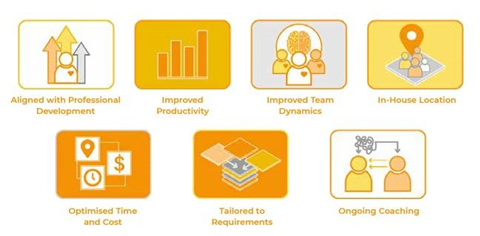
The Tailoring Process
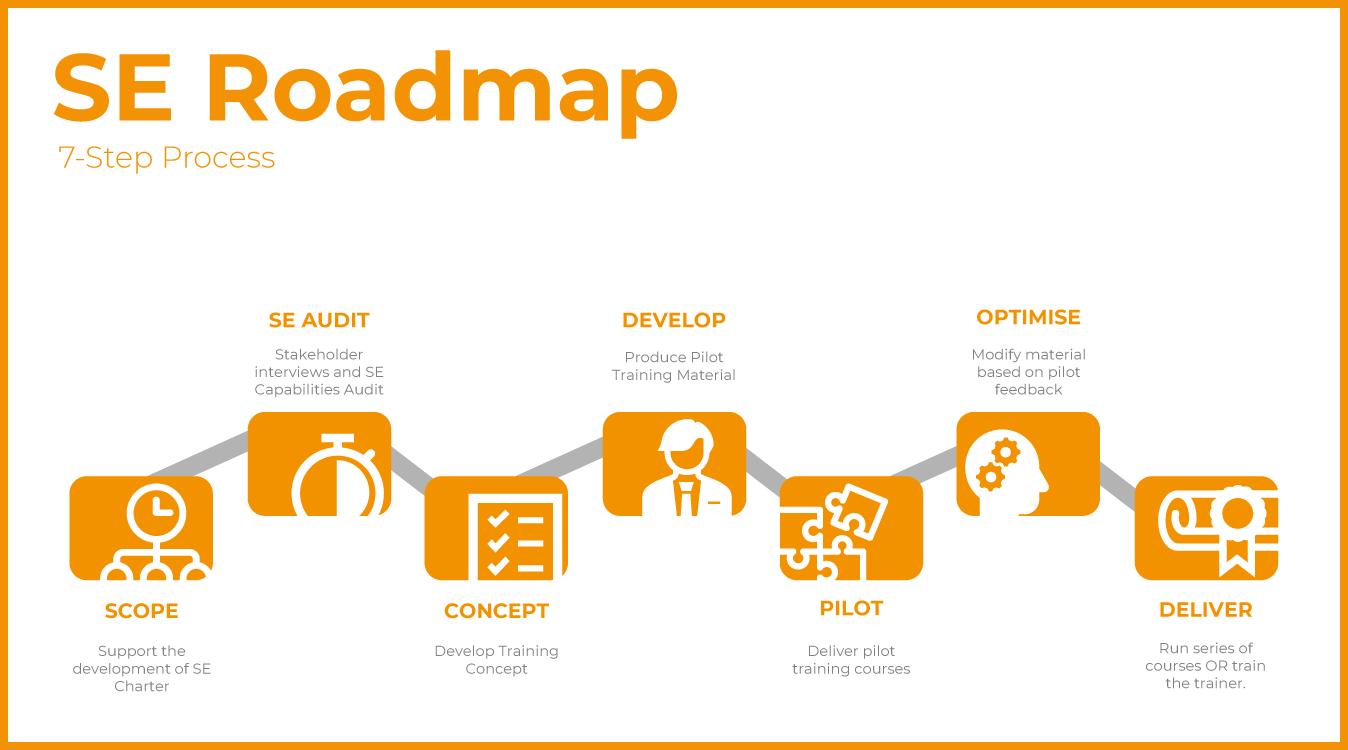 Interview and Audit
Interview and Audit
Creating a tailored training programme is initiated with interviews of the project sponsors, leading to a thorough assessment of your team’s training needs. Key factors considered are:
- Enterprise goals and constraints
- Industry needs
- Education, skills, and experience of employees
- Level of complexity of Systems under development
Proposal and Recommendations
Following our assessment, we propose a training programme, designed to meet your specific requirements. We may suggest:
- Technical training is delivered by several experts, so you receive the highest quality teaching in each identified area.
- Integrating or tailoring one/or more of our existing training courses into your overall training programme .
- Employing a project coach to further boost the implementation, development, and continuous improvement of your Enterprise’s capabilities. We can also tailor the content of any of our existing in-house courses by:
- Including activities in the modules specific to a given domain, such as MedTech, Aerospace etc.
- Tailoring the workshop to a domain specific example (our standard workshop is the Colonisation of Mars).
- Integrating modules from other SE-Training courses, for instance on Systems Reliability, MBSE or Configuration Management.
- Developing new modules on unique subjects, such as Acoustics Systems Engineering.
Develop and Review Materials
Based on the agreed proposal, we will develop and refine your training programme so it is comprehensively tailored and targeted to your project needs (processes, methods, skills etc.).
Pilot and Batch Delivery
Depending on the scope, content, and size of the training programme, we may propose developing *pilot courses as part of the overall series course development. How we deliver the pilot and series delivery is assessed on an individual case-by case-basis.
*These offer added value and assurance to our customers, by acting as highly effective risk mitigations. We advise they are attended by experienced employees to give early feedback on the quality of the content.
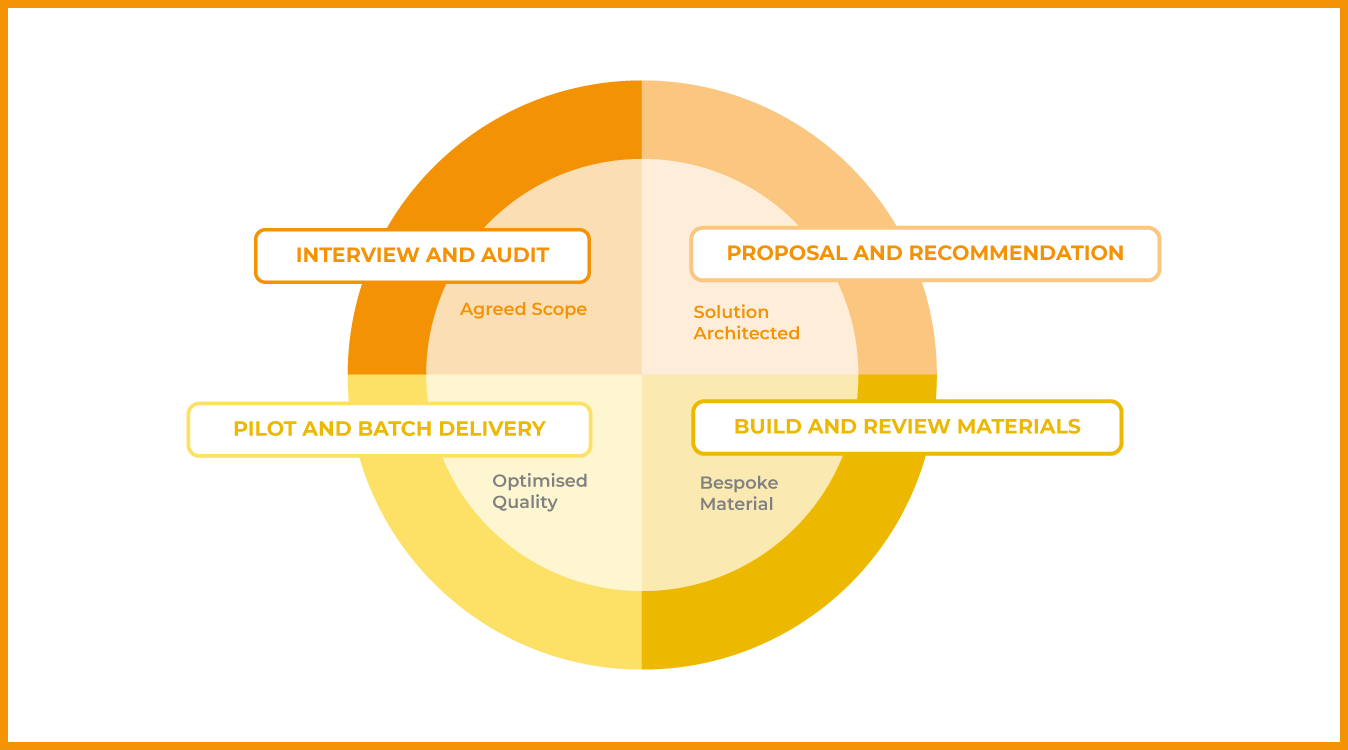
Who’s it for?
- Project teams working on complex product development or support.
- Organisational groups and departments working on improving cross-functional collaborations, especially within medium to large Enterprises.
- Project teams that have a mature Systems Engineering culture, but require targeted input on specific processes, methods and/or skills.
Not sure of the best option for you? Contact us and we can talk it through with you.
 SE Solutions
SE SolutionsFlexible solutions and expert advice to help deliver the results you need.
Off-the-Shelf Solutions
Flexible solutions to help deliver the results you need.
Why re-invent the wheel?
We provide a range of adaptable, downloadable, off-the-shelf, solutions to enhance productivity and business performance.
These include:
- Document templates
- SE Guides
- Recruitment resources
Complex documents made easy
We provide specific, structured, in-depth templates which give you the steppingstone to completing high quality, standard compliant documents. With pre-designed, comprehensive formats that are easily modified and ready to personalise you can avoid document disorder and begin streamlining work practices.
Let us guide you
Our downloadable guides and manuals are an essential resource for your Organisation and an effortless way to seamlessly maintain your records. You can be assured that they are up to date, relevant and reliable.
Ready-made recruitment resources
We offer a range of solutions to support your Systems Engineering recruitment process, including job descriptions and interview activities and questions. These are written to ensure you select the most suitable candidate for your Organisation.
In need of Inspiration?
Expert Support
Often, we are too close to our own projects and need a sounding board, or someone to impart their knowledge and perspective to give us a steer us in the right direction. We offer expert advice for your System Engineering issues. You can arrange an exclusive session with one of our SE-Experts who will offer you invaluable and objective advice to any of your questions. In addition, we offer:
- Expert Peer review of a document, Engineering process, design solution etc.
- Expert advice for recruitment of Systems Engineers.
- Expert moderation for project workshops e.g., for the development of a Functional Architecture.
 Tools
ToolsDefine, develop, and implement the optimal ‘tools suite’ solution for your technical and organisational needs.
Tools Selection
Tool Selection
Determine the optimal ‘tools suite’ for your technical and organisational needs. Identifying the optimal tool integration for your Organisation can be an intimidating and challenging process. There is no one-size-fits-all-systems modelling tool. An accurate and systematic analysis of needs is vital to the tool selection process. Our experts will lead you through a thorough exploration of your requisites and match you with the correct tools for your Organisation.
10 Check Points for Tool Selection
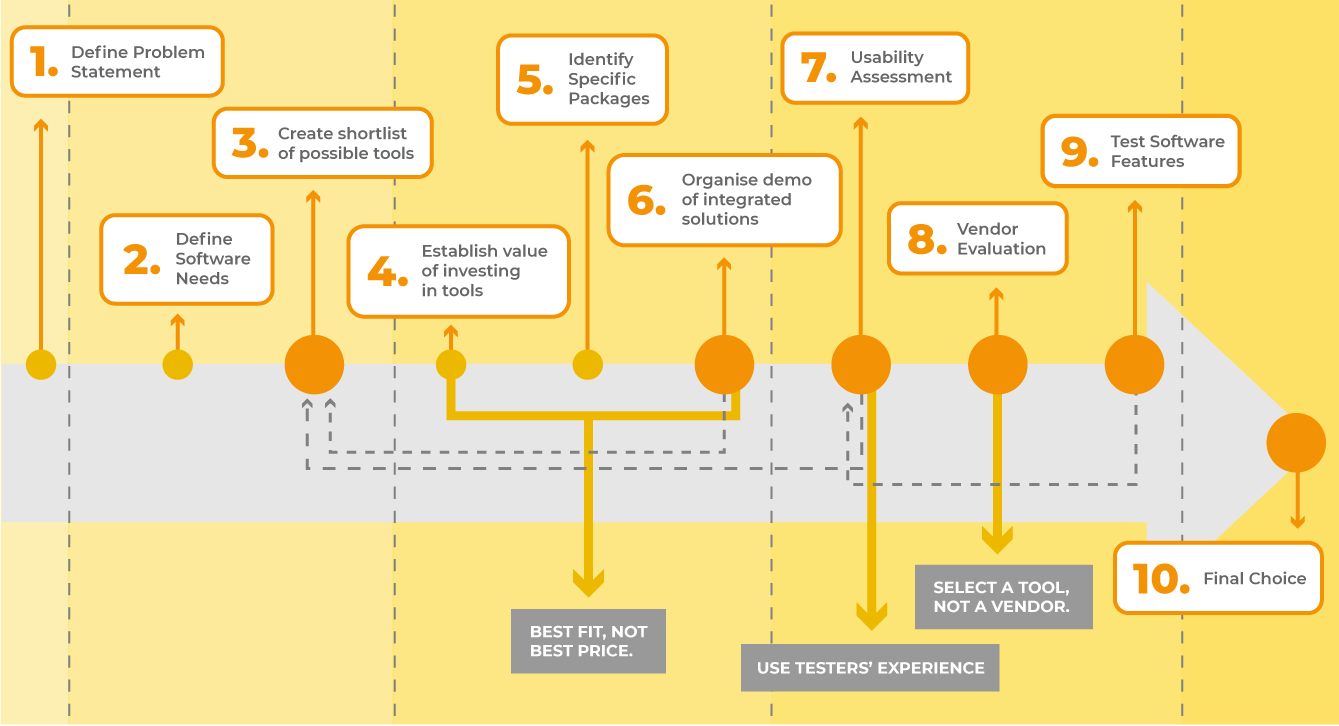
THE SELECTION PROCESS
Initial Assessment
- Identify the gaps and limitations of current Engineering tool environment.
- Understand the business case for tool integration.
- Capture the expectations of internal and external stakeholders.
- Document conclusions for ‘as is’ status and validate findings.
Definition
- Define the ‘to-be’ tool environment.
- Capture the expected features of the ‘to-be’ tool environment.
- Derive and define the detailed tool requirements and their attributes.
- Define and document the user roles, use cases and the ‘to-be’ Tool architecture.
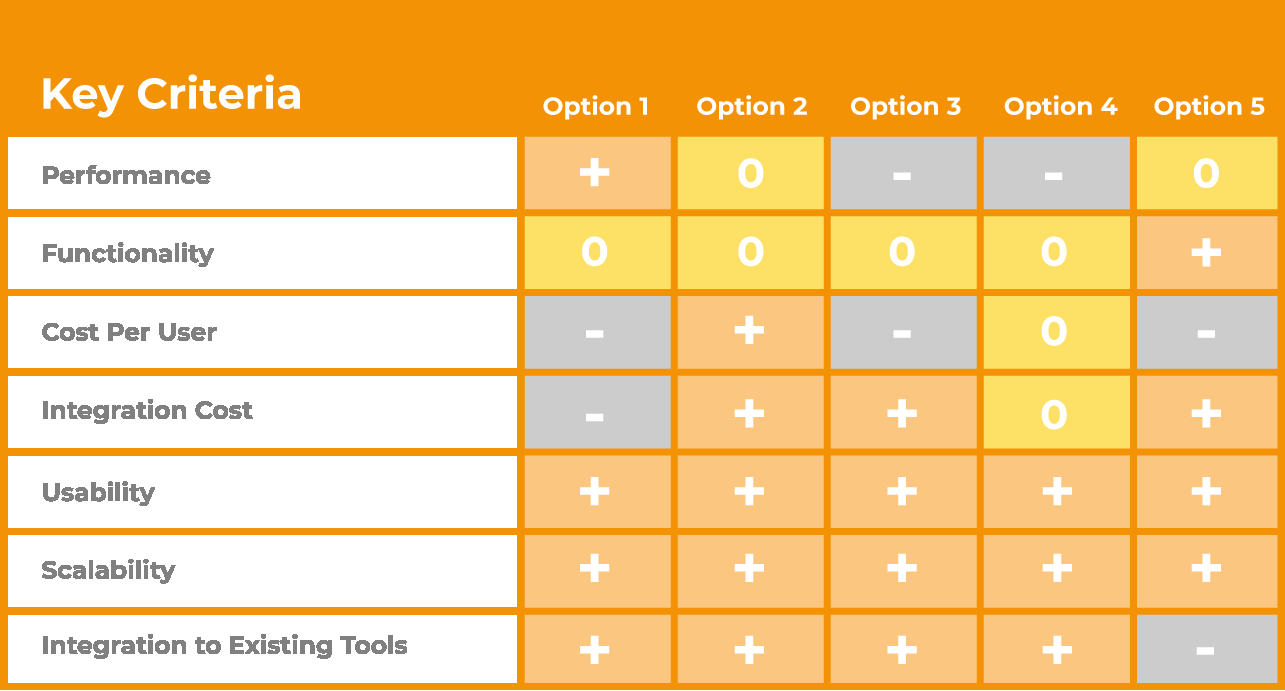
Procedure
- Document the traceability between the availability of tools and defined requirements.
- Develop a use case example to be used during tool vendors evaluation workshops.
- Manage tool vendor evaluation workshops to demonstrate tool capabilities and create usability assessment.
- Test software features before making a final decision on which tools to implement.
- Document findings in the ‘Request for Proposal’ with tool selection decision.
Implementation
- Working with trusted partners we can implement your specific ‘tools suite’ to ensure an optimal end-to-end solution for your Organisation.
Who’s it for?
- Teams and Organisations working in complex product development
- Highly regulated industries.
 Reviews
ReviewsIdentify ways to build organisational capabilities with our thorough and focused Engineering Reviews.
Engineering Reviews
The first step in maturing your Enterprise’s capabilities: Identify where you are.
We have a flexible approach when it comes to conducting our reviews. Adapted to your circumstances, we focus on multiple or single areas depending on your Engineering, Organisational and Project needs.
Engineering Reviews: FAQs
What do we do?
We provide unbiased assessments and reviews of your Organisation against its business strategy, focusing on specific areas such as: your organisational set-up, the skills of the employees, current business processes, company culture, and reward systems.
What’s the value of a review?
Having an objective and independent review will:
- Provide validation, assurance, and credibility in specific areas.
- Confirm if your processes are correctly implemented and meet organisational objectives and/or standards.
- Uncover areas where you need additional assistance e.g., product delivery.
- Provide innovative ideas for process improvements.
- Develop capabilities.
Who conducts the review?
One or more of our experts will carry out your review. This will be dependent on their areas of expertise to ensure you have the most suitable person(s) assigned.
How will it be conducted?
Depending on the scope of work we offer reviews in several means and durations e.g., as half-days focusing on a specific area, or in blocks of 1 to 2 weeks offering in depth reviews of the organisational set-up. In addition, we offer reviews against the ISO 15288 standard and other relevant Engineering standards to provide assurances of consistency within these guidelines.
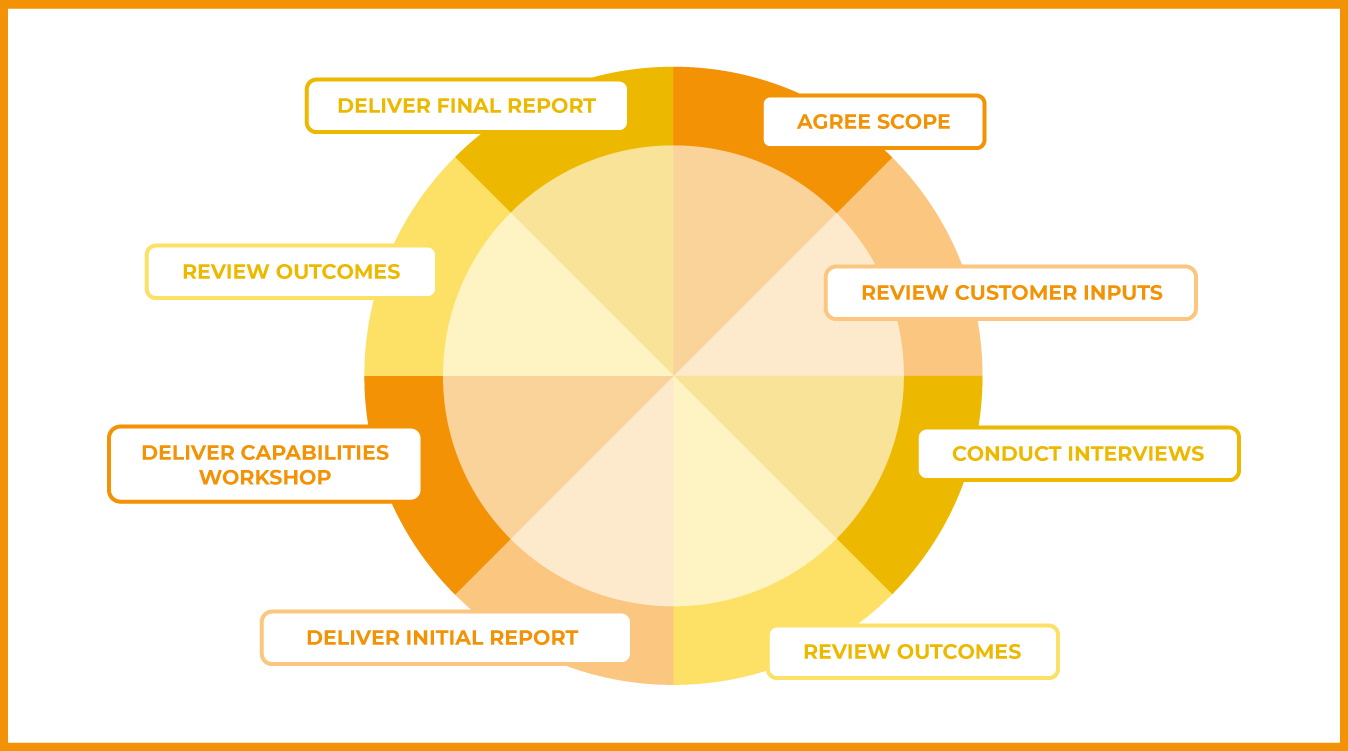
Capabilities to Competencies
Development of competencies is only meaningful once we have defined the capabilities you want to have as a team or Organisation, aligned with the desired project outcomes or organisational mission. Once these are identified we will then compile a comprehensive and realistic map of the resources available to you, so you are able to achieve your goals. We can guide you through the tricky process of defining capabilities, maximizing existing resources or acquiring new ones and ensuring you are complying with standards.
Capabilities
The essence of what an Enterprise needs to establish and mature, enabling itself to remain innovative and competitive. Difficult to define tangibly.
Competencies
These can be targeted to realise capabilities. These are measurable, extensively described and documented. They are tangible.
Resources
Development of competencies is achieved through many means, e.g., training, tailored processes, establishing effective tool-chains, and designing systems which are supportive of the competencies.
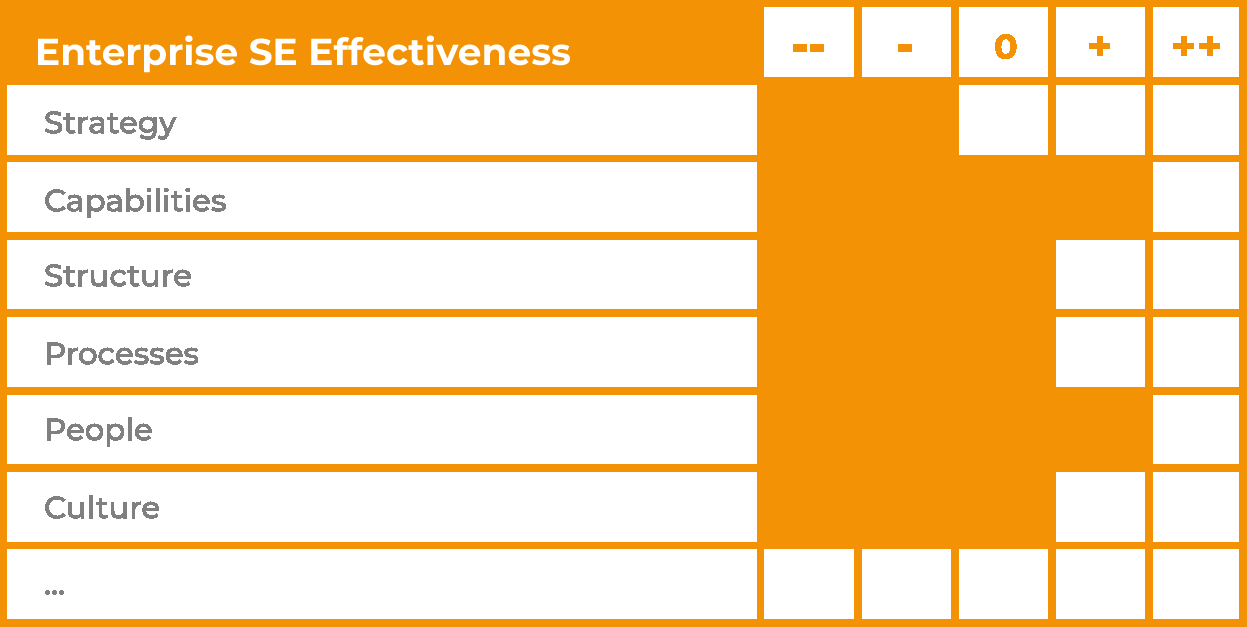
Who’s it for?
Organisations that are operating in an industry or servicing a clientele that requires evidence of compliance.
Veranstaltungen
Event Info
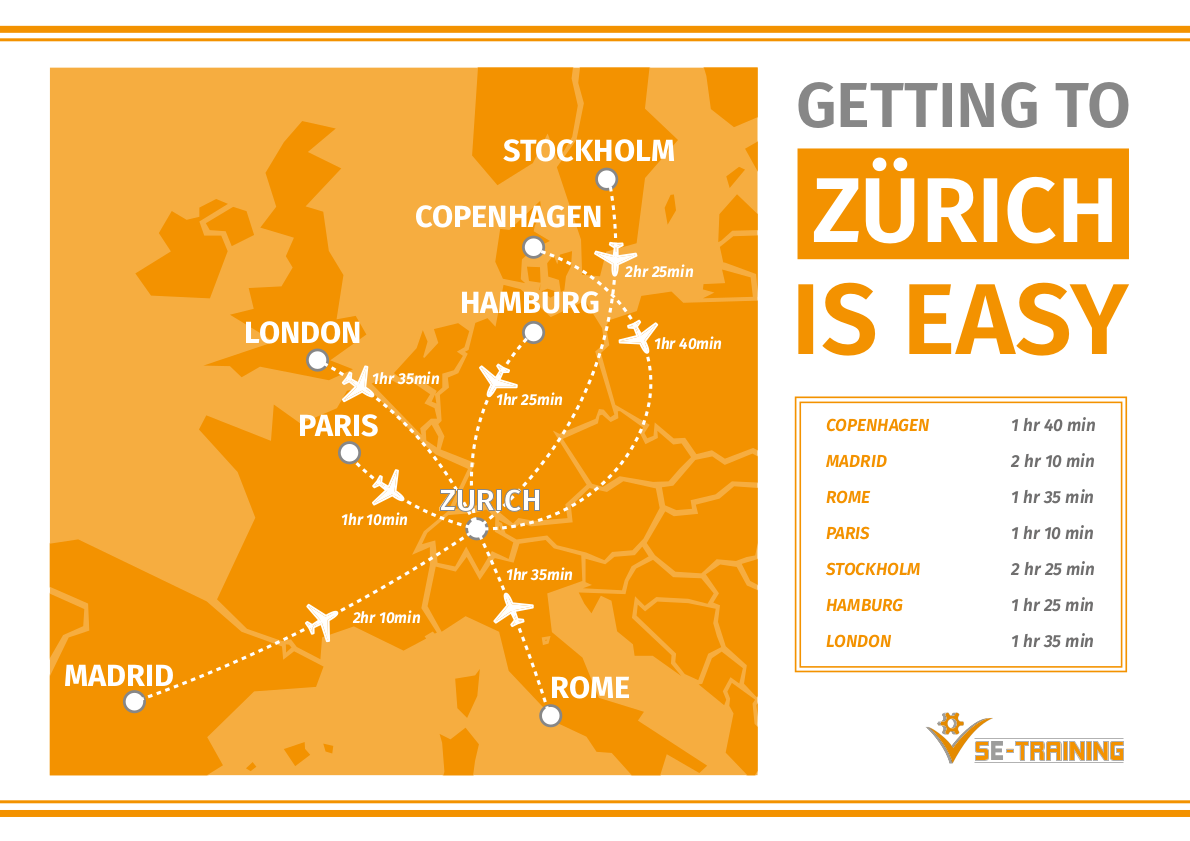
Das Team
Wir sind ein internationals Team von Experten, die sich in diversen Systems Engineering Disziplinen spezialisiert haben. Wir bringen unsere Erfahrungen aus vielen unterschiedlichen Branchen in unsere Trainings ein.
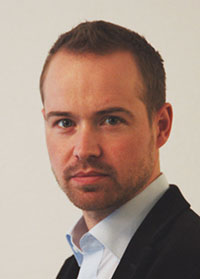 Seb Klabes
Seb KlabesSebastian hat zahlreiche Publikationen verfasst und bedient sich gerne im Methoden-Werkzeugkasten des Systems Engineering.
Nach seiner Tätigkeit am Verkehrswissenschaftlichen Institut der RWTH Aachen als wissenschaftlicher Mitarbeiter…
Seb Klabes
Sebastian hat zahlreiche Publikationen verfasst und bedient sich gerne im Methoden-Werkzeugkasten des Systems Engineering.
Nach seiner Tätigkeit am Verkehrswissenschaftlichen Institut der RWTH Aachen als wissenschaftlicher Mitarbeiter arbeitete er am Deutschen Zentrum für Luft- und Raumfahrt und anschliessend als Projekt Systems Engineer bei Bombardier.
Derzeit leitet Sebastian die RAMS-Abteilung in der Mobility-Division von Siemens. Er engagiert sich aktiv im Komittee der Swiss Society of Systems Engineering und ist zertifizierter Systems Engineer (CSEP).
Sebastian genießt es, organisatorische und technische Herausforderungen mit einem "soliden" -Systemdenken zu begegnen.


 Mike Johnson
Mike JohnsonMike hat in unterschiedlichen Rollen in der Produktentwicklung vorwiegend im Bereich der Verteidigungs- und Luftfahrtindustrie gearbeitet, nachdem er seinen Master-Abschluss in Photonics und Optoelektronischen Geräten…
Mike Johnson
Mike hat in unterschiedlichen Rollen in der Produktentwicklung vorwiegend im Bereich der Verteidigungs- und Luftfahrtindustrie gearbeitet, nachdem er seinen Master-Abschluss in Photonics und Optoelektronischen Geräten an der University of St. Andrews, UK, erhalten hat.
Mike hat immer in der Rolle des Systems Engineer gearbeitet und führte technische Entwicklungen mit interdisziplinären Teams. Er arbeitete fünf Jahre bei RUAG Space, Zürich. Während dieser Zeit wechselte er in das Management und führte die Systems Engineering Gruppe in die Produkteinheit Optoelektronik und Instrumente. Darüber hinaus gab er Systems Engineering Schulungen für Mitarbeiter des ganzen Unternehmens.
Mike übernahm anschliessend die Leitung des Systems Engineering Teams bei Roche Diagnostics International in Rotkreuz, Schweiz. Er bringt nun leidenschaftlich seine Erfahrungen und Kenntnisse der Systems Engineering an die Healthcare-Branche ein.
Mike ist begeistert von der Produktentwicklung und vor allem der Anwendung von Systems Engineering Methoden. Er ist einer der Gründer der Swiss Society of Systems Engineering (SSSE) und nimmt regelmäßig an IET- und INCOSE-Vorträgen / Seminaren teil. Er organisiert SWISSED, die Jahreshauptkonferenz der Schweiz für Systems Engineering.
Mike präsentiert regelmäßig auf Engineering-Konferenzen, darunter vor kurzem am SWISSED, UpFront Thinking und das INCOSE International Symposium.
Mike hat sowohl die CEng (IET 97325920) als auch die CSEP-Akkreditierungen erworben.

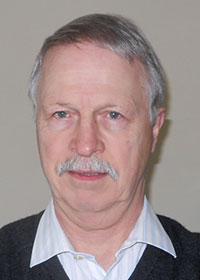 Niels Malotaux
Niels MalotauxNiels Malotaux ist ein unabhängiger Projektcoach und Experte bei der Optimierung von Projekten. Er verfügt über 40 Jahre Erfahrung in der Gestaltung von Elektronik- und…
Niels Malotaux
Niels Malotaux ist ein unabhängiger Projektcoach und Experte bei der Optimierung von Projekten. Er verfügt über 40 Jahre Erfahrung in der Gestaltung von Elektronik- und Software-Systemen, an der Delft University, in der niederländischen Armee, bei Philips Electronics und leitete 20 Jahre ein Systemdesign-Unternehmen. Seit 1998 widmet er sein Know-how bei der Unterstützung von Projekten und Organisationen, um Quality On Time zu liefern: Bereitstellung, was der Kunde braucht, wann er es braucht. Zu diesem Zweck entwickelte Niels einen Ansatz zur effektiven Lehre von Evolutionary Project Management (Evo) Methoden, Requirements Engineering, Review- und Inspektionstechniken sowie Reliable Embedded Systems Design und wie man Zero Defects für den Kunden erreicht. Seit 2001 lehrt und betreut er über 400 Projekte in 40+ Organisationen in den Niederlanden, Belgien, China, Deutschland, Irland, Indien, Israel, Japan, Polen, Rumänien, Serbien, Südafrika, Großbritannien und den USA. Diese Fülle von Erfahrungen hat er Ansätze übesetzt, die in der Praxis gut funktionieren.

 Richard Maguire
Richard MaguireRichard Maguire BEng MSc CEng FIMechE MSaRS MBCS verfügt über umfangreiche Erfahrung in der Sicherheitstechnik in einer Vielzahl von Technologien und Bereichen(Luftfahrt, Waffensysteme, Kommunikationssystemen, Fahrzeuge,…
Richard Maguire
Richard Maguire BEng MSc CEng FIMechE MSaRS MBCS verfügt über umfangreiche Erfahrung in der Sicherheitstechnik in einer Vielzahl von Technologien und Bereichen(Luftfahrt, Waffensysteme, Kommunikationssystemen, Fahrzeuge, unbemannte Luftsysteme, Unterseeboote und Software). Richard arbeitete an der Sicherung der Flugsteuerungssoftware für UAS sowie der Unfall- und Prädiktionsstressanalyse und der rechnerischen Fluiddynamikmodellierung für Öl-, Gas- und Brandschutz-Rohrleitungssysteme. Als renommierter Spezialist spielt er eine Schlüsselrolle bei der Entwicklung von britischen Sicherheits- und Softwarestandards und hat eine Vielzahl unterschiedlicher Veröffentlichungen geschrieben. Darüber hinaus ist er Autor des beliebten Buches "Sicherheitshinweise und Sicherheitsberichte - Bedeutung, Motivation und Management". Wegen seiner Stellung im Bereich der Systemsicherheit hat Richard an einer Reihe von Institutionen unterrichtet, darunter die: Universität York - Safety Critical Systems Master's Degree; Empire Test Pilot School - Aviation System Sicherheit; UK Ministerium für Verteidigung - Acquisition System Sicherheit; Und der Bundeswehr-Universität München - Modellierung der menschlichen Zuverlässigkeit.

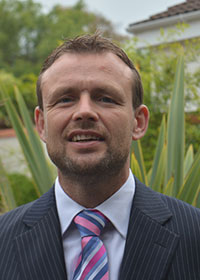 Jim Mateer
Jim MateerJIM MATEER BSc, MSc, MIET, MRAeS hat Erfahrung im technischen Bereich von Ultraschall-Jets und deren Waffen. In den letzten zwölf Jahren hat er sich jedoch…
Jim Mateer
JIM MATEER BSc, MSc, MIET, MRAeS hat Erfahrung im technischen Bereich von Ultraschall-Jets und deren Waffen. In den letzten zwölf Jahren hat er sich jedoch auf Sicherheitstechnik und Sicherheitsmanagement in einer Reihe von verschiedenen Bereichen wie Luftfahrt, Verteidigung, Kommunikation, Schutzkleidung, Wasserstoff-Brennstoffzellen, gepanzerte Fahrzeuge und Software spezialisiert. Während seiner Zeit mit einem großen Elektronik-Hersteller spezialisiert sich Jim auf Produktsicherheit, die Einhaltung der EU-Gesetzgebung und der CE-Kennzeichnung. Sein Studium an der University of York über den Critical Systems Safety Engineering Kurs, mündete in seine Forschungstätigkeit zur Bewertung von Safety Related Information Systems. Vor kurzem hat Jim unabhängige Sicherheitsprüfungen für das britische Verteidigungsministerium der zukünftigen gepanzerten Kampffahrzeuge zur Verfügung gestellt und unterstützte einen globalen Luftfahrthersteller, der sein Management der Lufttüchtigkeit verbesserte. Für QineitQ entwickelte Jim zwei System-Sicherheitskurse, die sich mit der Sicherheitsrisikokennzeichnung und -bewertung und dem Sicherheitsmanagement befassen.

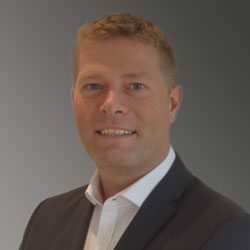 Piet Belgraver
Piet BelgraverPiet Belgraver begann seine Karriere als Entwicklungsingenieur für verschiedene Ingenieurbüros in den Niederlanden. Als er nach Dänemark zog, baute er sein technisches Know-how in der…
Piet Belgraver
Piet Belgraver begann seine Karriere als Entwicklungsingenieur für verschiedene Ingenieurbüros in den Niederlanden. Als er nach Dänemark zog, baute er sein technisches Know-how in der Unterhaltungselektronikbranche weiter aus. Während dieser Zeit übernahm er die Rolle des Hardware-Projektleiters für mehrere bekannte Nokia Mobiltelefone. In seiner Rolle war er vor allem für die Koordination der lokalen und globalen Projektteams zuständig, um die termingerechte Lieferung in Fabriken weltweit zu gewährleisten.
Nach sechs Jahren bei Nokia wechselte er in die Schweiz, um in der Luft- und Raumfahrtbranche bei RUAG Space zu arbeiten. Im Jahr 2016 wechselte er zu Thales Alenia Space, wo ein Teil von RUAG Space an Thales Alenia Space verkauft wurde. Derzeit ist er Senior Project Manager für verschiedene Raumfahrtprojekte bei Thales Alenia Space.
Er ist zertifizierter (IPMA) Senior-Projektmanager mit mehr als 15 Jahren Erfahrung im technischen Projektmanagement, von der hochvolumigen Unterhaltungselektronik bis zur hochwertigen Luft- und Raumfahrtindustrie

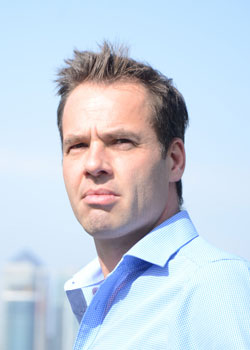 Marco Di Maio
Marco Di MaioMarco has had many roles in Systems Engineering: Professor at a technical university, and Consultant for and Employee in the development of complex systems. He…
Marco Di Maio
Marco has had many roles in Systems Engineering: Professor at a technical university, and Consultant for and Employee in the development of complex systems. He was the managing director of projectglobe - a boutique consultancy firm specialising in Model Based Systems Engineering (MBSE) and Information Management (IM) to support innovation driven engineering projects. Major customers are the fusion research community, the automotive industry, and 3D laser-welding and robotics companies.
Marco holds a PhD in nuclear engineering and a Masters in Operational Research. In his role as research fellow at Europe's largest fusion laboratory, JET near Oxford, he devised a novel diagnostic system, which earned him a world-wide patent. Marco then worked for the automotive industry managing product development and launch projects for the emerging markets of Eastern Europe and Russia before co-founding projectglobe with the purpose to devise novel methodologies, frameworks and tools that combine MBSE with IM to enable effective innovation and product development.
Together with partners from industry and academia, projectglobe have developed CLOSE - a Closed-Loop MBSE methodology based on robust semantic reference model. This model allows to automatically generate the required engineering artefacts in the correct format for SE teams and domain experts alike. The loop is closed by so-called "Experimentable" Digital Twins that provide in-the-loop feedback for all developers throughout the whole product life cycle. CLOSE runs on projectglobe's fractal data engine and thus allows for unlimited scalability in managing all project information.



 Sandra Roth
Sandra RothSandra is a leadership, team and change management coach with a decade of experience in R&D as a usability engineering expert, user experience leader and…
Sandra Roth
Sandra is a leadership, team and change management coach with a decade of experience in R&D as a usability engineering expert, user experience leader and SW development department head in a global medical device manufacturer.
Sandra has a M.Sc. in Psychology, a Ph.D. in Human Computer Interaction and holds several coaching degrees.


 Hakan Hasserbetci
Hakan HasserbetciHakan acts as a Data Protection Officer in Path Duesseldorf GmbH and manages international Data Privacy projects. He has been implementing Codes of Conduct of GDPR…
Hakan Hasserbetci
Hakan acts as a Data Protection Officer in Path Duesseldorf GmbH and manages international Data Privacy projects. He has been implementing Codes of Conduct of GDPR across diverse organizations. He is actively training Data controllers and data processors according to GDPR.
In Hakan's 20 year+ experience he has worked across ICT, Automotive, Packaging Corrugated and Textile industries and acted as:
- Director in Sales & Marketing, Business Development & Global Key Accounts &
Channel Alliances in Mobile Network Operators.
• Project manager in Data Protection/Privacy & Cyber Security in Automotive, Medical,
SW Houses, Distribution.
• Project manager in CRM & e-commerce & Sw. Development in SMEs.
• Trainer in GDPR and DPO Practices.
• DPO in Data Privacy and Compliancy Projects


 Stephan Marwedel
Stephan MarwedelStephan works as a product security engineer at Airbus commercial aircraft. In his work, he brings together diverse engineering disciplines, such as hardware and software…
Stephan Marwedel
Stephan works as a product security engineer at Airbus commercial aircraft. In his work, he brings together diverse engineering disciplines, such as hardware and software engineering, mechanical engineering, safety and reliability and cyber security aiming at creating safe and secure solutions.
Stephan has more than 30 years of experience at software and systems engineer in diverse areas, such as chip design, secure networking, health care, online banking and logistics. He spend ore than half of his professional life at Airbus commercial aircraft working as a systems engineer on aircraft communication systems and as an product security engineer on communication and recording systems as well as landing gear systems. He is actively involved in developing security standards by particiating in international working groups at EUROCAE, AEEC and SAE.





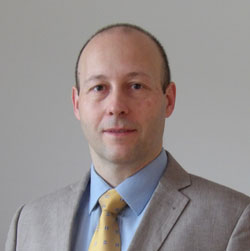 Marco Serra
Marco SerraMarco’s professional experience, built over almost 30 years of working with clients in North America, Europe and Southern Africa, spans diverse roles in the aerospace,…
Marco Serra
Marco’s professional experience, built over almost 30 years of working with clients in North America, Europe and Southern Africa, spans diverse roles in the aerospace, automotive, defence and energy industries. For example, as Systems Engineer Marco was involved in the initial conceptual development and technology transfer assessment of a sample handling and analysis system intended to receive and analyse material returned to Earth on Nasa’s Mars Sample Return Mission. Marco also spends significant time consulting in the Oil & Gas and Energy industries providing system and component design support, conducting failure investigations, providing technical expertise in legal disputes, validating system designs, and developing analysis methodologies for complex fluid-mechanical simulations. More recently, Marco has been working on the thermomechanical design of optical terminals for inter-satellite communications.
Marco holds a Masters Degree in mechanical engineering from the University of Pretoria, South Africa (1993). He also holds a Masters Degree in Engineering and Management from the Massachusetts Institute of Technology, USA (2002), with a focus on Systems Architecture, Systems Engineering, and System and Project Management.


 Gordon Woods
Gordon WoodsGordon has a wealth of experience in requirements management, driving innovations in the defence, aerospace and nuclear and rail industries. He has previously worked on…
Gordon Woods
Gordon has a wealth of experience in requirements management, driving innovations in the defence, aerospace and nuclear and rail industries. He has previously worked on fast jets, military drones, UK and US tank system and trainers, satellite systems and nuclear submarines. For the last eight years he has specialised in supporting requirements management in rail projects including HS2 and East West Rail in the UK; High Speed Rail, Mass Rapid Transit, Light Rail Transit projects in Malaysia; the Qatar metro and tram projects; the Riyadh metro and lately the NEOM Backbone railway projects in Saudi Arabia.
He has brought his own unique style to the elicitation and specification of requirements, the Verification and Validation of the design products and safety assurance, all within a progressive assurance environment.

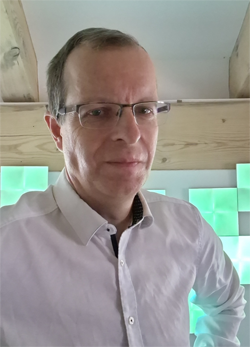 Oliver Fels
Oliver FelsOliver Fels has been the first independent European speaker at the 1997 JAVAOne conference and the first independent to speak three years in a row.
Since…
Oliver Fels
Oliver Fels has been the first independent European speaker at the 1997 JAVAOne conference and the first independent to speak three years in a row.
Since then, Oliver Fels has been working in major industries developing complex systems, filling various roles - as a project manager, department lead, systems engineer, architect, product owner, requirements and methodology engineer, and more.
As a leading systems engineer, he supported revolutionize the Zürich public transport system, being responsible for the new passenger information concept.
In a department lead role, he redesigned hands-on the first and business class sections for the 21st century of various international airlines.
With his high interest for sustainability and renewable energy, Oliver was also an active member of the Solar Impulse 2 project, the first solar flight around the world accomplished by Swiss entrepeneur and pioneer Bertrand Piccard.
Oliver is currently actively supporting sustainability and renewable energy projects using blockchain technology and is the inventor of the sustainability engineering methodology, which uses system engineering principles to aid enterprises structuring their sustainability strategies.
Oliver has held several speeches and international workshops in the area of systems engineering, IT security, and software development as well as coached engineers in leadership, requirements engineering, and other topics.
Having worked in various diversity environments, he highly emphasizes an intercultural and interoperational approach to working with people in which individualtiy and empathy are highly valued. As such, bringing his broad expertise to a wider audience is an important passion for him.
Oliver holds an egineering degree in computer science and electrical engineering.


 Kevin Howard
Kevin HowardDr Kevin Howard has more than 40 years’ experience in engineering. He initially worked in radar and radio frequency systems, and for the last 25…
Kevin Howard
Dr Kevin Howard has more than 40 years’ experience in engineering. He initially worked in radar and radio frequency systems, and for the last 25 years has focused on Systems Engineering and managing complexity. He has been Chief Engineer for a range of systems ranging from military vehicles to space-based sensor systems. He has been VP Systems Engineering for a Global organisation providing safe city and big data technology. He now provides Systems Engineering consultancy, and as Engineering Director helped establish Optima Systems Consultancy Ltd as one of the leading Systems Engineering specialists providing consultancy to the defence and energy sectors around the world.
Kevin has a PhD in Optimising Complex Systems, supported by Post Graduate qualifications in Psychology and Business Administration. He is a Chartered Engineer, an external examiner for Cranfield University.

 Christoph Bisel
Christoph BiselIn 1999, Christoph put his existing experience as a project manager on a solid footing with a degree in project management with a federal certificate.…
Christoph Bisel
In 1999, Christoph put his existing experience as a project manager on a solid footing with a degree in project management with a federal certificate. Since then he has managed projects of various sizes for various companies and was also responsible for the project management of various national branches of an american software manufacturer. He is an accredited trainer for the project management frameworks Prince2™, Prince2™ Agile and AgilePM® (DSDM Framework).
He first came into contact with Scrum in 2008 and since then has continuously expanded his knowledge and experience with this framework and other frameworks.
Christoph has coaching training as well as a degree and experience as a mediator and is therefore not only able to provide professional support, but also to provide support in personally challenging situations.
As a trainer, consultant and coach, he has been supporting companies in Europe in project management, Scrum, Kanban, Design Thinking, Lego® Serious Play®, OKR and various other methods and frameworks for 5 years.


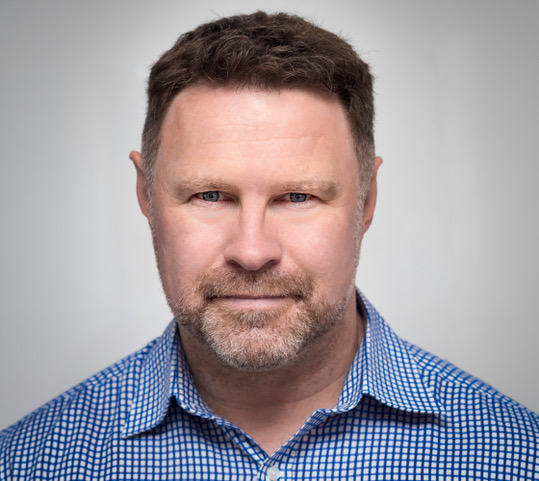 Pete Burgess
Pete BurgessPete has worked leading complex system development within the Defence, Security and Aerospace industries across the UK, US and Middle East.
He has worked from high…
Pete Burgess
Pete has worked leading complex system development within the Defence, Security and Aerospace industries across the UK, US and Middle East.
He has worked from high level concepts to delivery of integrated systems, from requirements capture to user acceptance, bringing together technical teams to deliver and exceed customer expectations.
Pete started his career as an Engineering Apprentice within the British Army, rapidly promoted to Corporal and deployed to Kosovo during the Balkans conflict as well as multiple peace-time training activities across the globe. Beginning his career this way has given him an excellent insight into the needs of the user within the Defence industry as well as the ability to adapt to many different environments. From here, he worked with way up through different Engineering roles, to a Team Lead and Engineering Manager within Boeing Defence UK. This role provided him with the opportunity to teach and mentor all technical and programme staff to have an understanding and appreciation of how Systems Engineering can enhance their own roles and projects, delivering training and mentoring across the entire UK business as well as their customers. Pete is now working as a Principal Consultant, continuing to deliver to customers and as well as develop his own skillset. Pete has been a member of the IET since 2011 as well as having a wide range of professional qualifications gained through his international experiences.

 Vincent Arnould
Vincent ArnouldVincent Arnould brings over two decades of experience as a versatile leader and expert in the field of System Engineering and Architecture. His career spans…
Vincent Arnould
Vincent Arnould brings over two decades of experience as a versatile leader and expert in the field of System Engineering and Architecture. His career spans in the defense domain, on avionics and maritime warfare systems. His expertise lies in Software Intensive Systems and Systems-of-Systems Architecture and System Engineering, supported by a robust skill set that includes transversal management, communication, and international collaboration. He has excelled in leadership roles at companies like Naval Group and Hensoldt Sensors GmbH, contributing to prestigious projects such as the Gowind-class Frigate, the Future Combat Air System (FCAS) and Maritime Airborne Warfare System (MAWS). Vincent's expertise lies in operational analysis, architectural design, and Model-Based System Engineering (MBSE), driving successful outcomes in the defense and avionics sectors. His transnational collaboration and commitment to rigorous quality standards like SysML further underscore his influence in the industry.


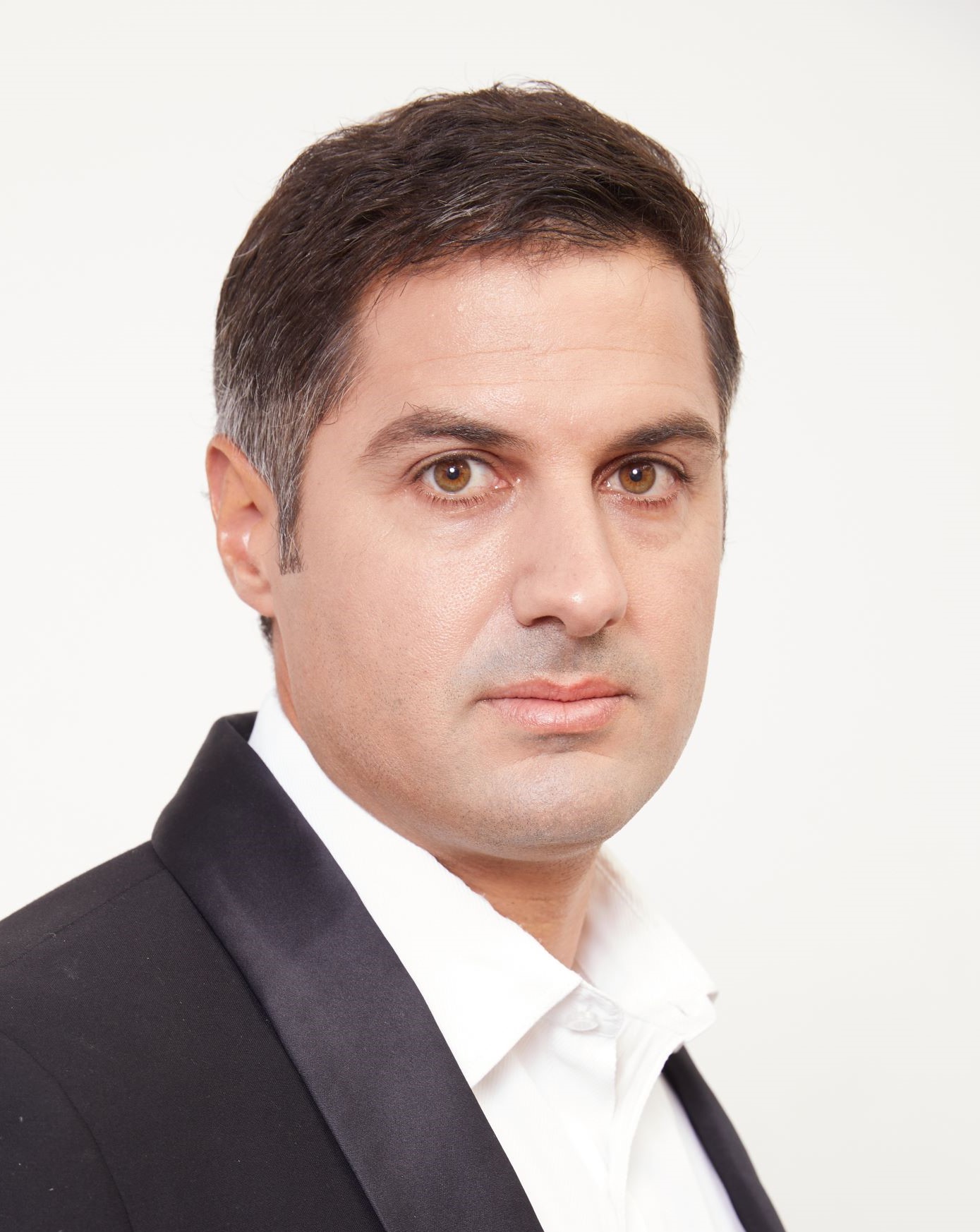 Martin Oswald
Martin OswaldMartin Oswald ist ein erfahrener Experte mit fundierten Kenntnissen im Bereich Prozessmanagement und Produktentwicklung. Er verfügt über Zertifizierungen als Systems Engineering Professional (C-SEP) und Lean…
Martin Oswald
Martin Oswald ist ein erfahrener Experte mit fundierten Kenntnissen im Bereich Prozessmanagement und Produktentwicklung. Er verfügt über Zertifizierungen als Systems Engineering Professional (C-SEP) und Lean Trainer und ist aktiv als Committee Mitglied für das Schweizer Kapitel von INCOSE (SSSE) tätig. Mit einem Master-Abschluss in Maschinenbau und einer umfangreichen Karriere in verschiedenen Branchen weltweit, einschließlich Führungspositionen bei Belimo und Johnson & Johnson, hat Martin eine nachgewiesene Erfolgsbilanz.
Er spielte eine entscheidende Rolle bei der Gründung eines Innovationszentrums in China für Johnson & Johnson und hat erfolgreich ein Team für Prozess, Qualität und Compliance bei Belimo aufgebaut und leitet es derzeit.
Martin kann auf eine bewährte Erfolgsgeschichte bei der Umsetzung von Innovation und Exzellenz in der Produktentwicklung, im Projektmanagement und in der Qualitätskontrolle verweisen. Martin Oswald ist ein ergebnisorientierter Manager mit einem vielfältigen Fähigkeitsspektrum und einer Leidenschaft für Prozessmanagement und -optimierung. Mit einer soliden Grundlage im Ingenieurwesen und einem Engagement für herausragende Leistungen trägt er kontinuierlich wertvolle Beiträge zur Verbesserung von Organisationen und Prozessen bei.


Referenzen
Registrieren
Email: info@se-training.net Kopieren
Adresse
SE-Training GmbH
Bauelenzelgstrasse 20,
8193 Eglisau
EMAIL: info@se-training.net
Book Teams meeting
Über Uns
SE-Training offers high-quality, specifically tailored solutions to support the unique needs of Engineering organisations across Europe. Through industrial and academic experts, SE-Training delivers value added customized engineering services, including accredited* training, to add and enhance complex product development and post-launch capabilities.
Founded in 2016 by two friends and fellow Systems Engineering Managers Sebastian Klabes and Mike Johnson, SE-Training has grown into a team of handpicked experts providing a wide range of in house, classroom and bespoke training packages and unique services such as coaching, audits and tools selection to enhance cross-functional skills and professional development.
* EduQua accredited
* Endorsed training provider for INCOSE UK.
* An approved educational provider for Temptraining.
Blog | Newsletters
 ON:SET
ON:SET ON:SET for March 2024: https://www.se-training.net/pdf/Newsletter_March%202024%20(1).pdf…
.jpg) SE-Training to Exhibit and Attend Swiss Medtech 2024
SE-Training to Exhibit and Attend Swiss Medtech 2024SE-Training to Exhibit and Attend Swiss Medtech 2024: Mastering Complexity in Technology Medical Swiss Medtech 2024, organised by the Swiss Medical Technology Association, stands as a…
 ON:SET
ON:SETDecember 2023 newsletter (PDF)…
